Wadi Bani Khalid & Wahiba Sands
There are places where, with every shutter click, it's hard to end up with a disappointing photo.
The Gently Sloping Sand Dunes
It's a magnificent form sculpted by nature, and an orderly arrangement born out of chaos.
Half a day after having returned to Muscat from Sur, I retraced the same road as the day before to head back to eastern Oman, and this time it’s a day tour to two places I believe have the most impressive landscapes of the entire trip: Wadi Bani Khalid and Wahiba Sands. Visiting Oman without photos taken at a wadi or in the desert would mean you haven’t truly been to Oman.
The road trip land tours I’ve booked through Viator, thankfully, were all excellent, with wonderful guides and friendly travel companions. It turns out that I’ve been on a number of road trips, each with beautiful sceneries outside the car window, jolting stretches of road, and moments when the weather wasn’t so relaxing, from Ladakh, Danakil to Orkhon, this time the excitement was no less.
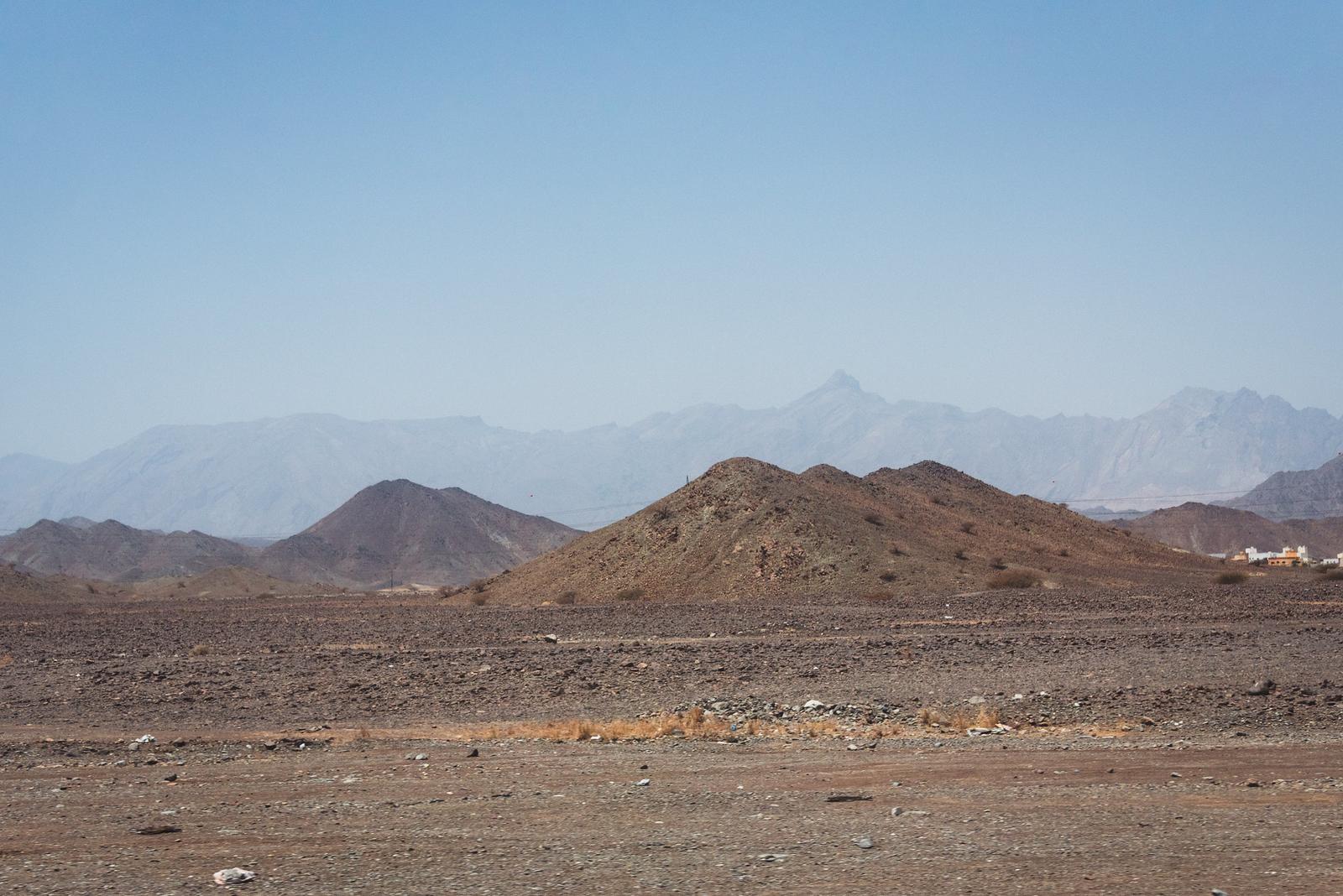
Wadi Bani Khalid
Wait, what is a ‘wadi’? When you’re in Oman, you’ll constantly hear about this or that wadi, yet there’s no equivalent word in English or Vietnamese, all you know is these are places of lush scenery nestled within arid landscapes.
Oman has a plenty of wadis for exploration, ranging from those high up in the mountains to those at the river mouths; famous names include Wadi Shab or Wadi Tiwi.
The guide, named Mohammed, picked me up at the hotel at 11am, after stopping to pick up a German-Turkish couple - my trip companions. Since we set out under the blazing midday sun, we would arrive at Wadi Bani Khalid around 1pm - just in time for lunch, though the heat was intense. The route was exactly the same as the one I had taken to Sur the day before, so the scenery looked no longer unfamiliar, except this time riding in a 4WD SUV was far more comfortable than the taxi sedan.
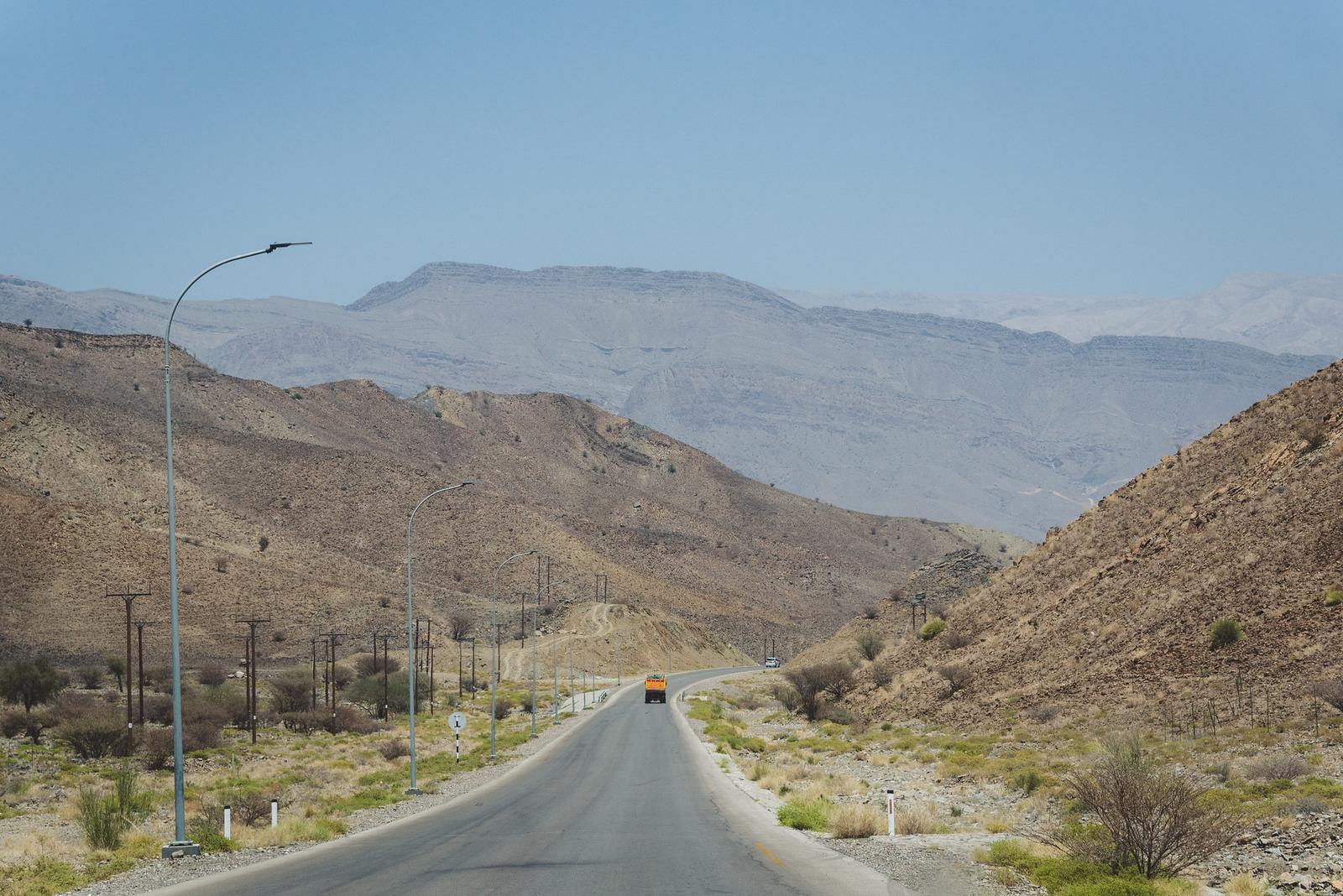
We arrived at Wadi Bani Khalid right on schedule. To reach the sightseeing area, our guide led us along the aflaj water channels, as if we’re playing a game of walking on a balance beam.
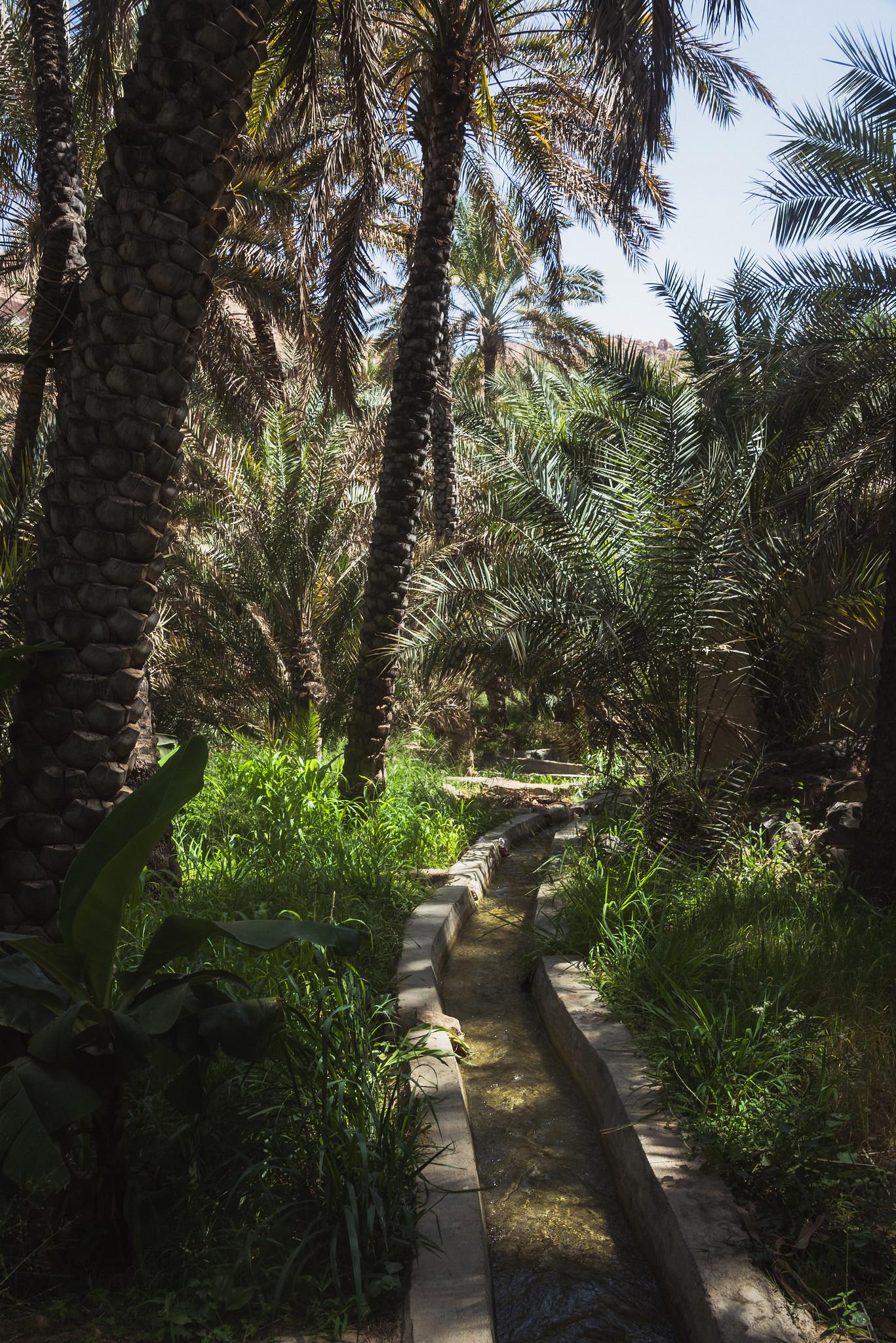
I chose Wadi Bani Khalid because its online photos were captivating, and it truly is when we see it in person. The moment I stepped out from the palm groves, an expanse of emerald-green water unfolded before my eyes, contrasting with the backdrop of barren mountains. Looking down, tiny fishes glided gracefully beneath the clear surface. Apart from arriving under the scorching midday sun, walking through the wadi felt like wandering into an oasis, as if dreaming in the middle of the desert.
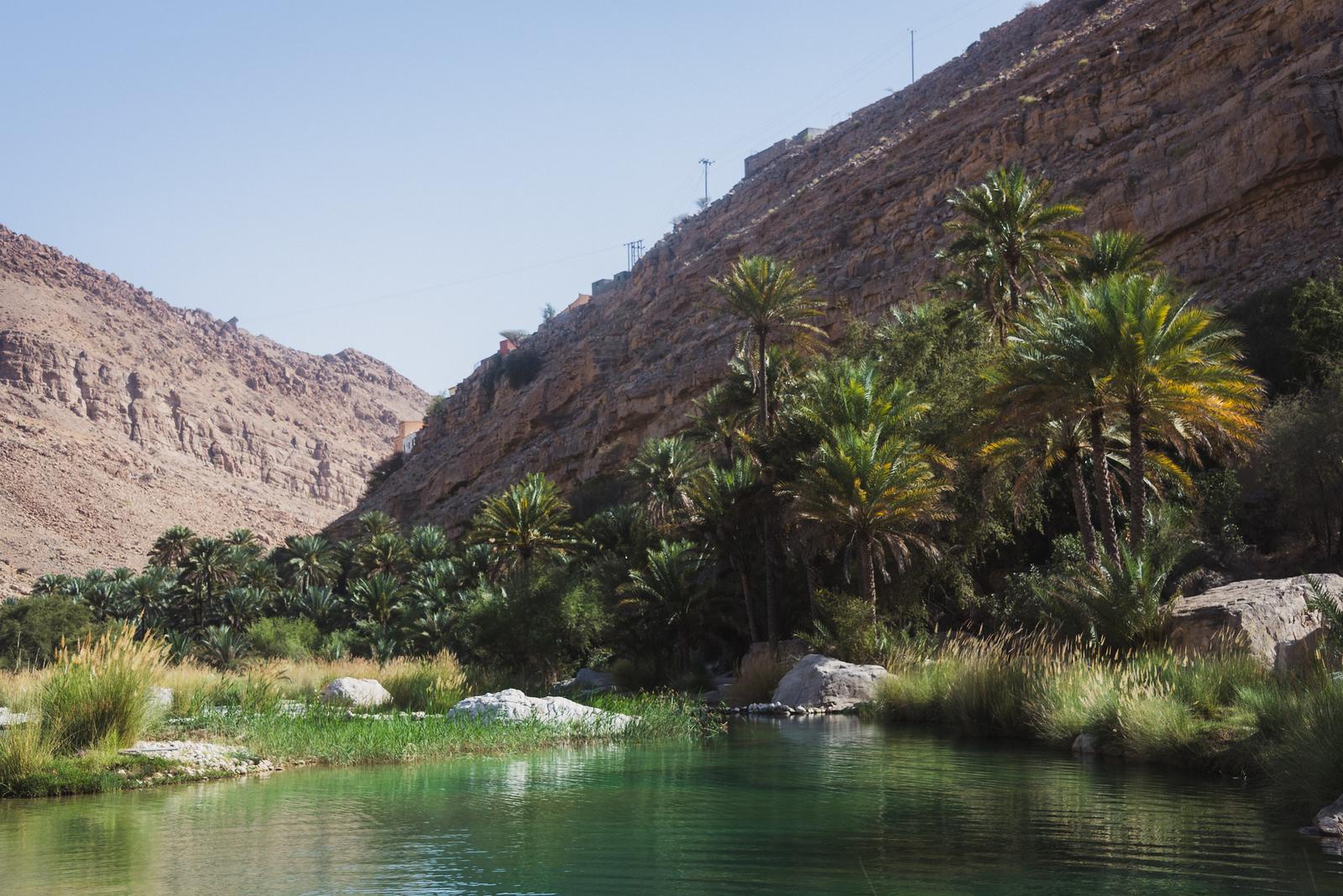
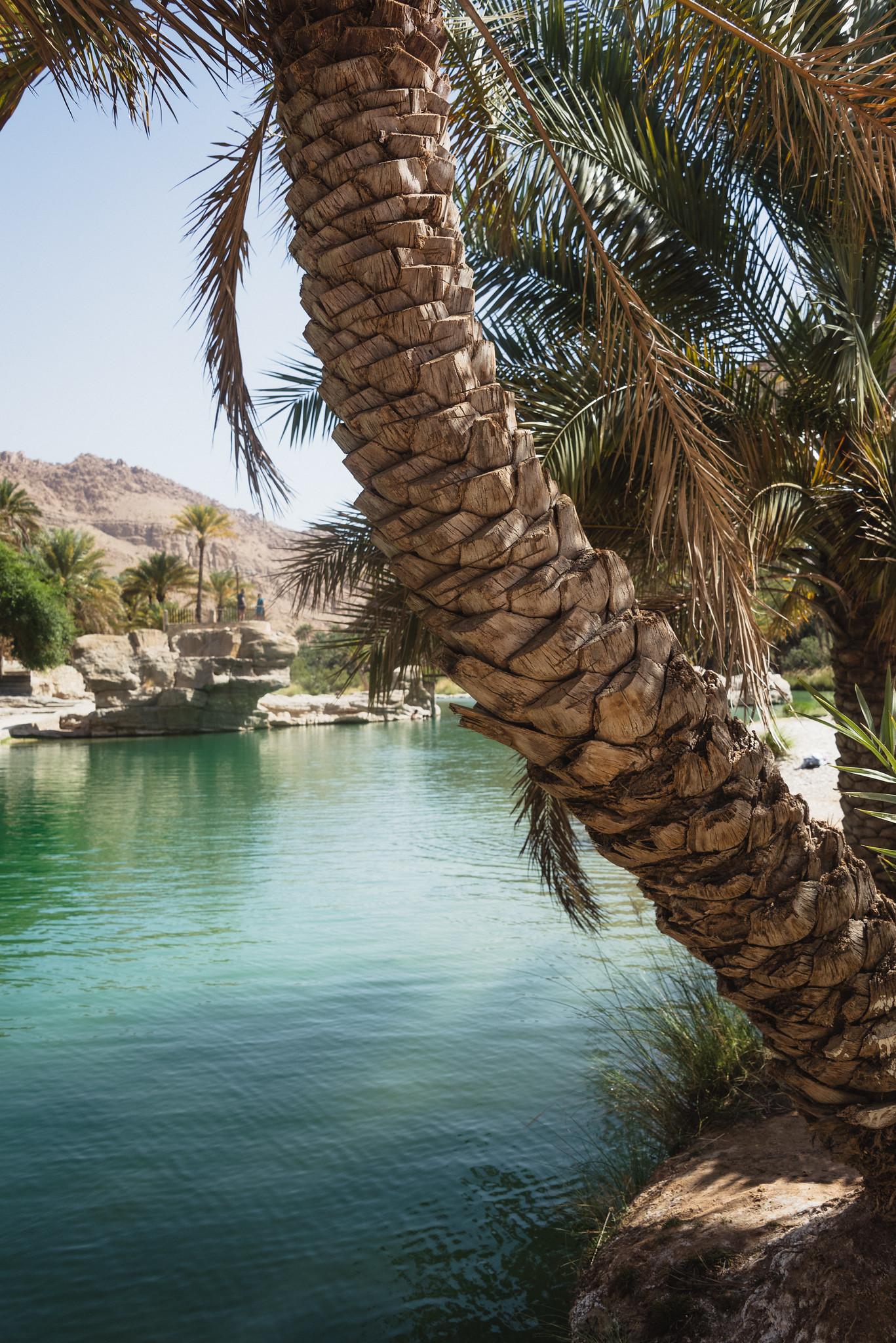
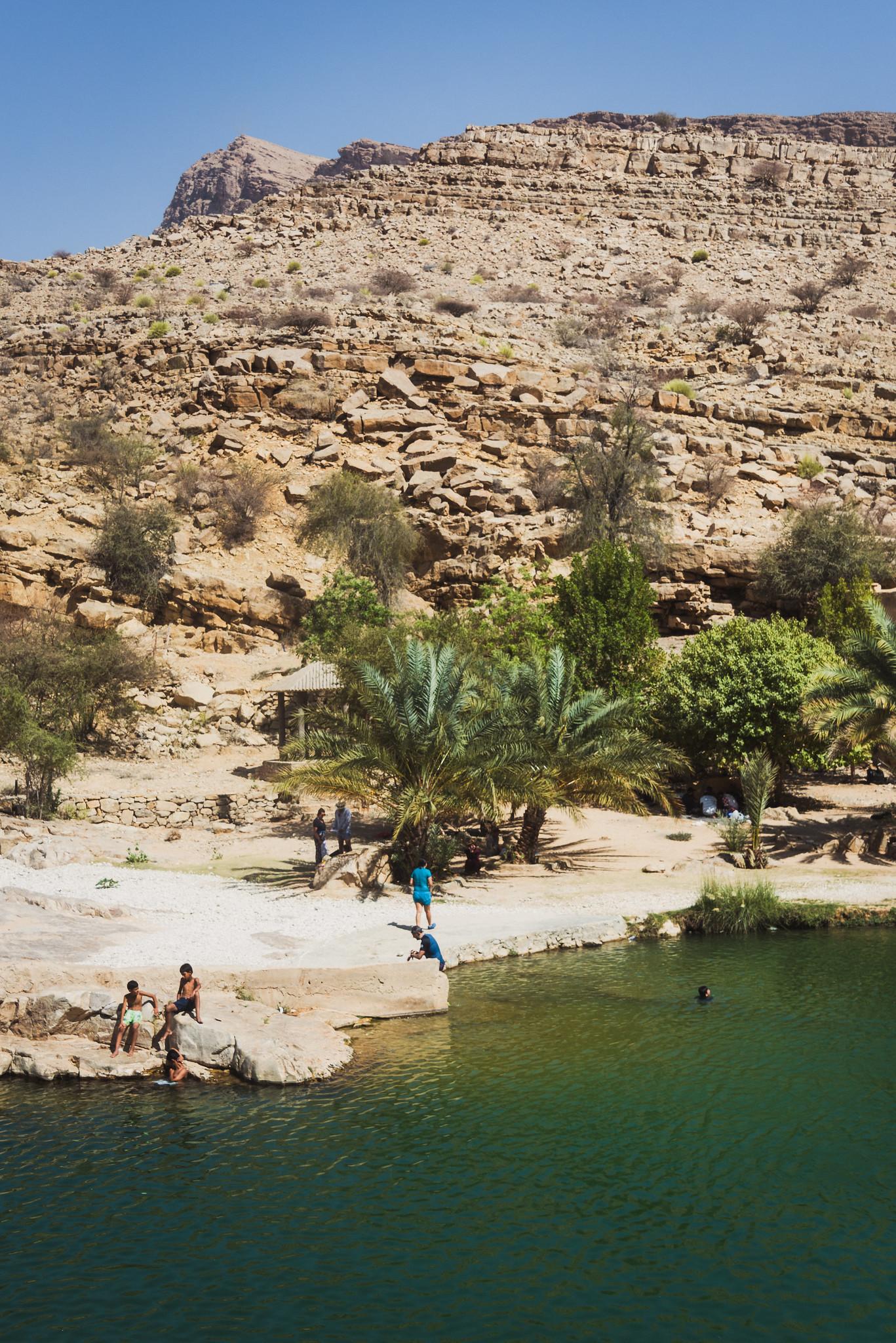
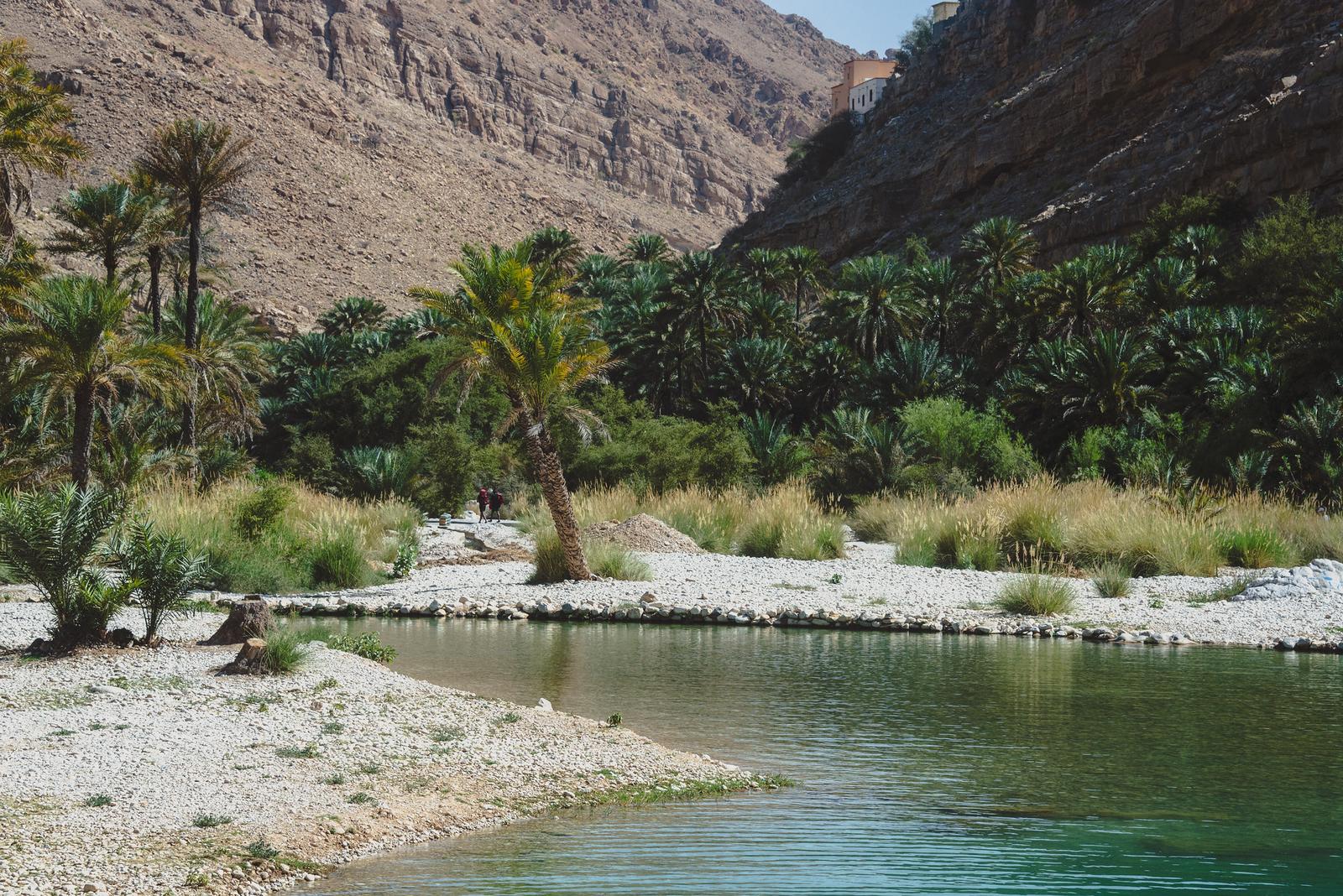
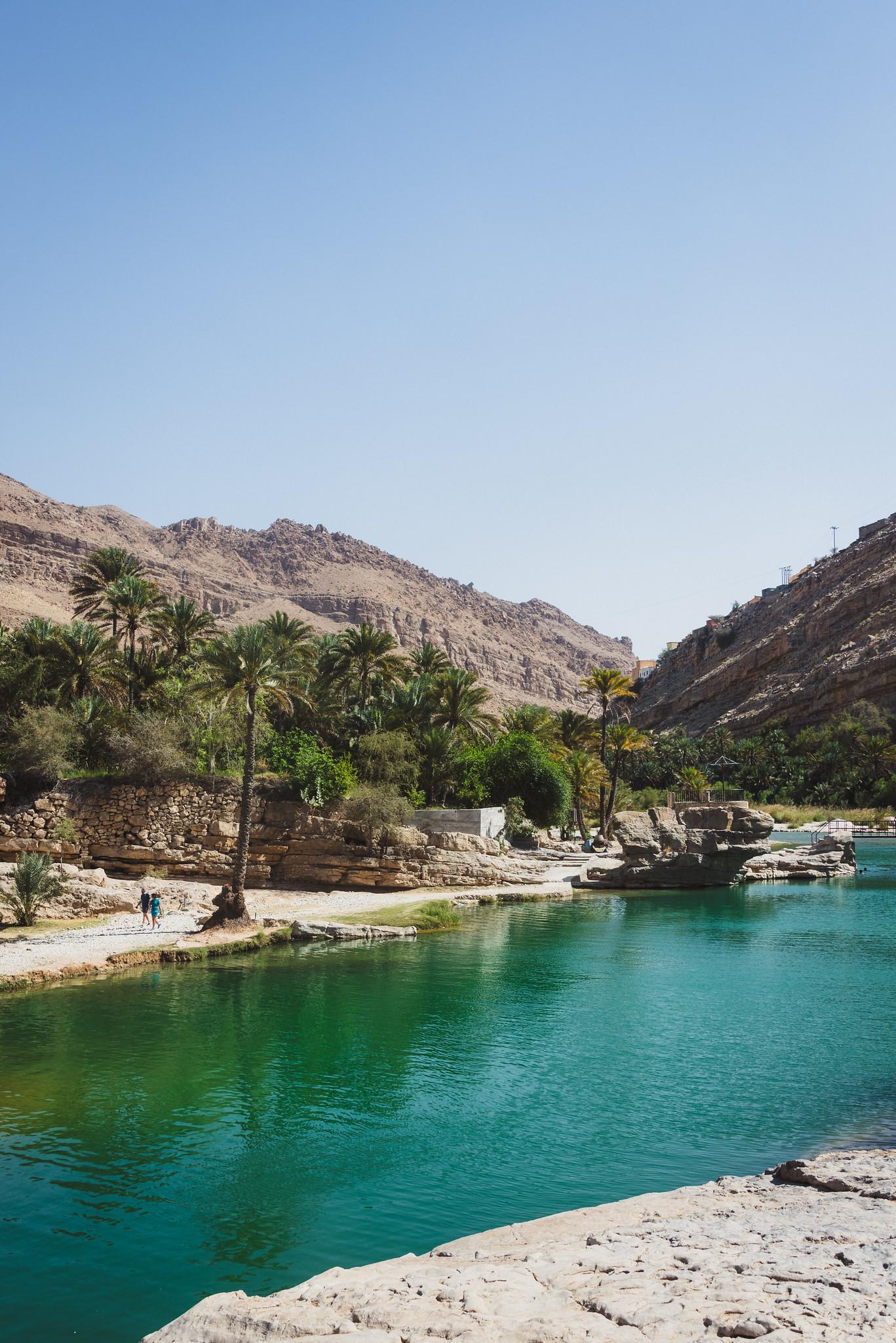
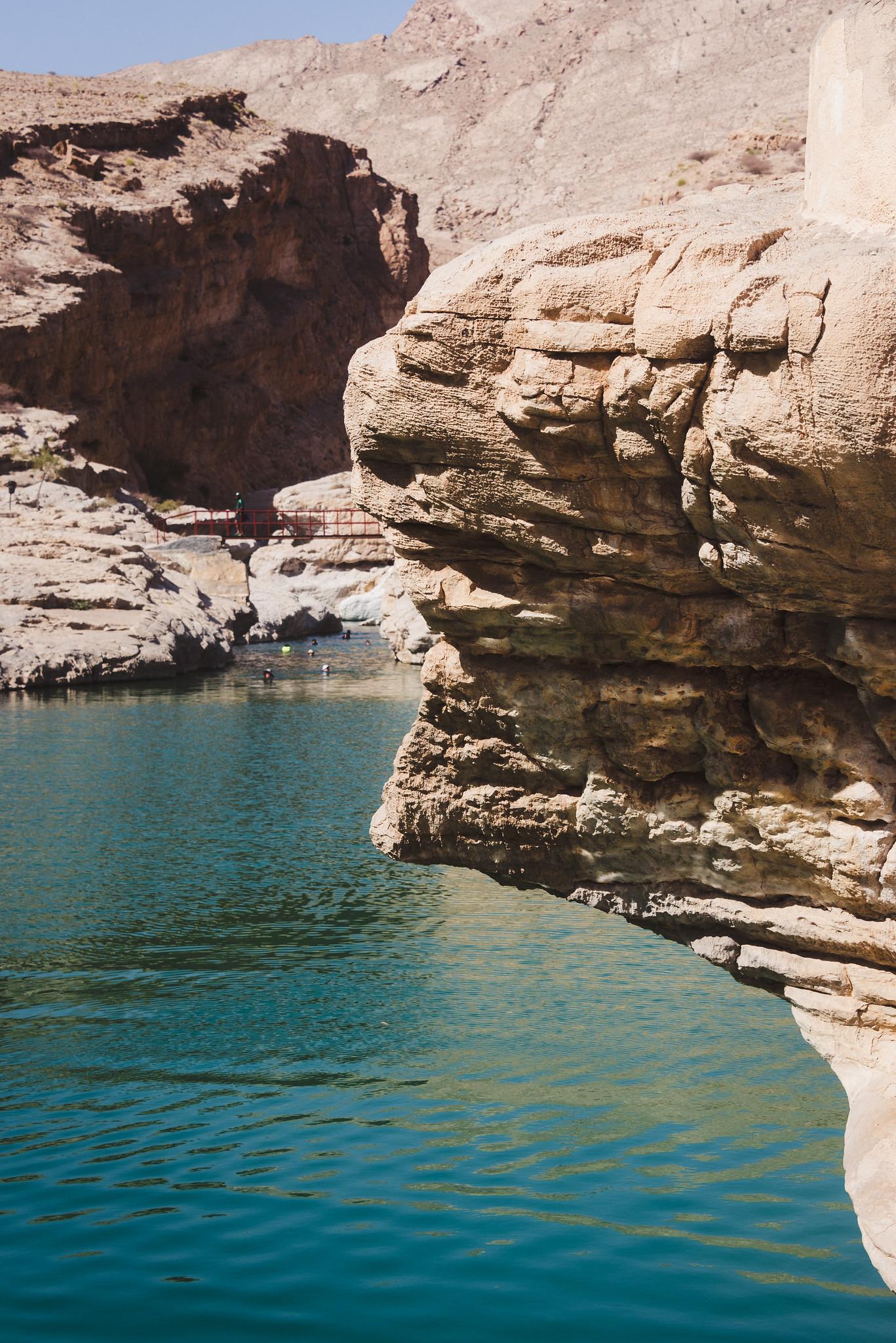
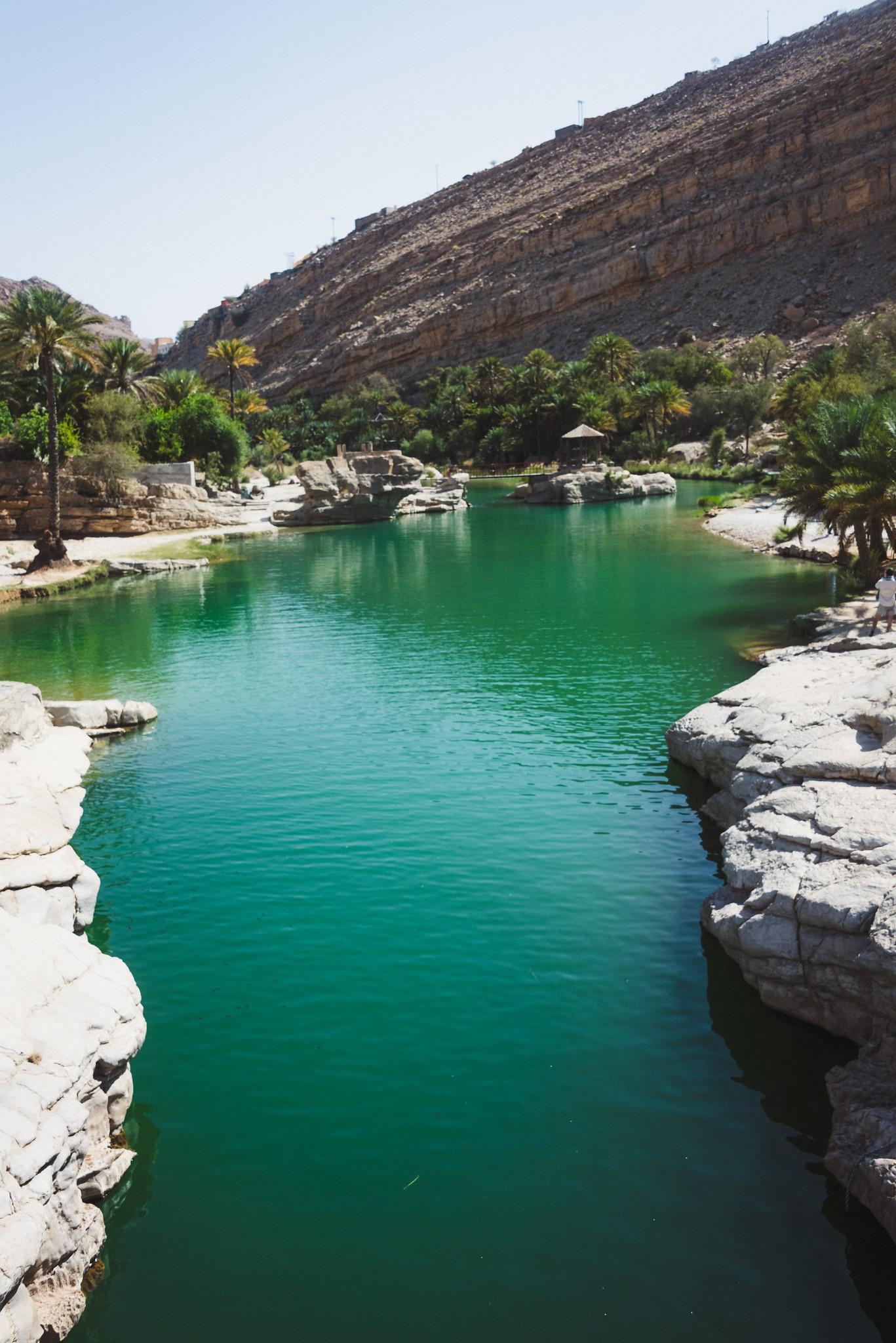
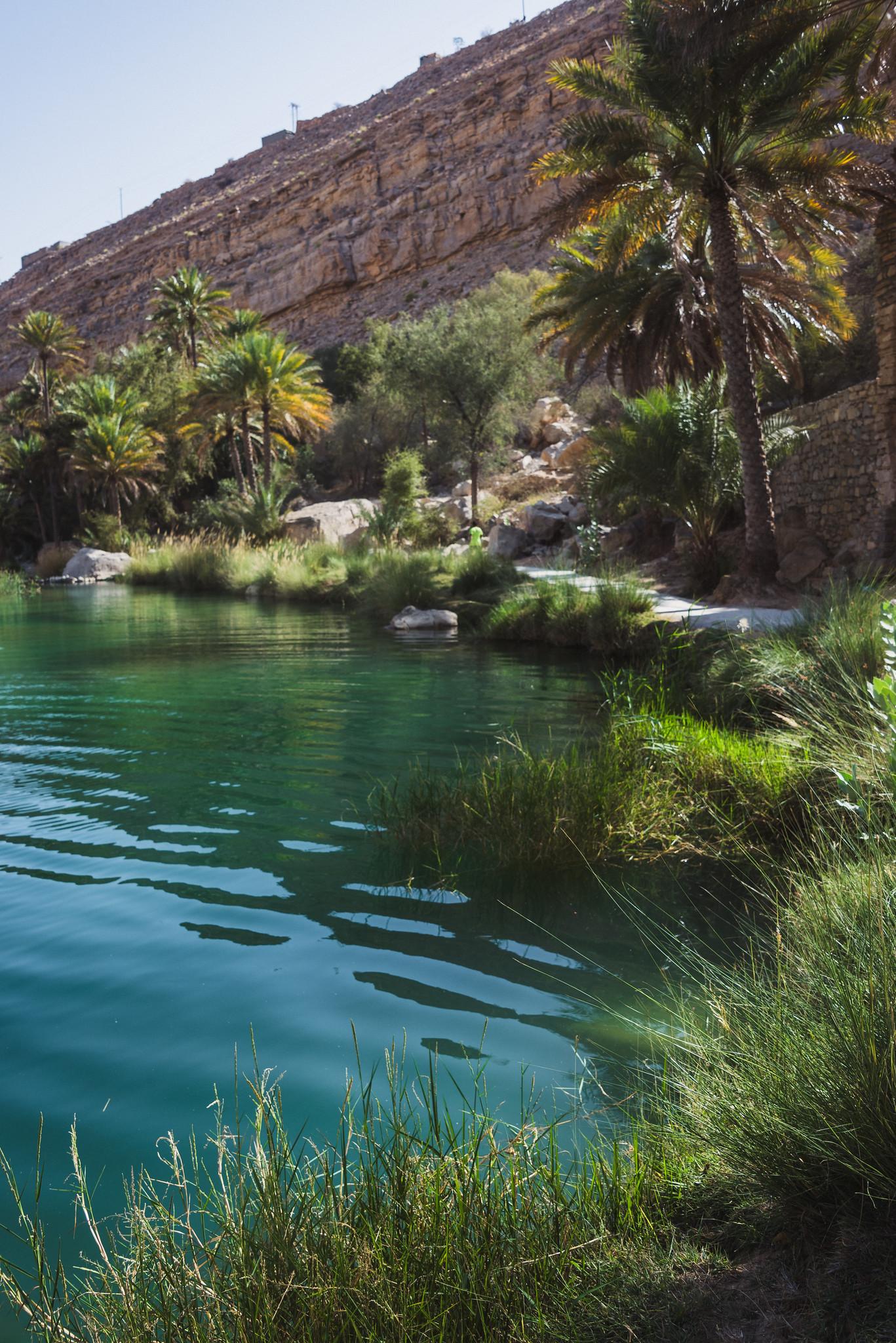
After finishing the buffet lunch with Indian-flavored dishes, where the French fries were quite good though, paired with a glass of sour lemonade, my travel companions went for a swim while I wandered around to find sweet photo spots. Here, you could see local families relaxing, teenagers playing in the water, while the wives and the mothers remained modestly dressed in their robes; Western visitors, whose skin flushed red under the sun, wore swimsuits that were as modest as they could manage. The kids, spotting my camera, kept calling out for me to take their picture, which made my walk occasionally interrupted.
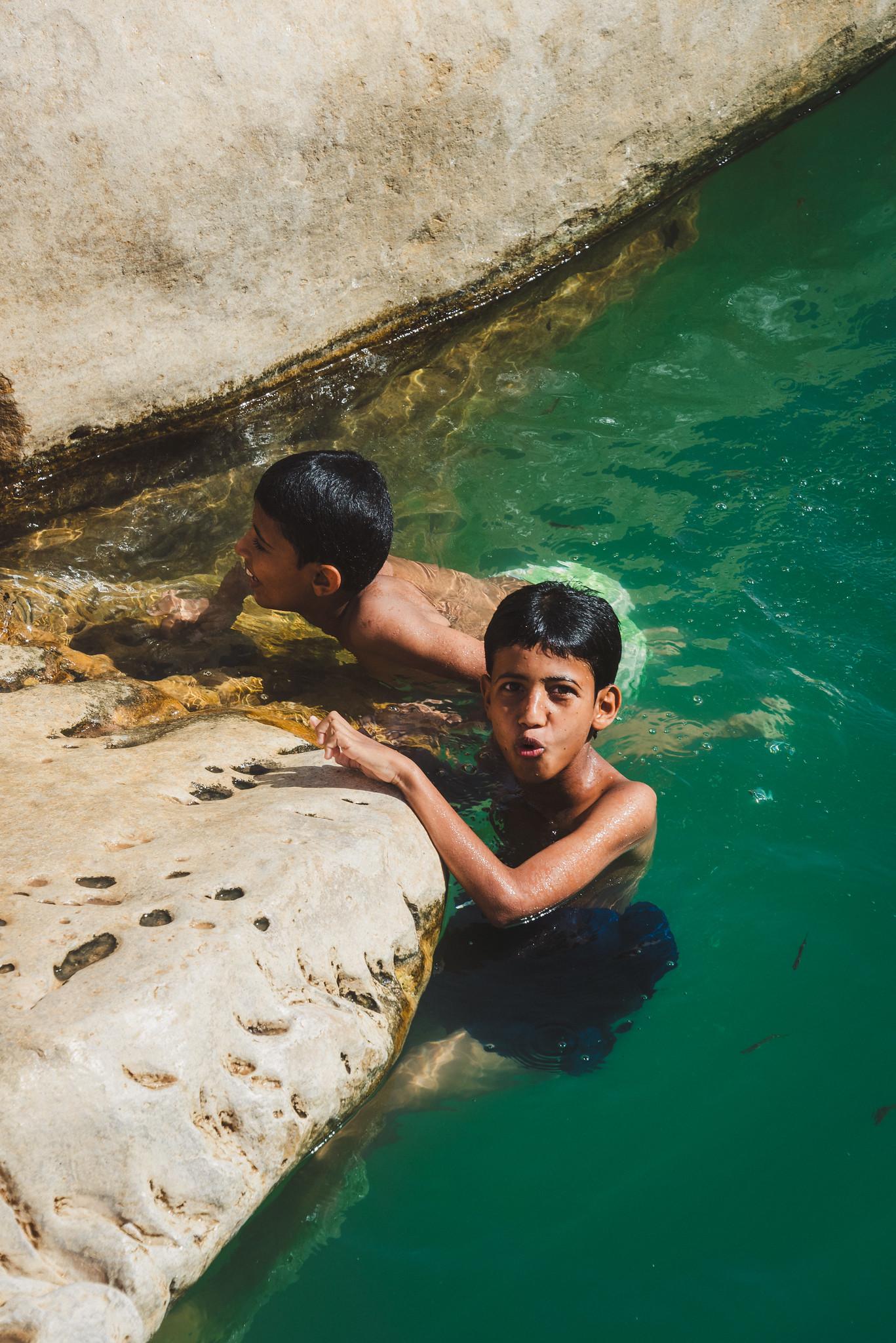
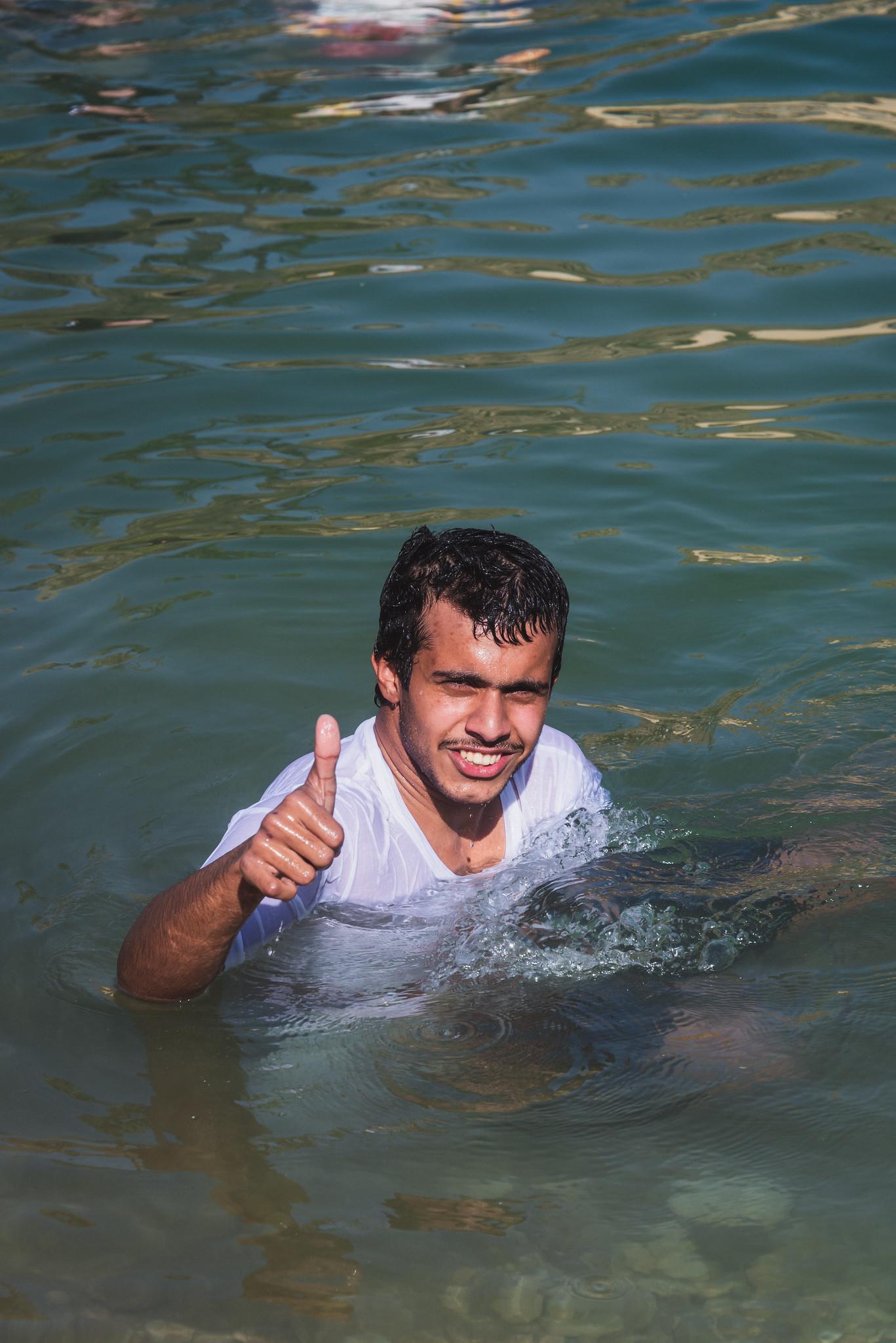
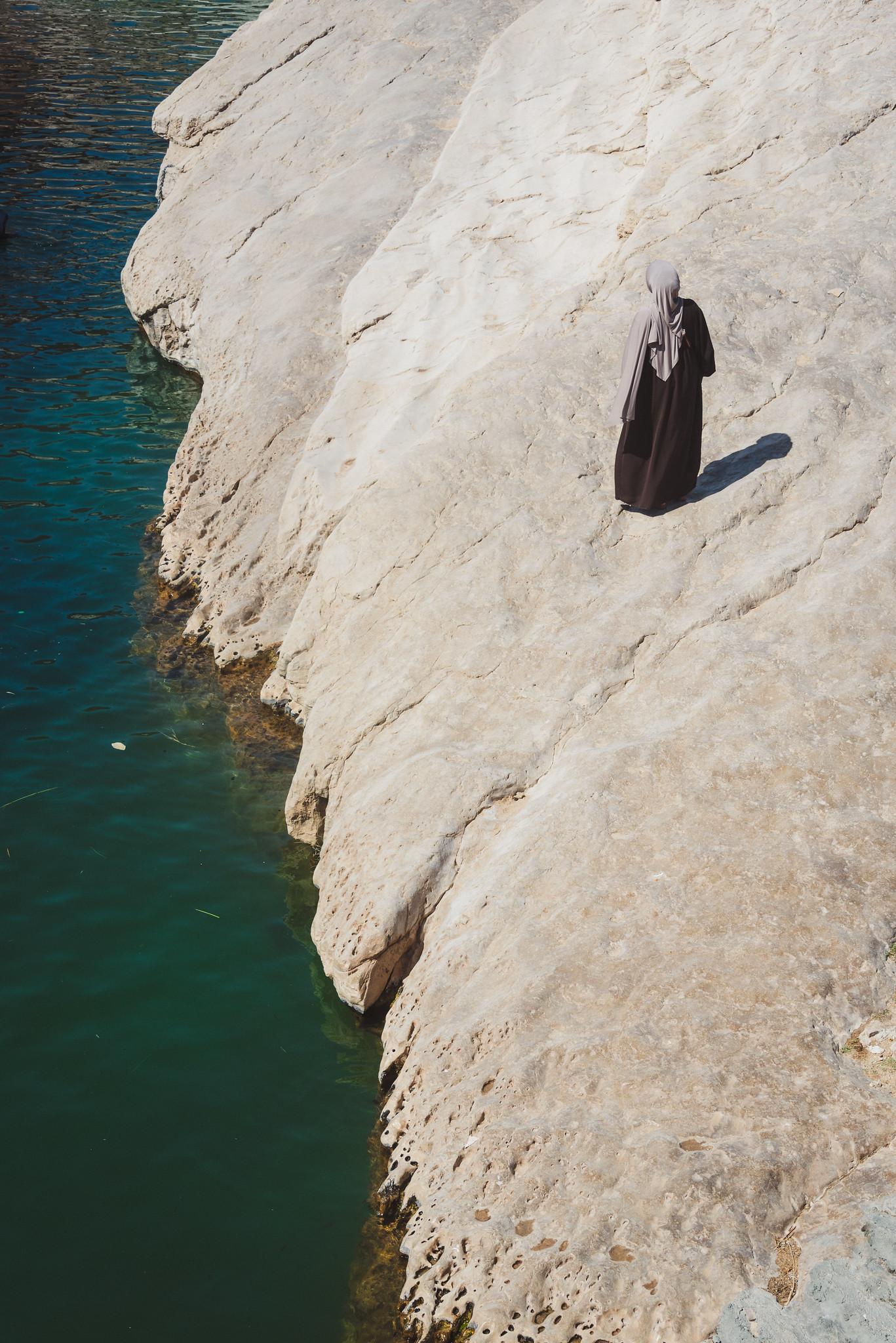
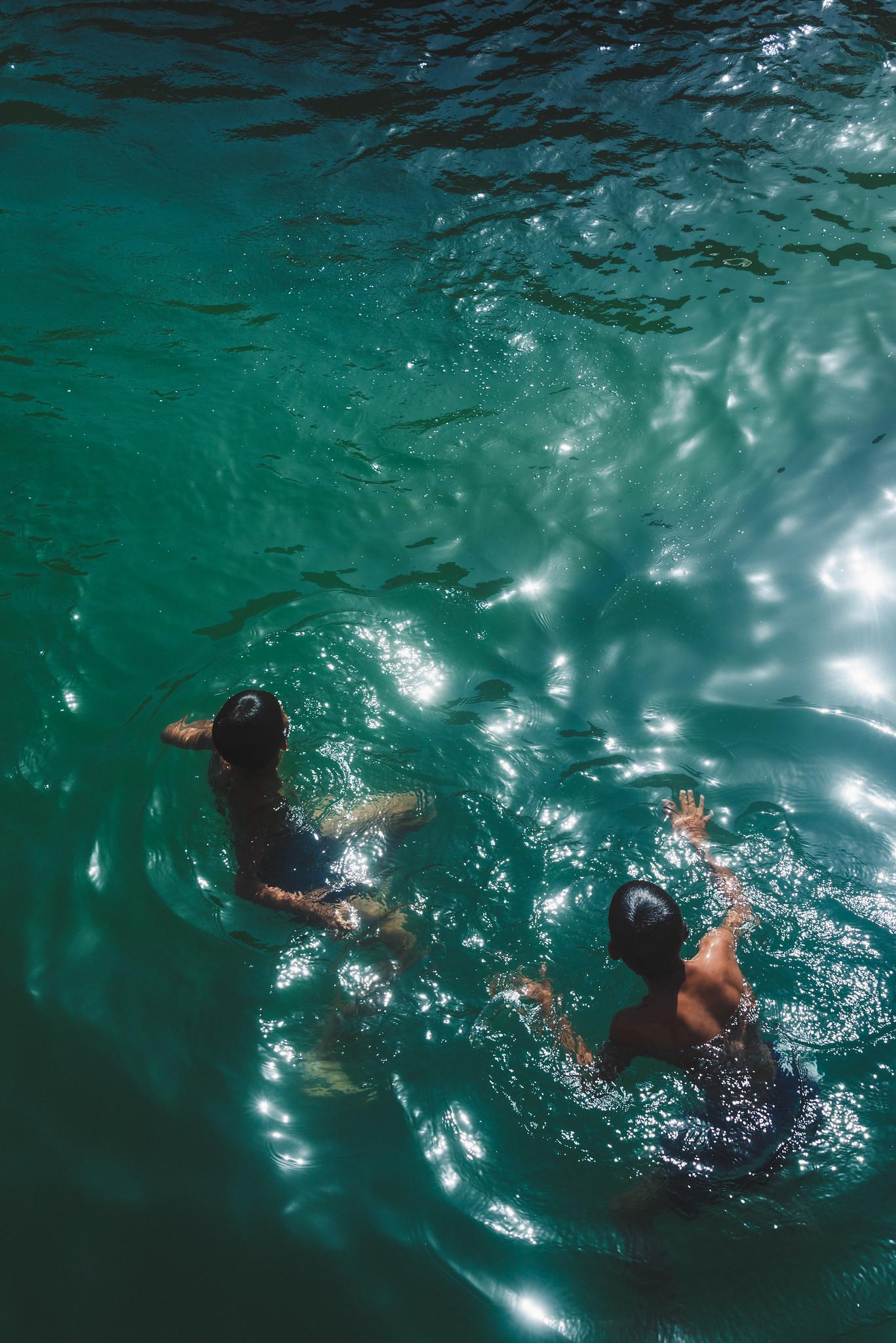
The most beautiful sight is when you see the water weaving between two towering cliffs, painting nature’s magnificent brushstrokes.
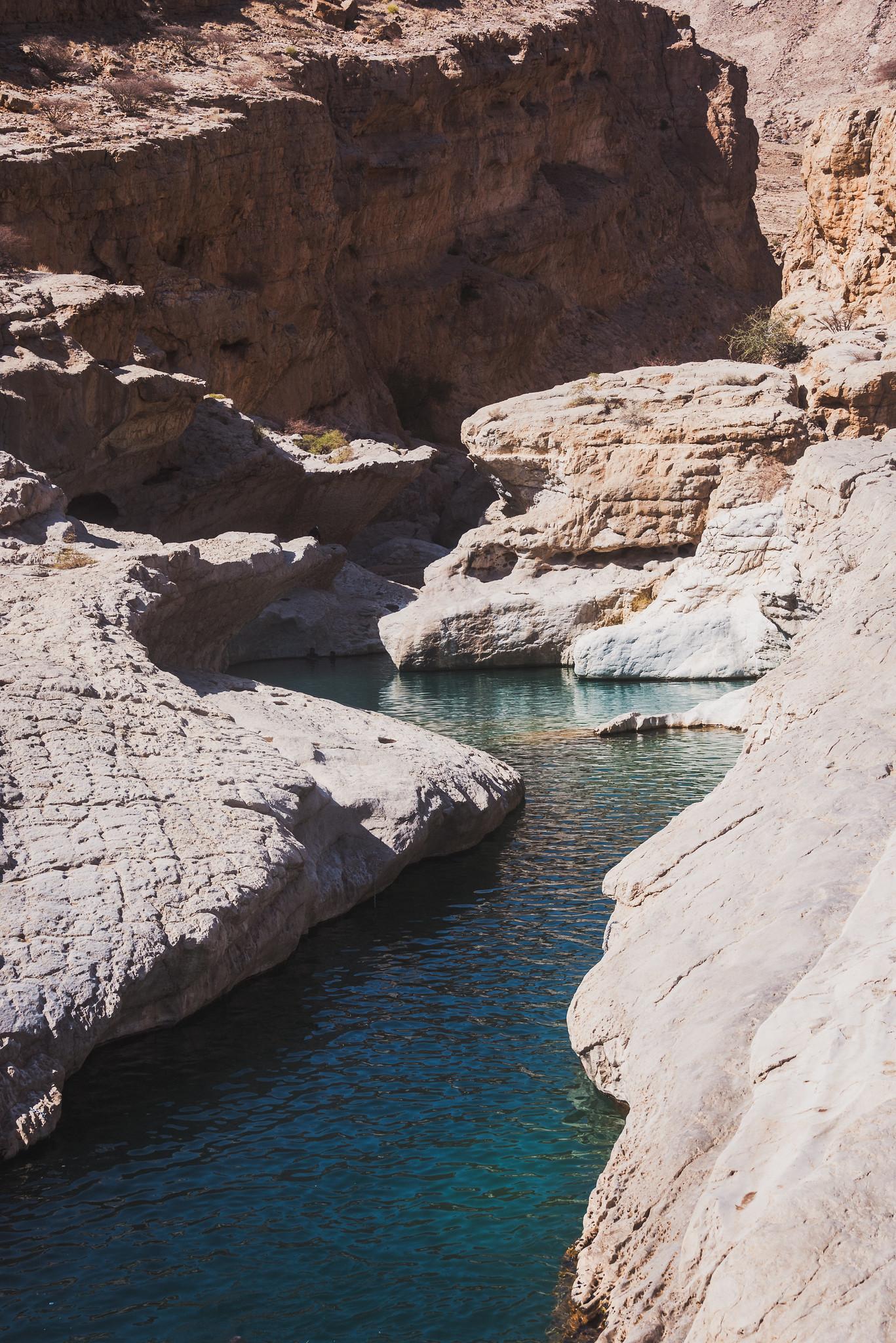
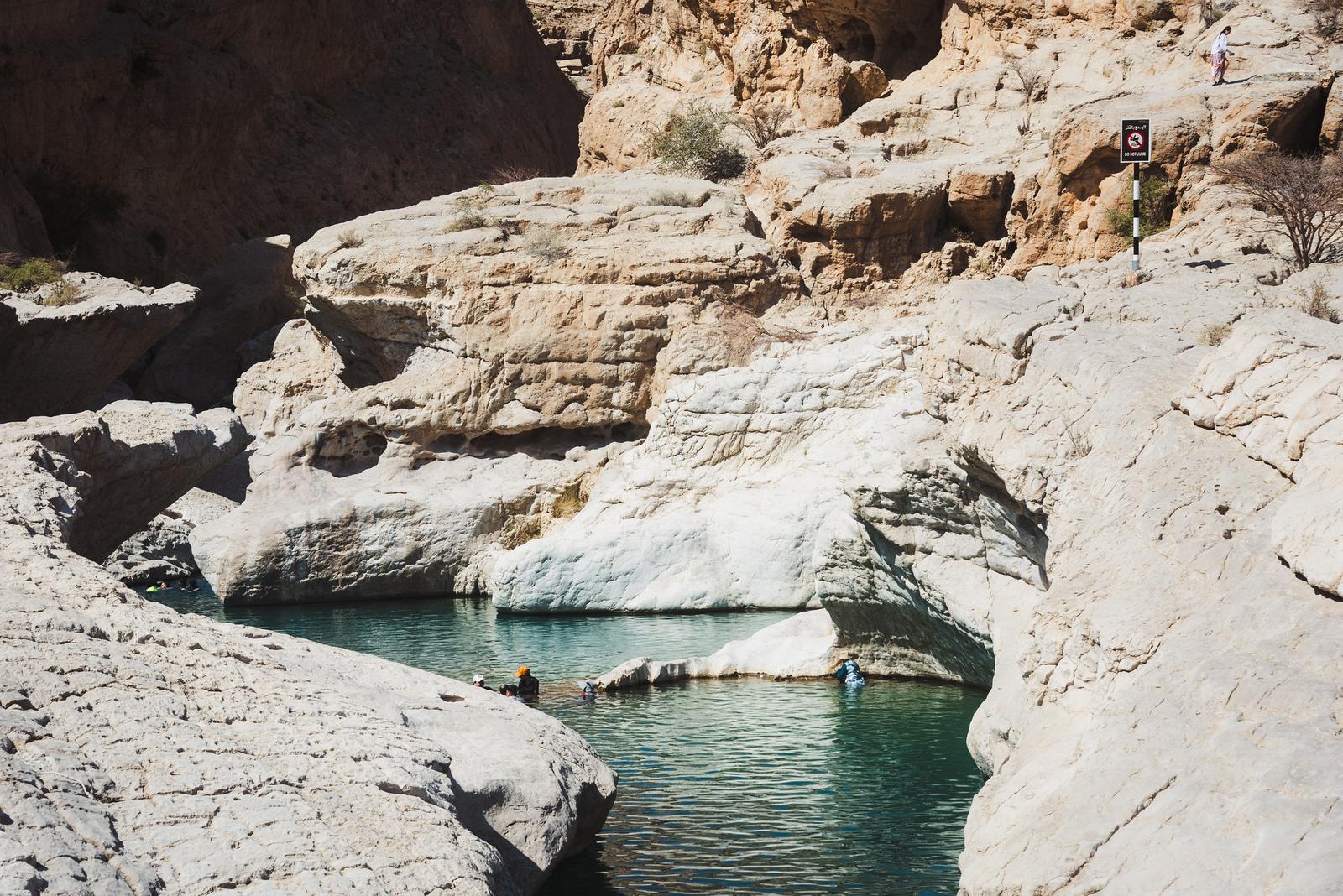
I had to return to the car before 4pm, but while walking back I got lost amidst the palm groves and stumbled into the water channel, soaking my pants; fortunately I met a gardener who showed me the way down, then a group of kids swarmed around me asking for photos, which delayed me even more before I finally made it back to the car to continue the journey.
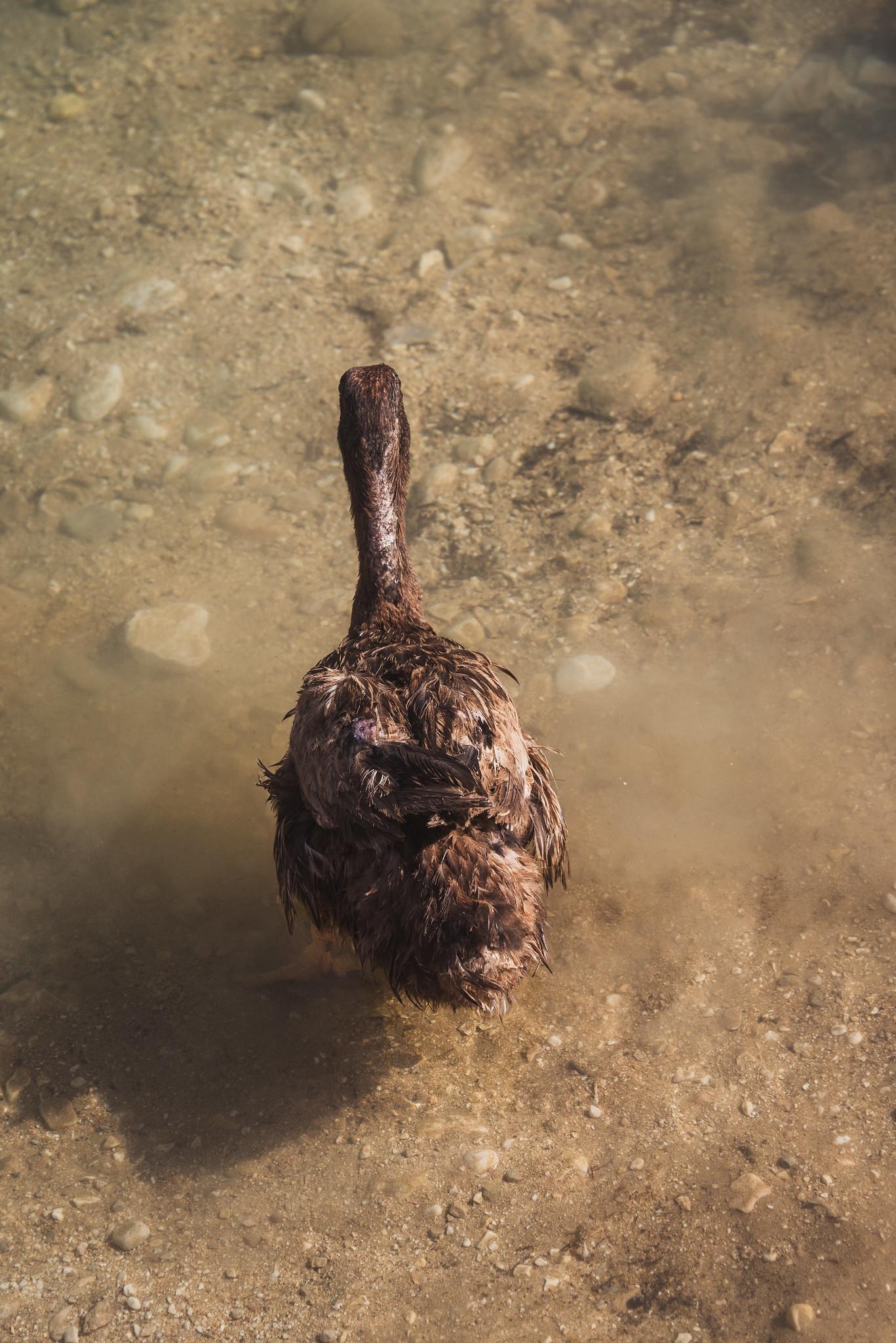
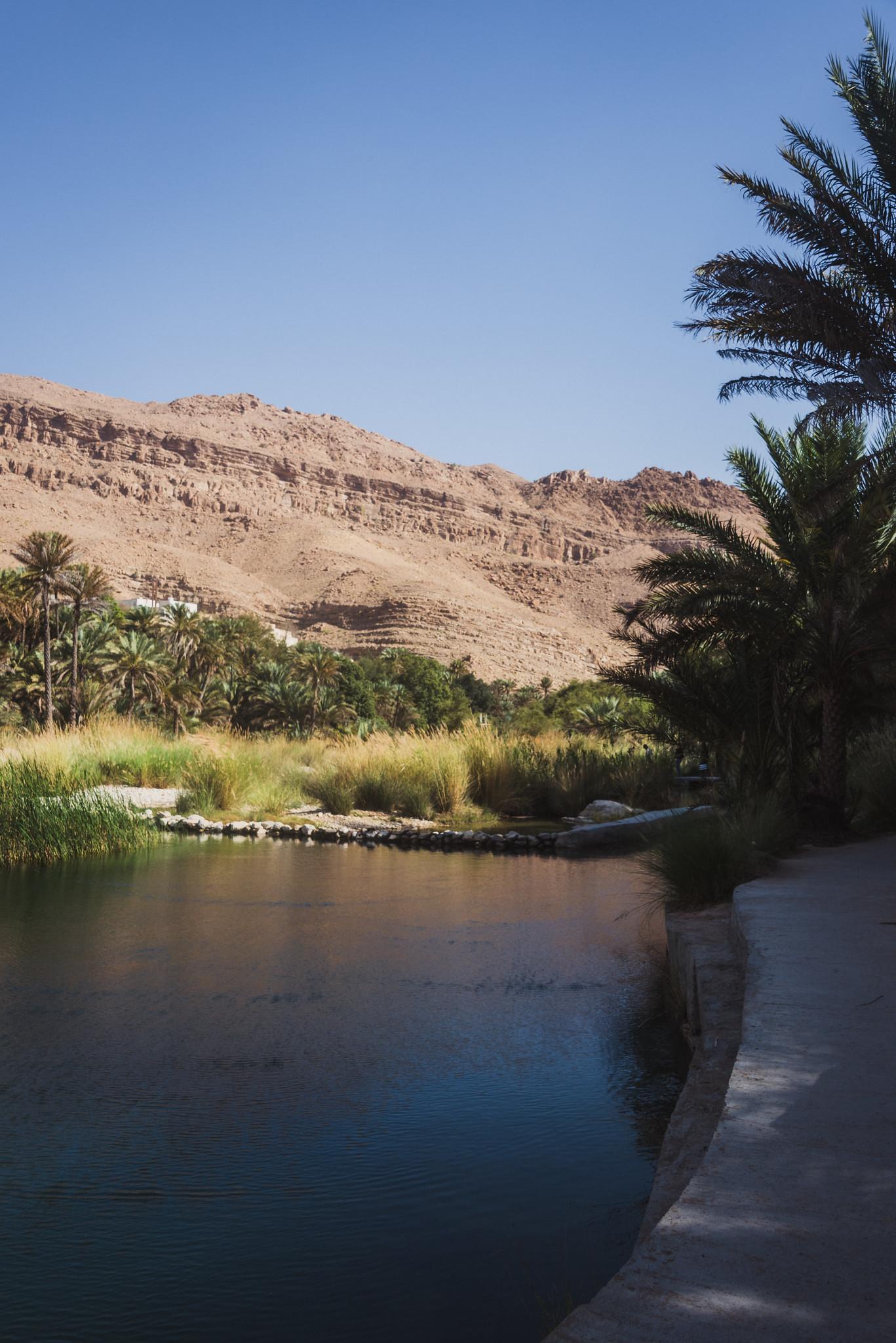
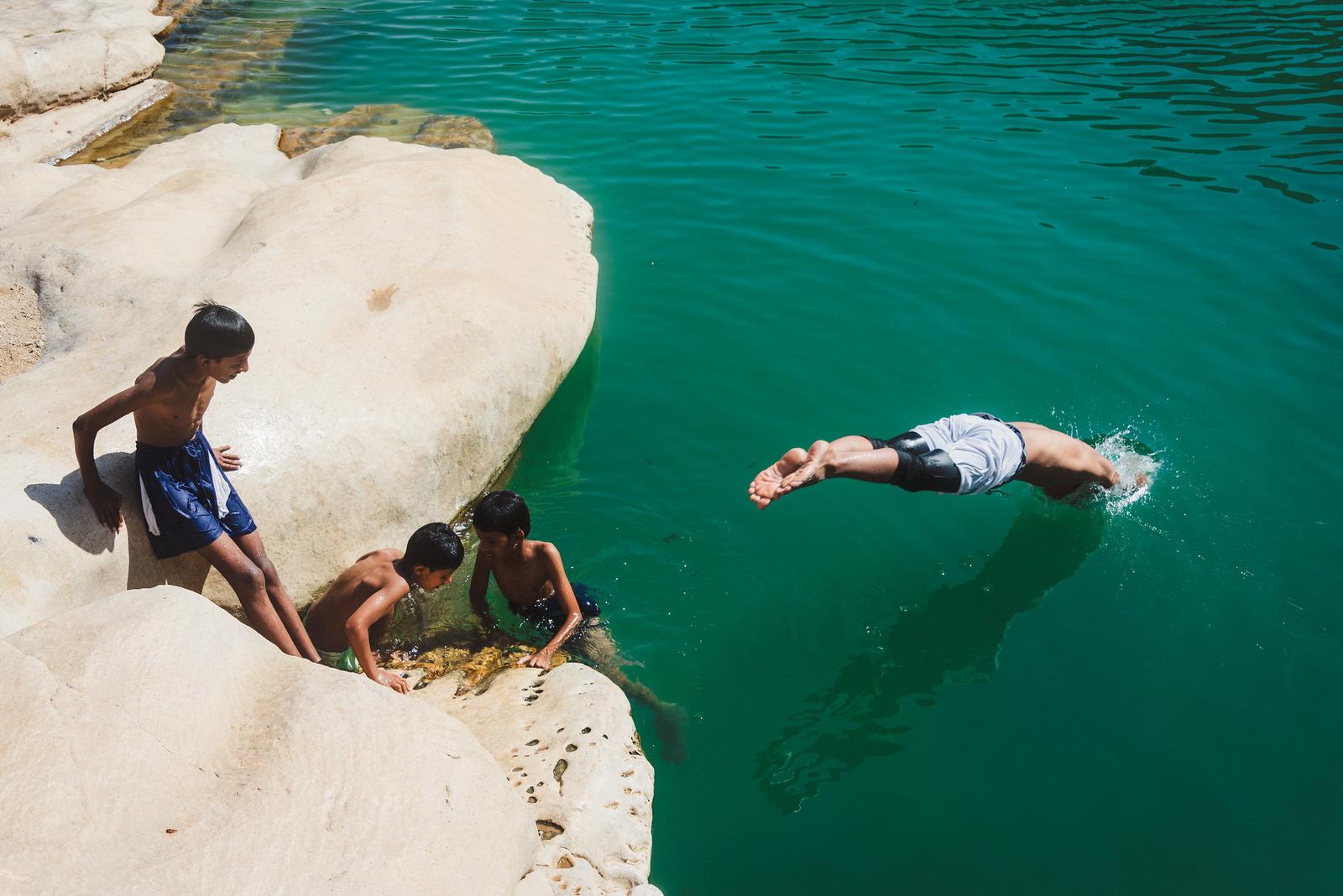
Heading to the Desert
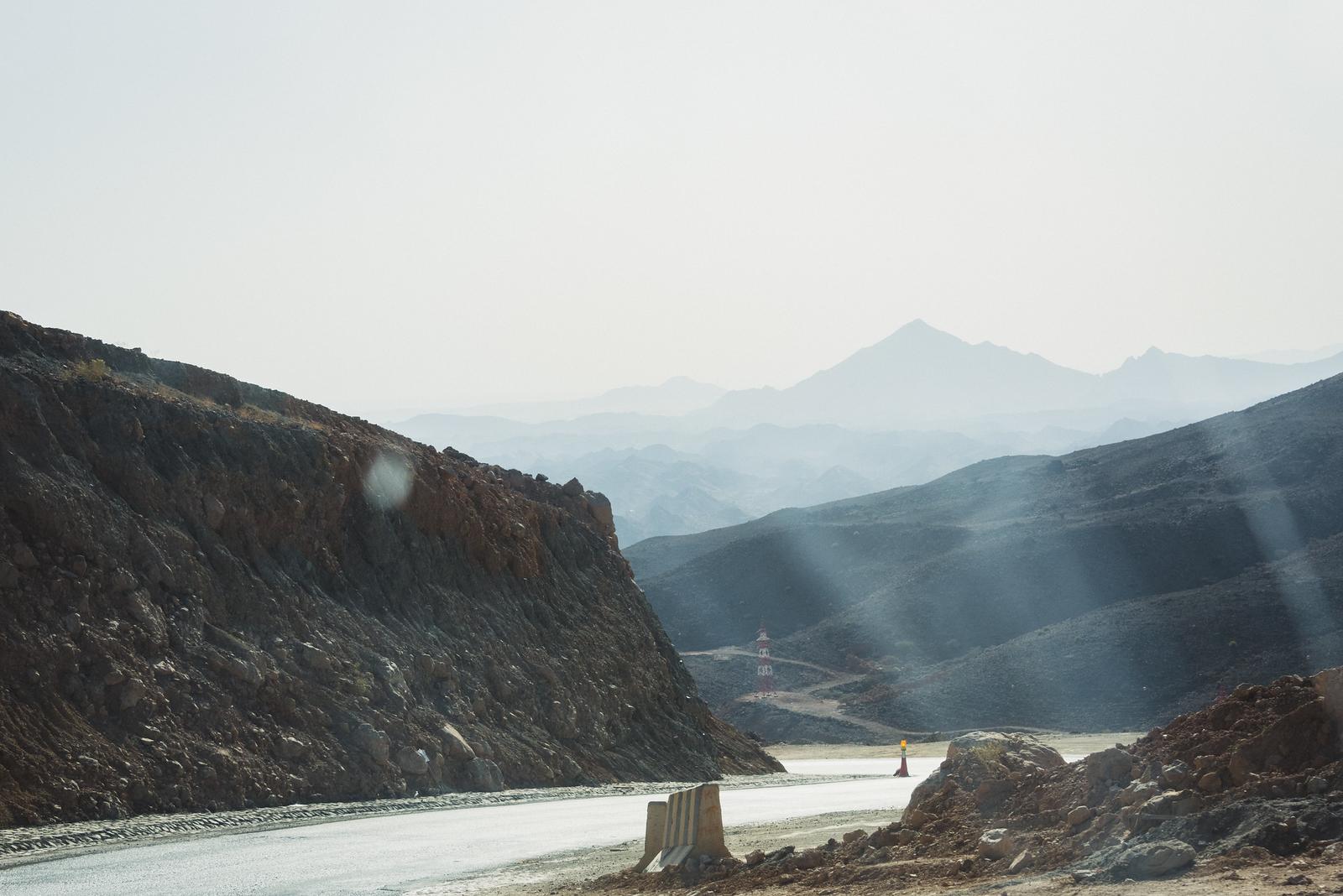
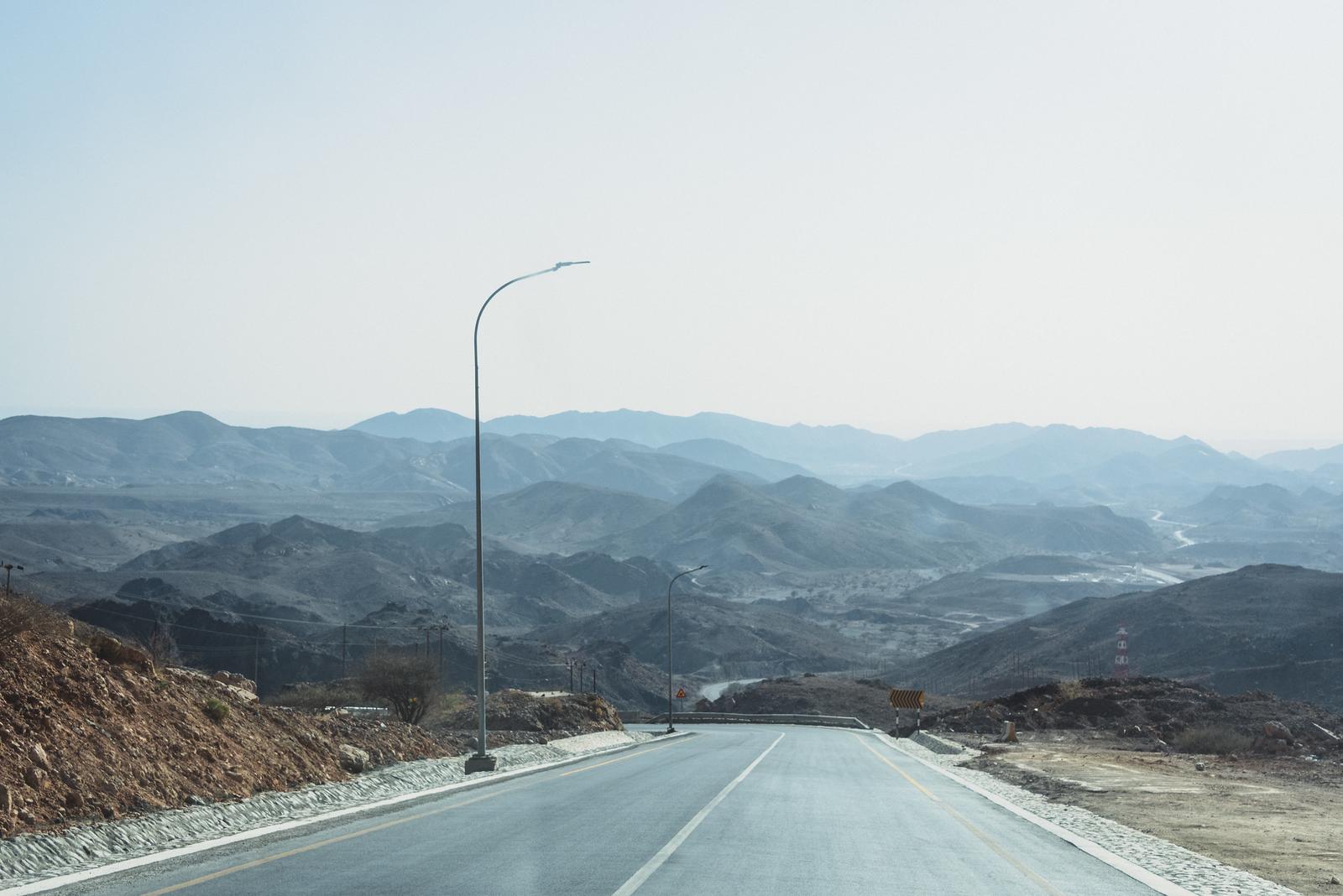
The journey from Wadi Bani Khalid to Wahiba Sands was a stunning mountain route that reminded me of previous road trips, with slopes rising and falling, winding along the mountainsides, and finally opening up to reveal the light stretching across the distant horizon before the travelers’ eyes.
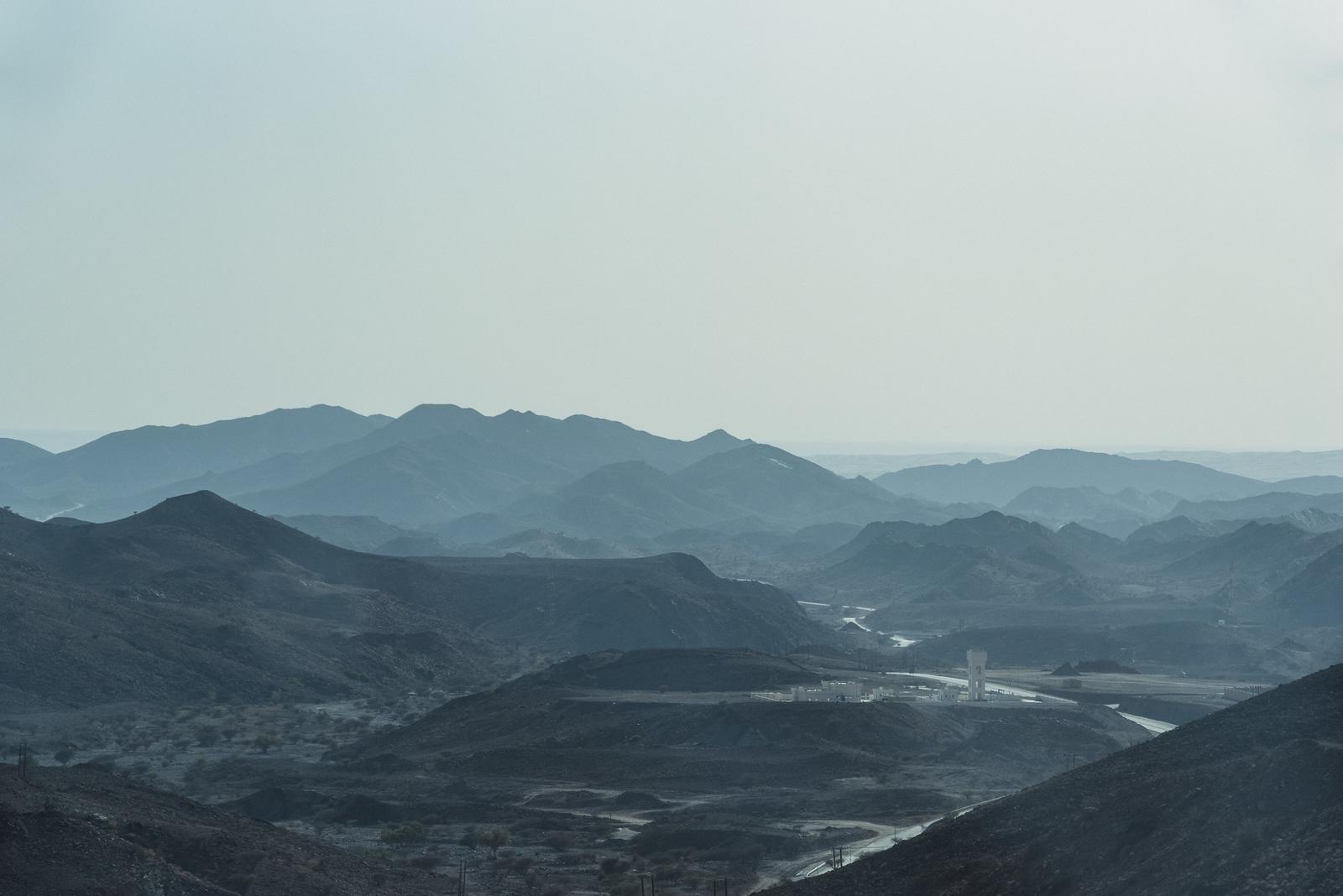
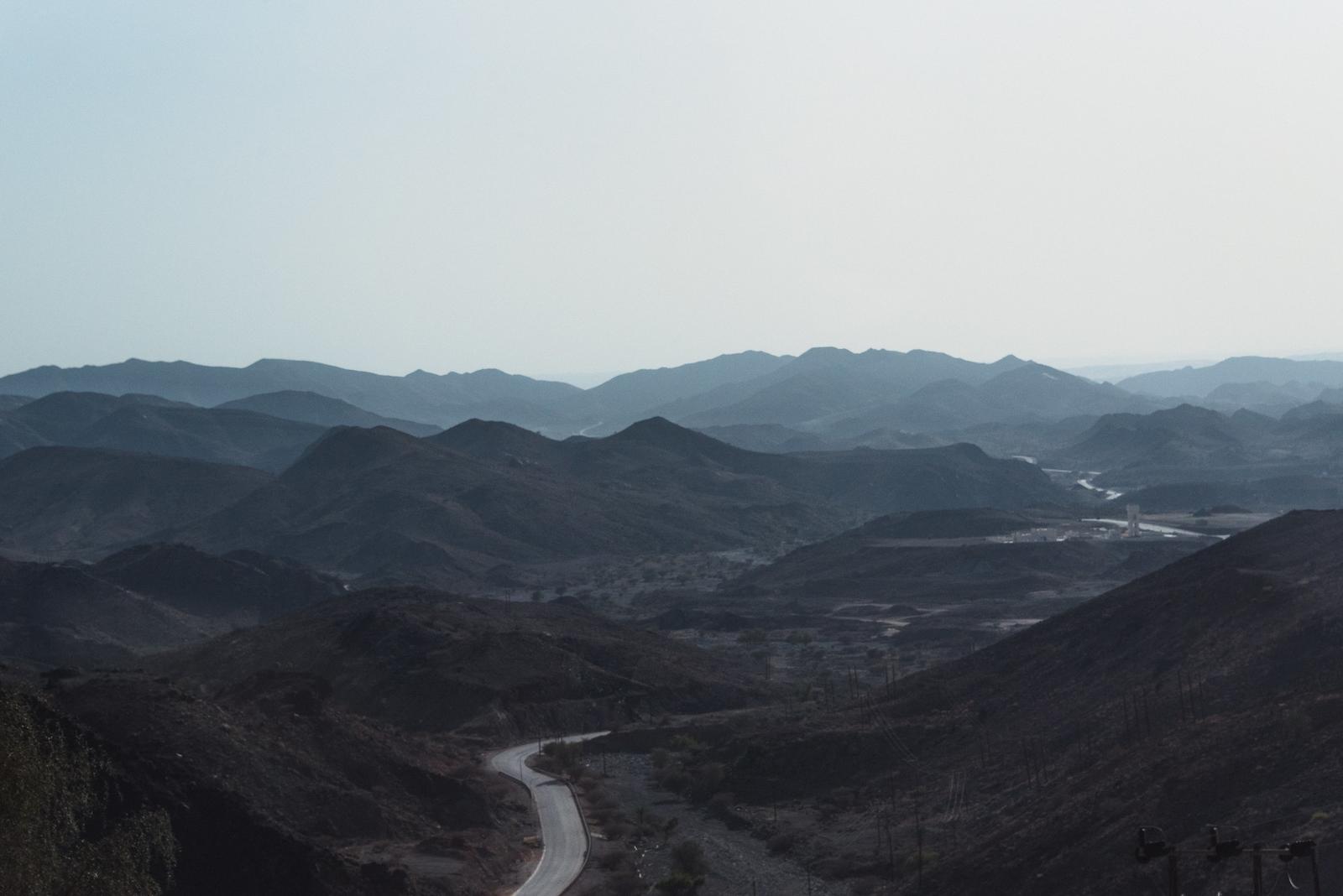
Our car headed to Bidiyah Town to deflate the tires for better suiting the desert terrain before continuing the ride. Bidiyah is the gateway town at the desert’s edge, and from this point on, the red sand dunes gradually replace the rocky mountains, dotted with green oases of palm trees.
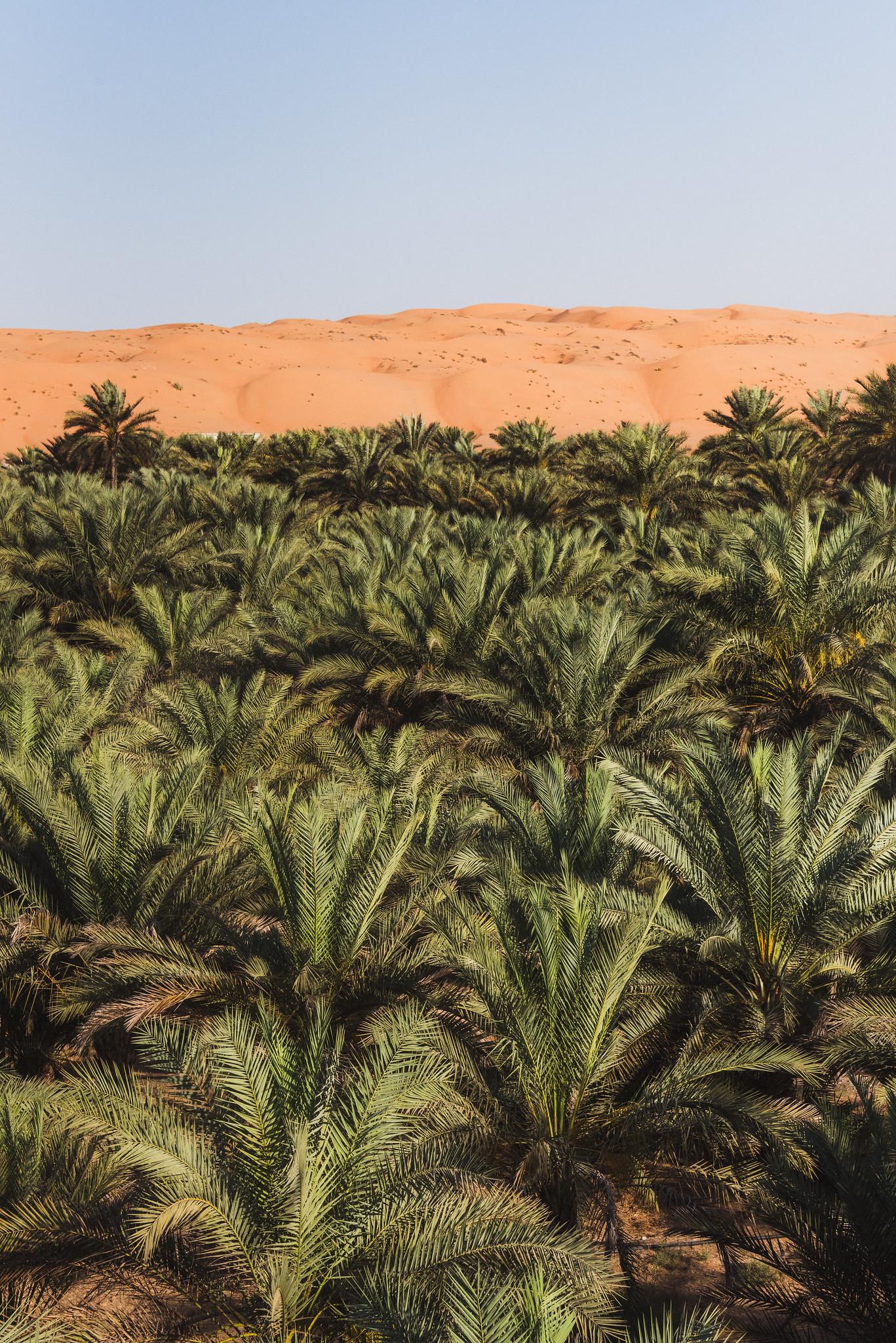
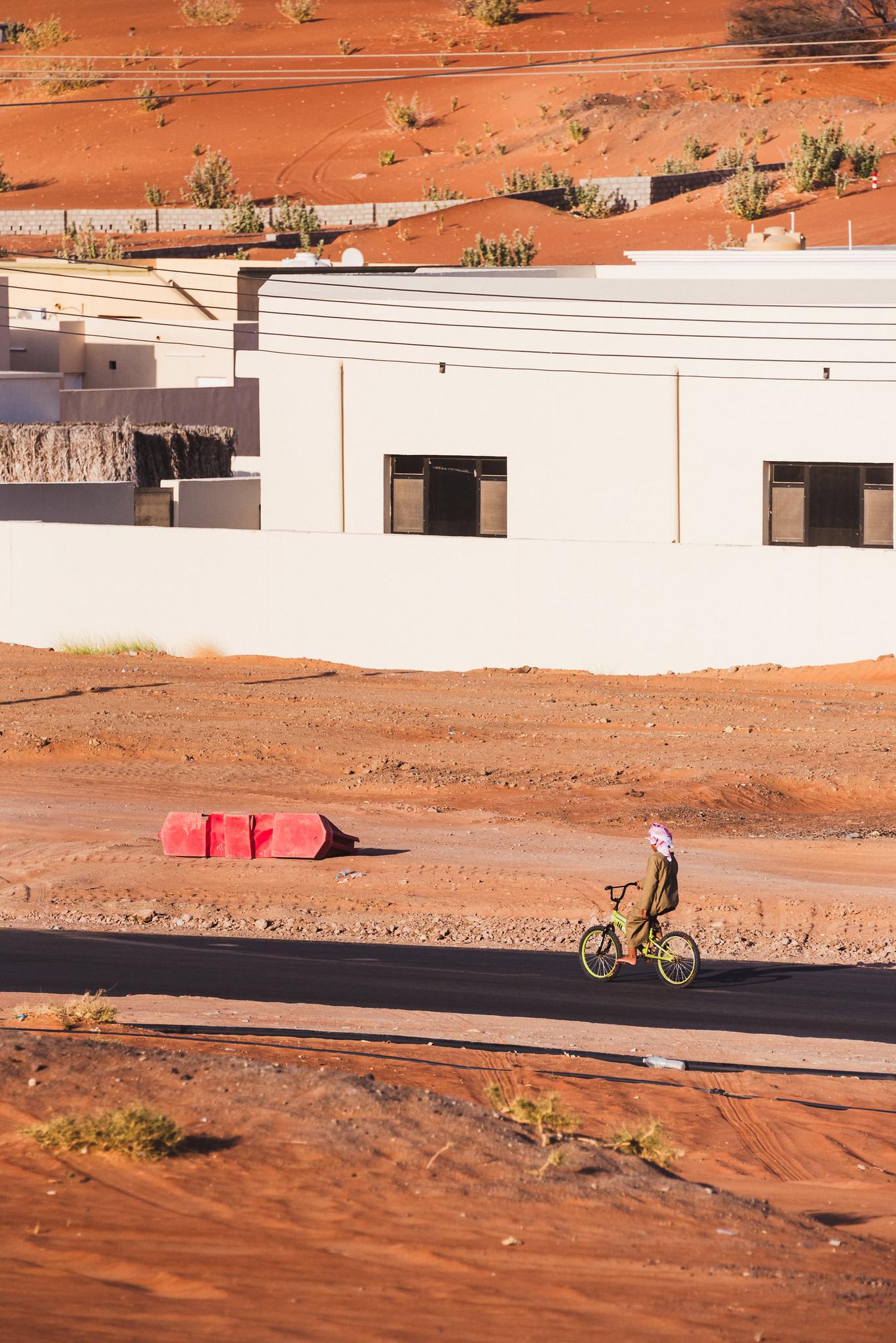
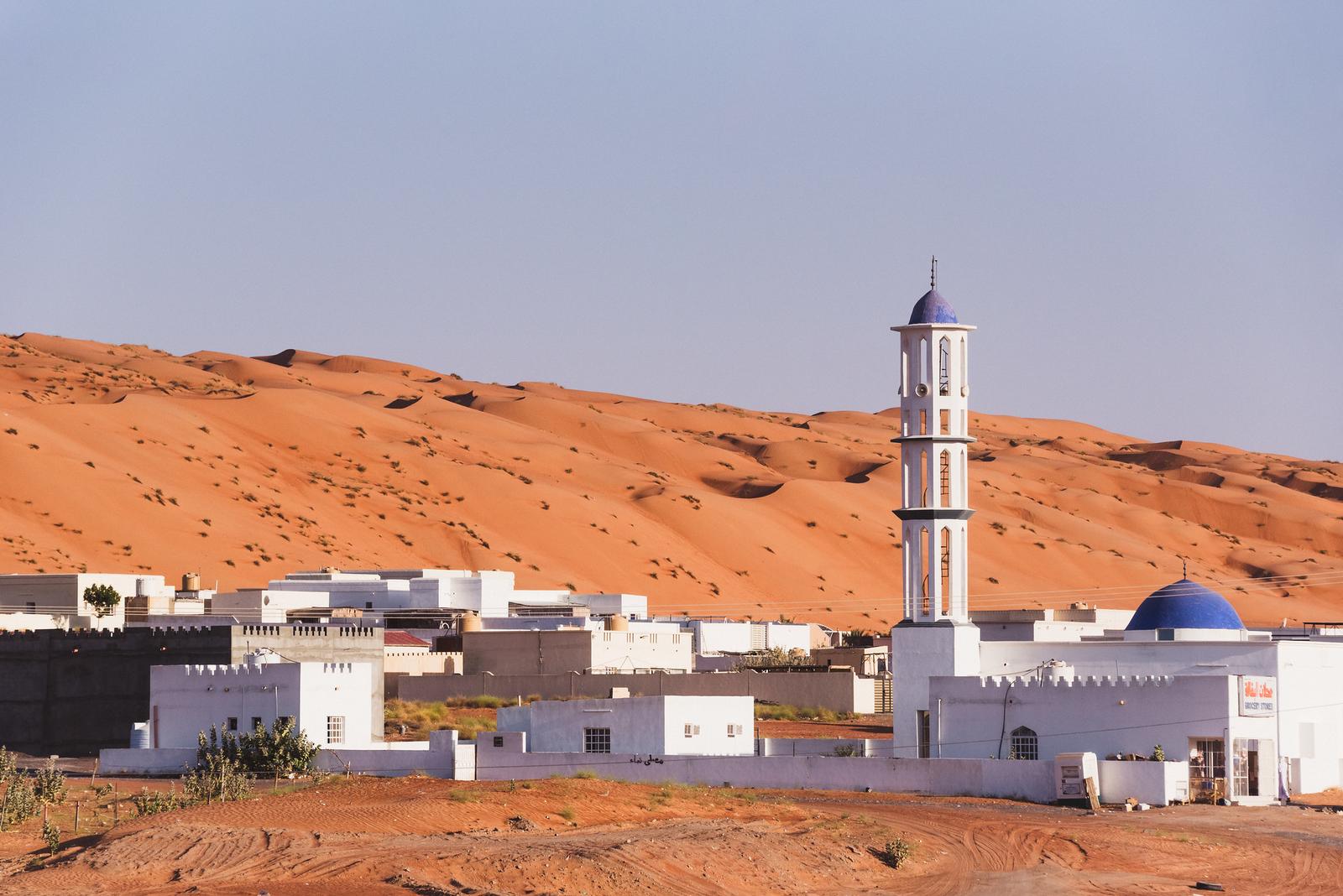
We can also try riding the camels, in my opinion, the single-humped camels always seem gentler than the double-humped ones of Central Asia.
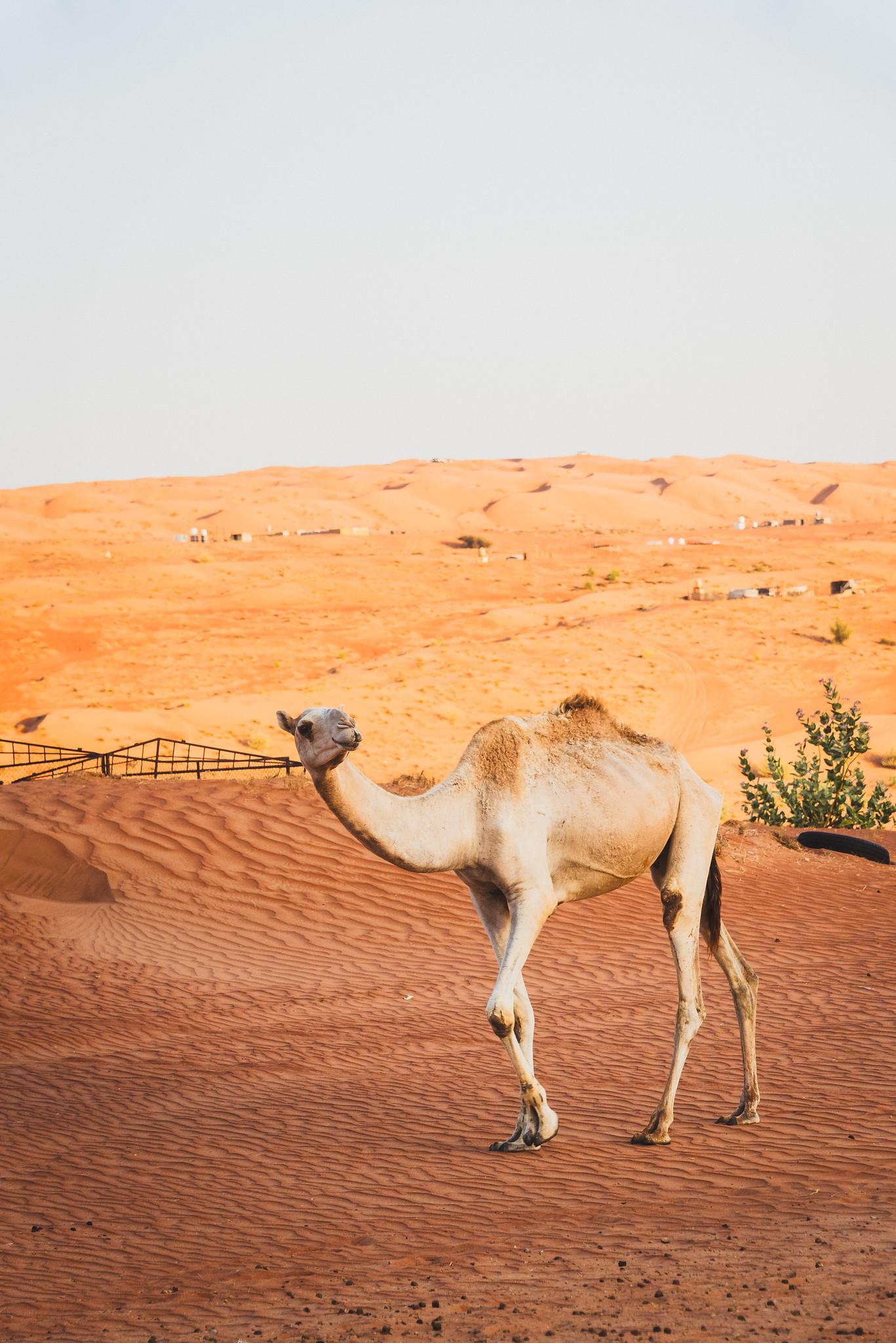
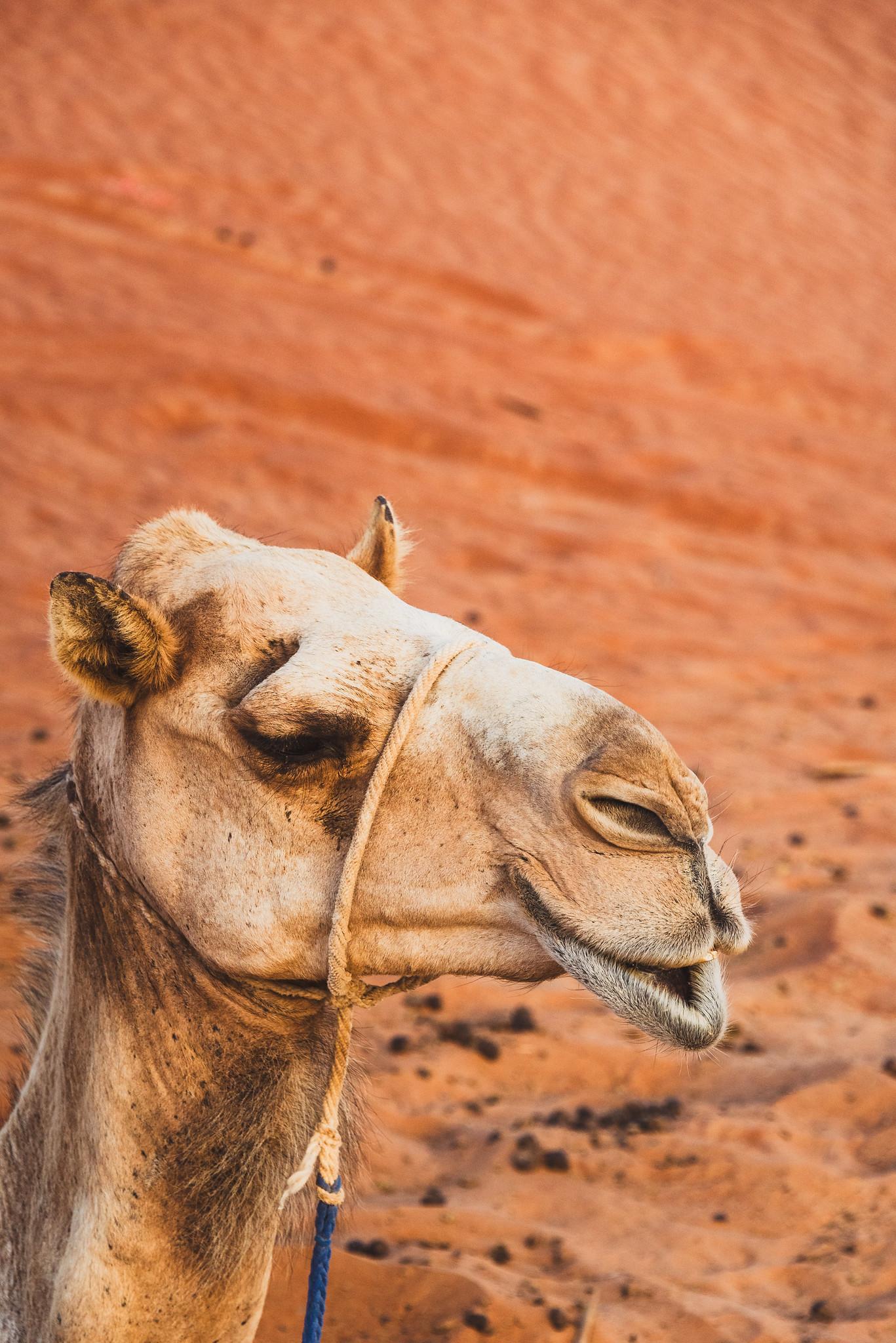
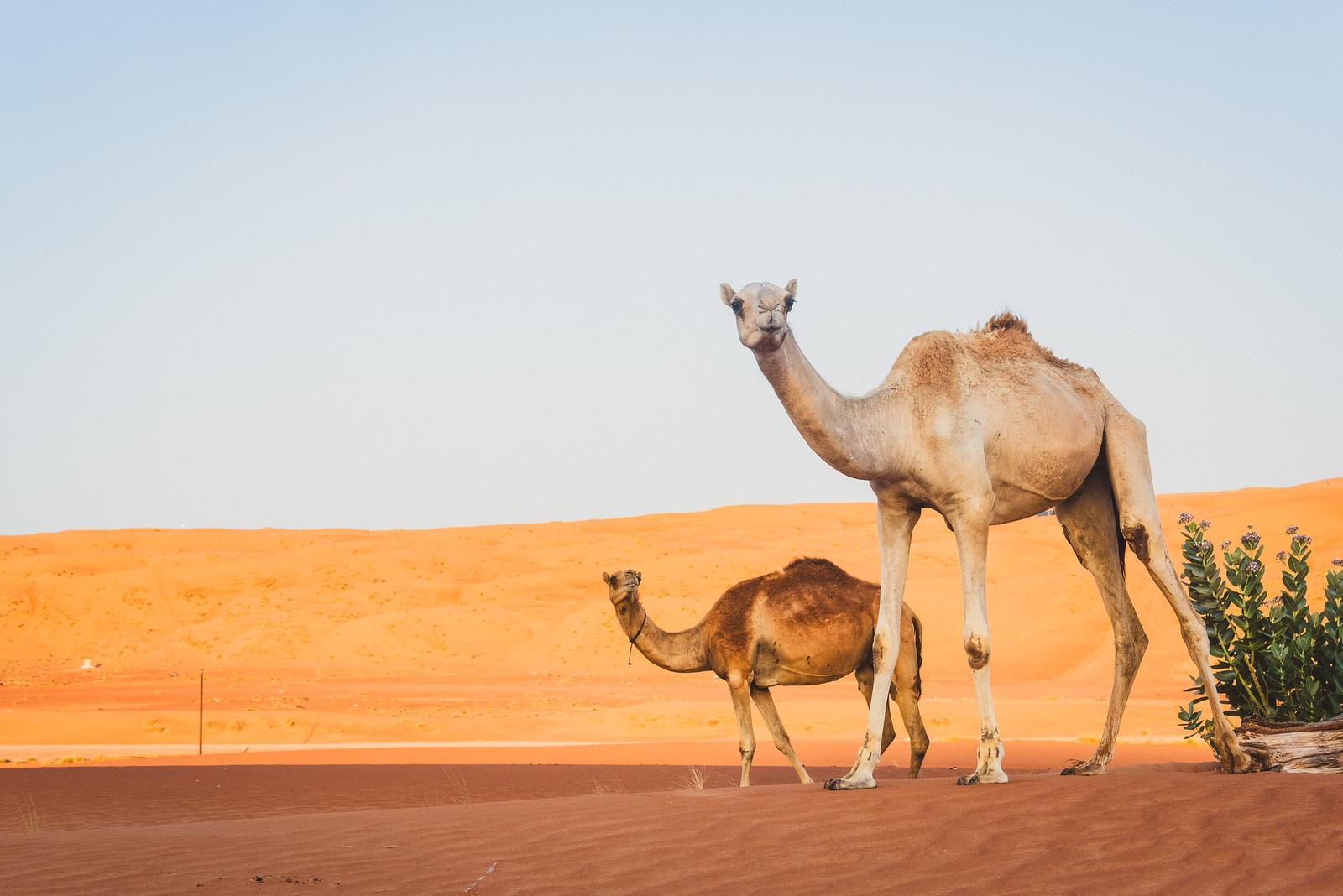
Inside a Bedouin House
According to the itinerary, we would visit a Bedouin house in the middle of the desert, where everyone could sit on carpets, drink coffee, eat dates and chitchat about all kinds of things. Although it’s still blazing hot outside, stepping inside the house felt surprisingly cool.
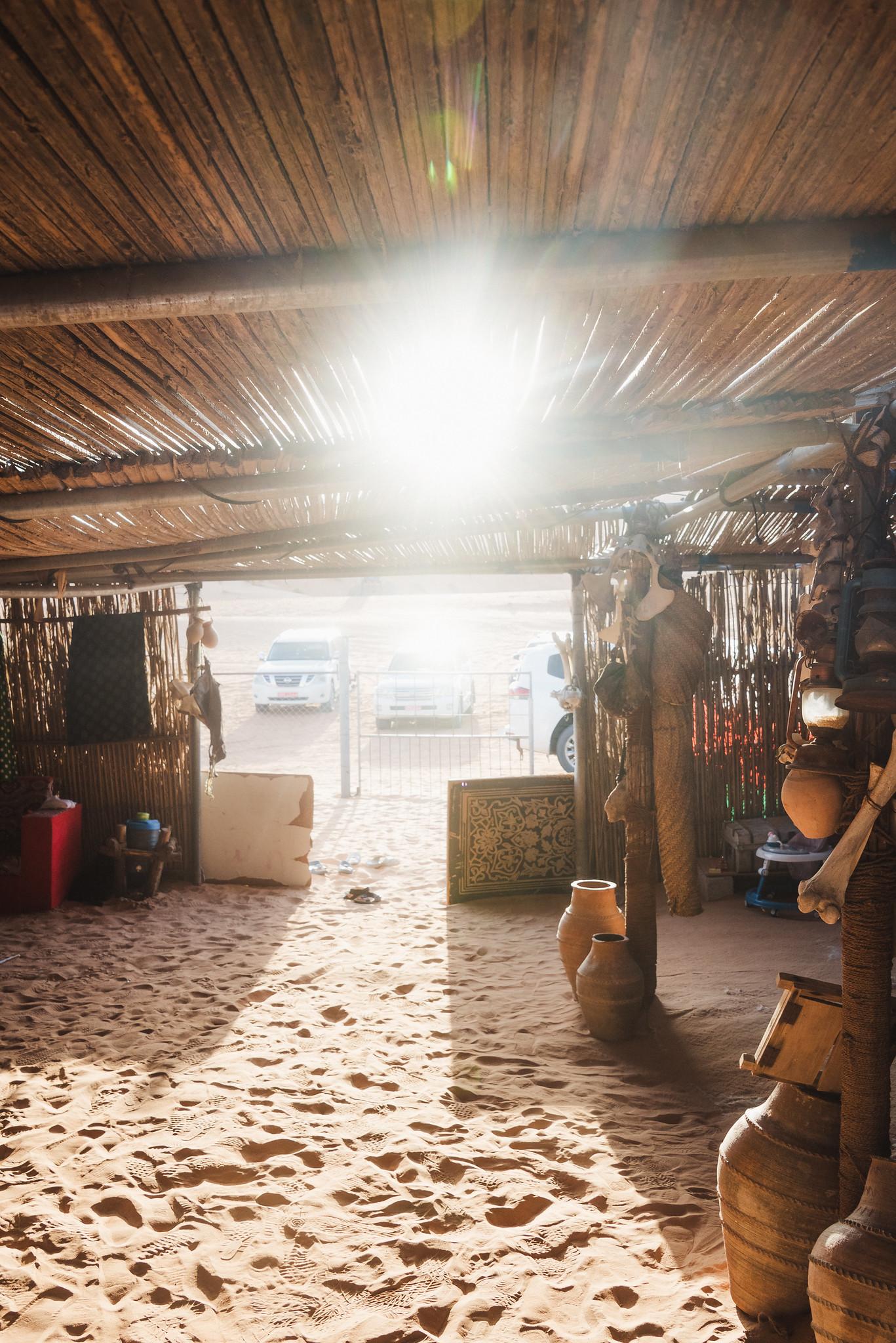
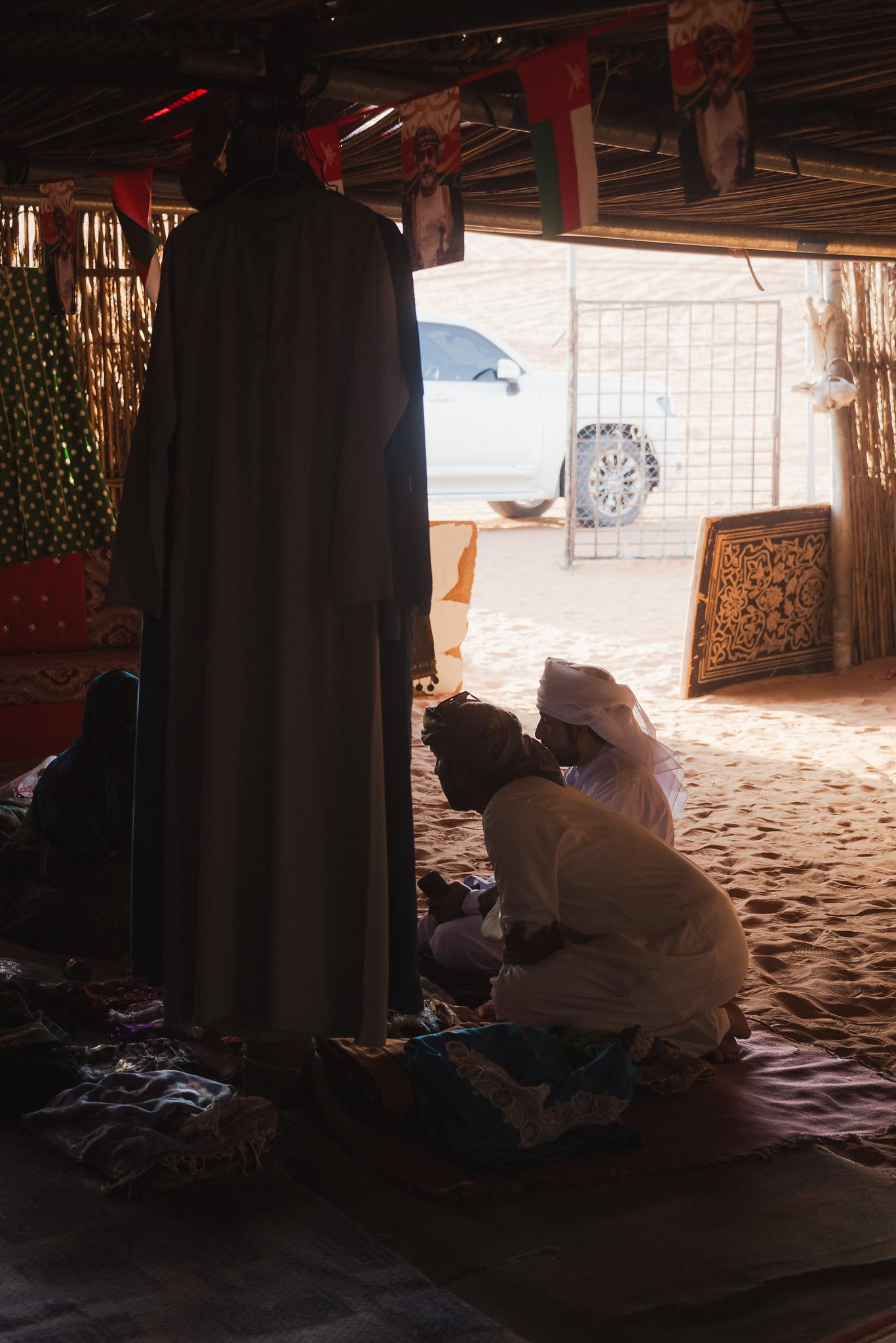
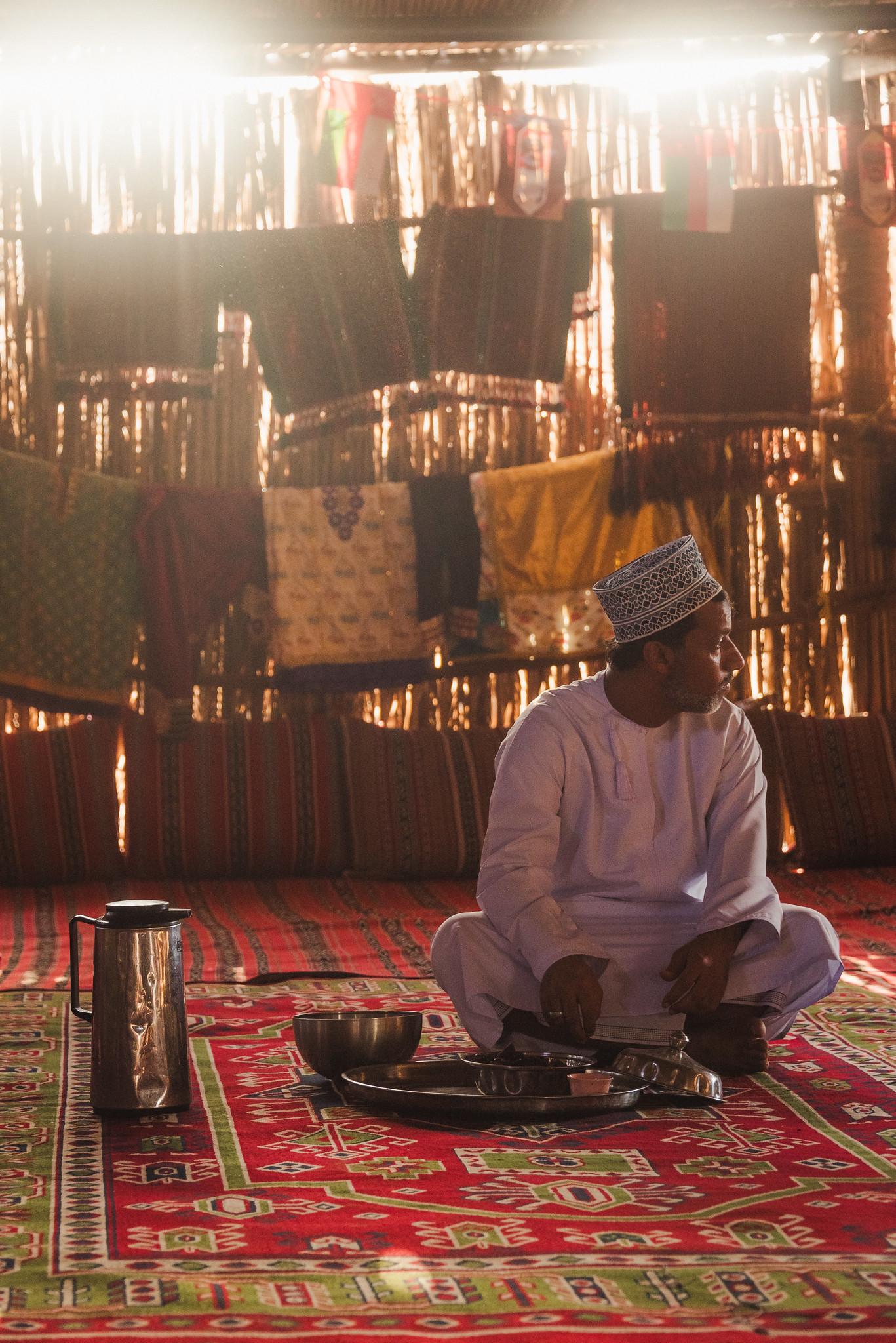
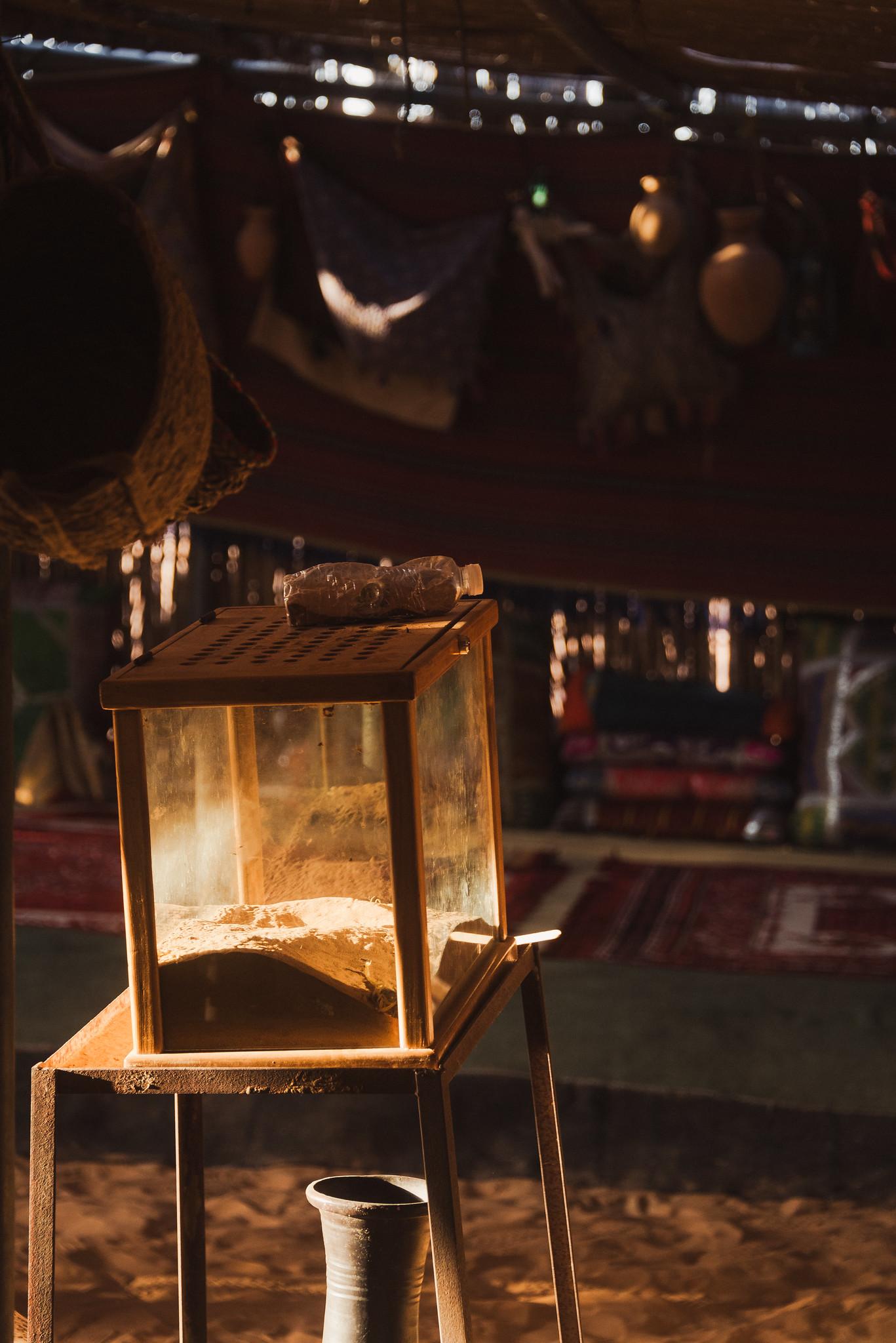
Footprints on the Sands of Wahiba
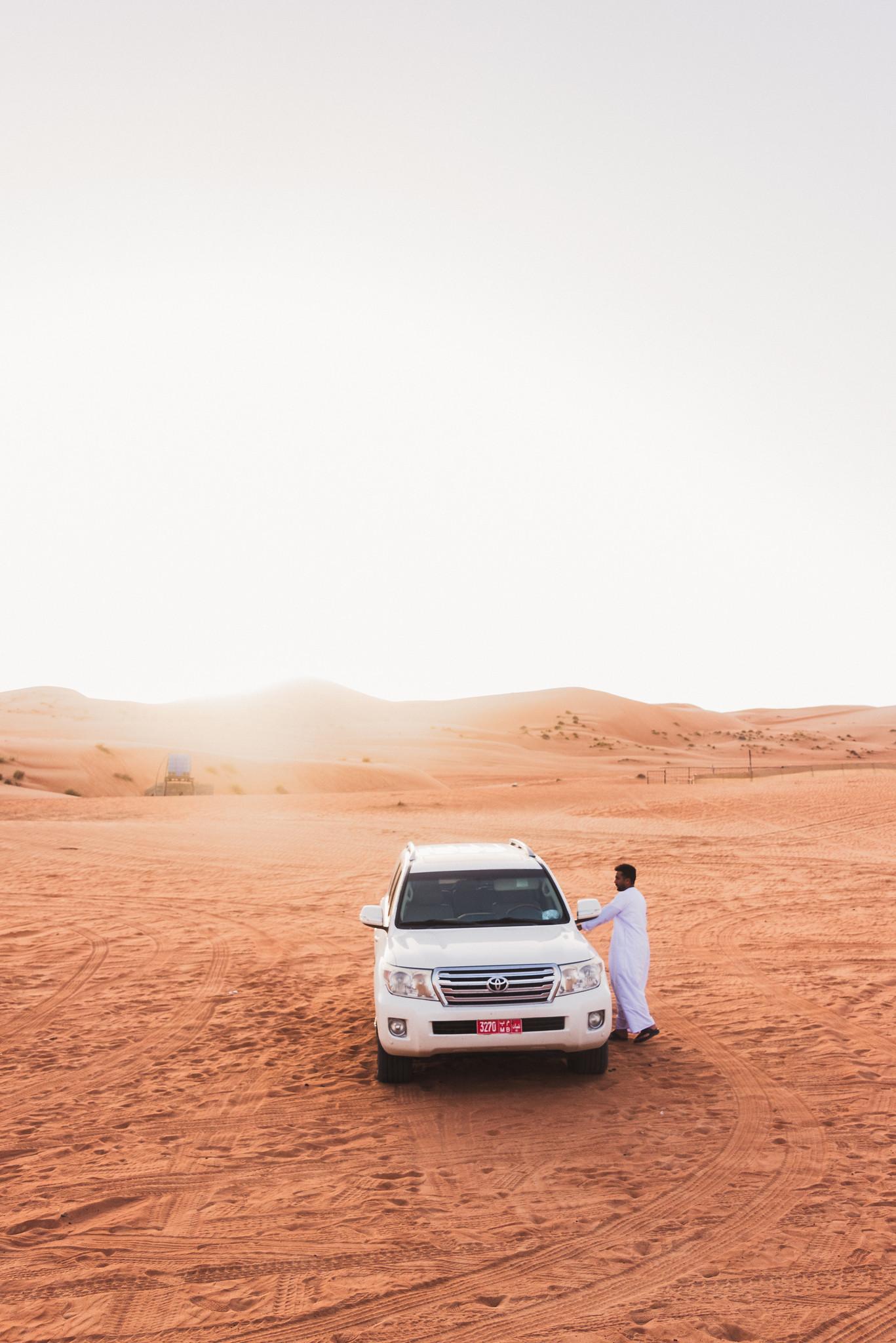
We quickly got into the car to head towards the top of the sand dunes for sunset appreciation. The clear blue sky signaled a promising photo opportunity. From the car window, my eyes were mesmerized by the sight of the sun peeking over the edge of the sand on the horizon.
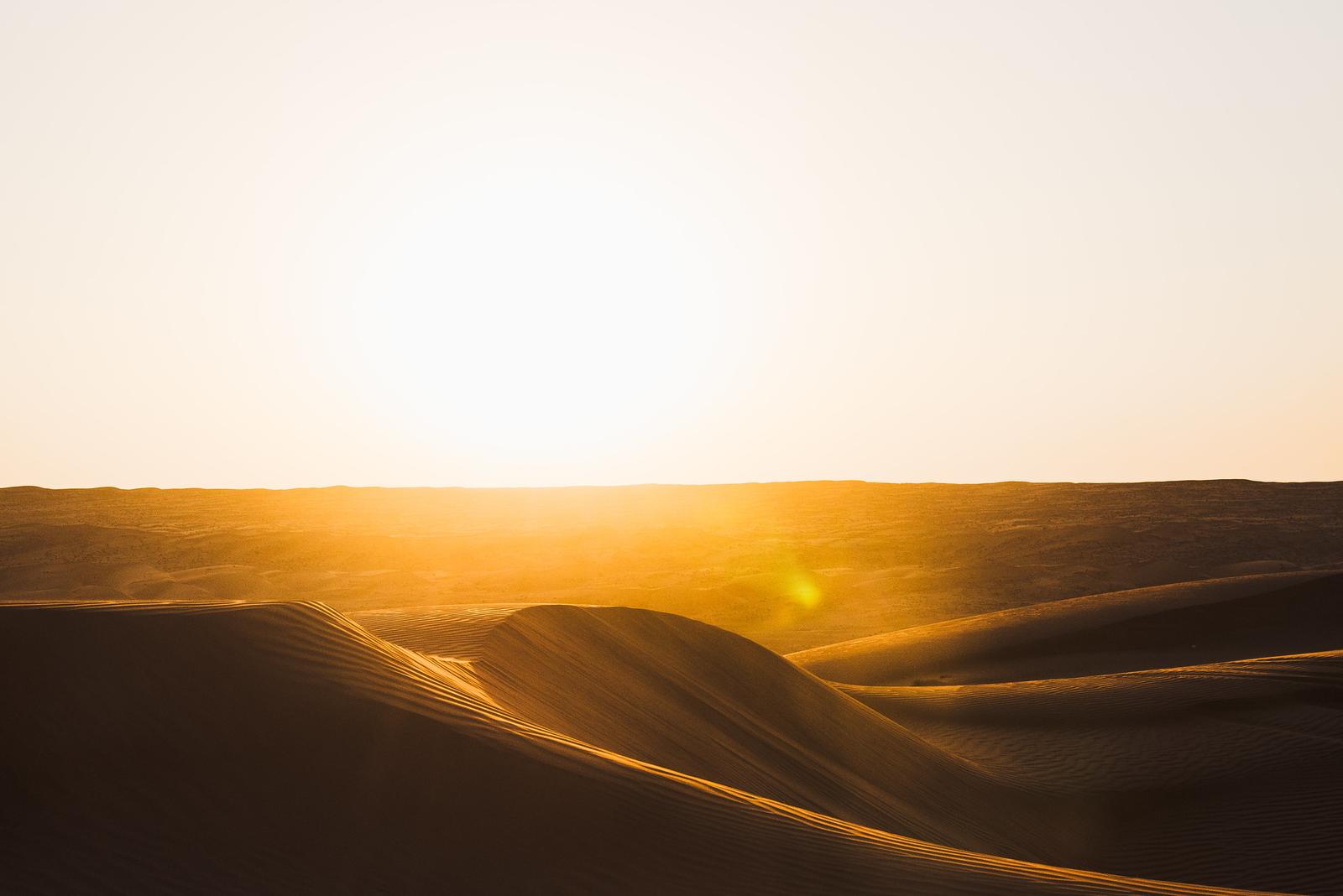
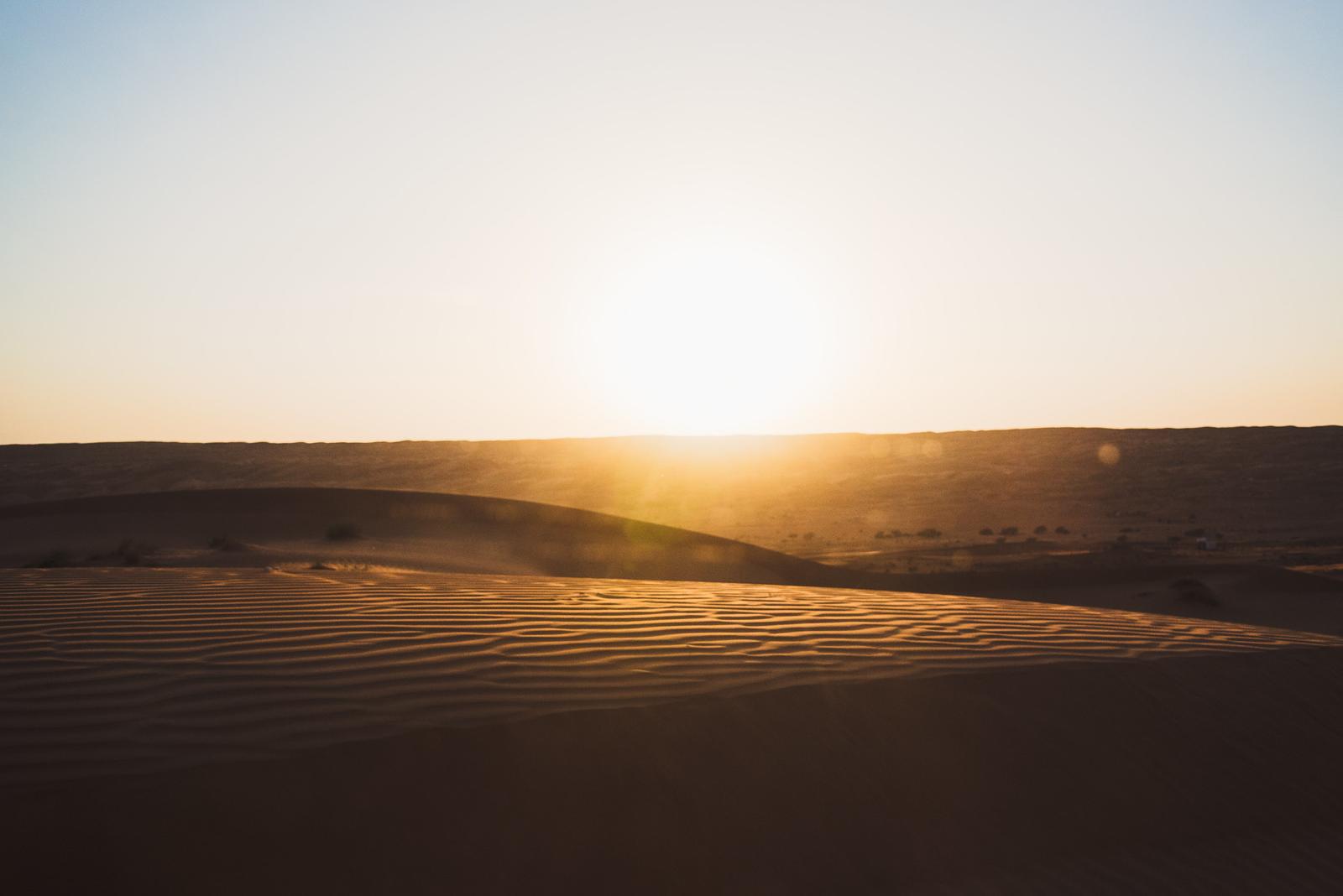
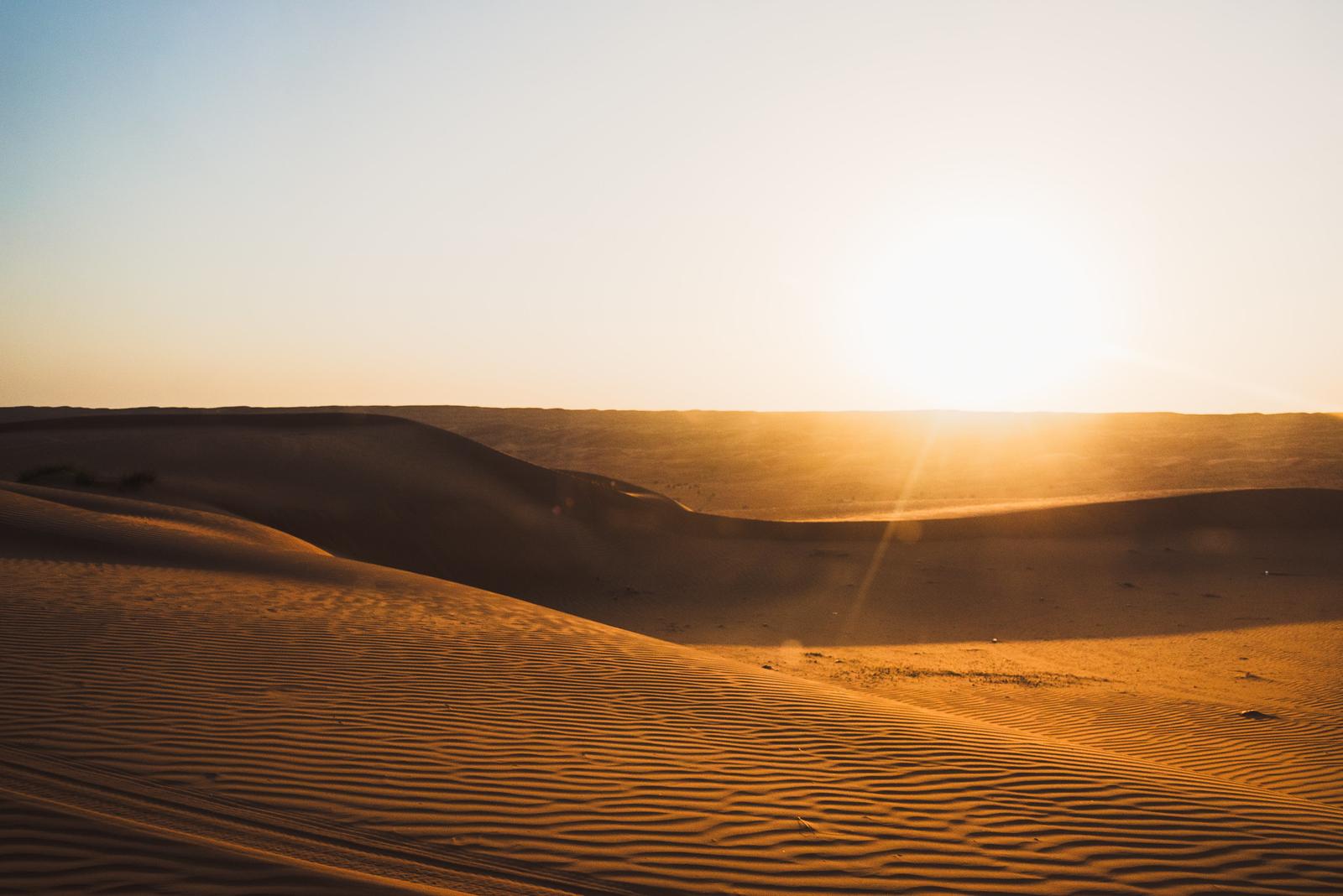
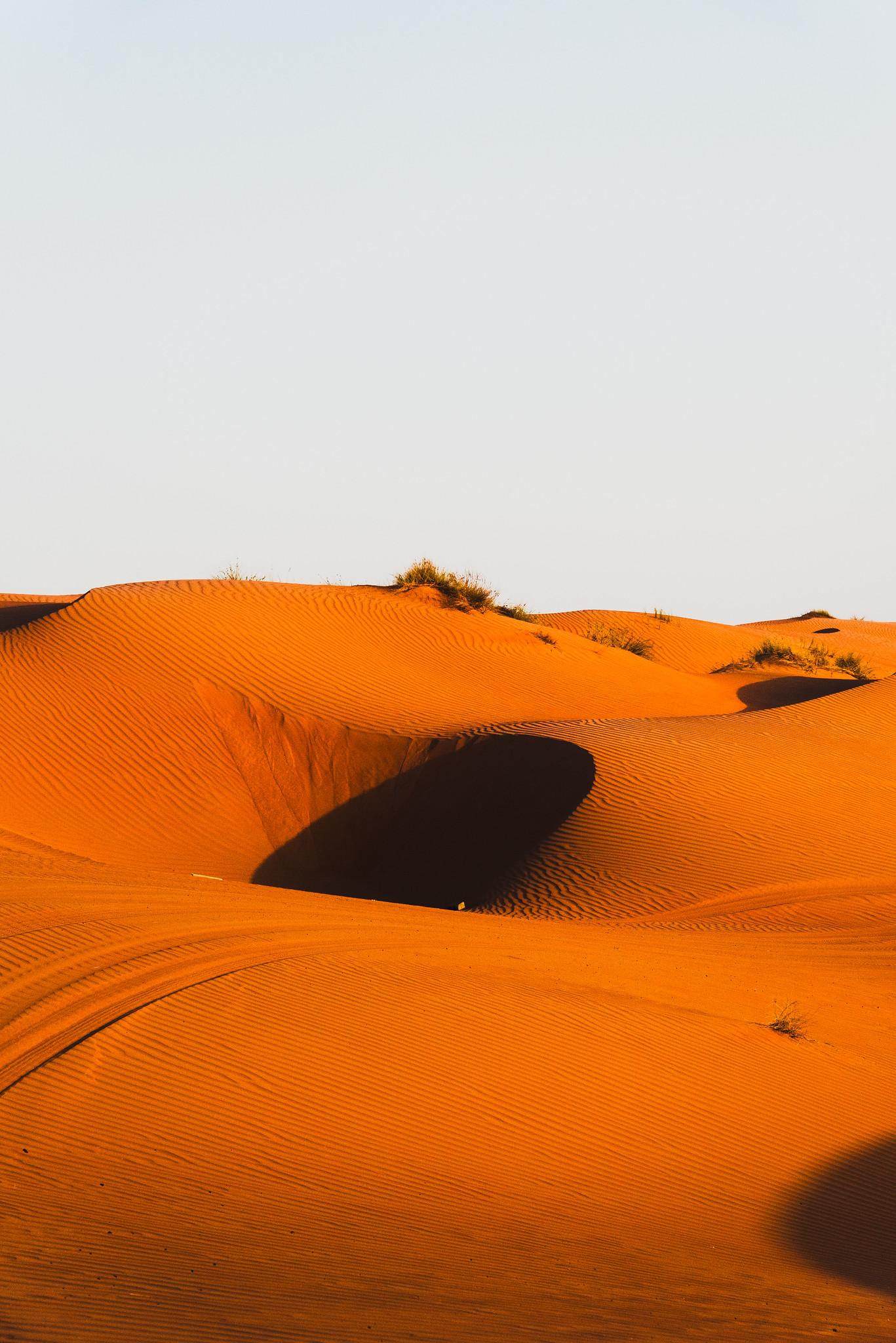
This wasn’t my first time seeing the sand dunes, I had been to Khorezm, Nubra or Elsen Tasarkhai, but those places were either cold desert or semi-desert, which couldn’t compare to the vast ocean of red sand here, a place that holds a gentle beauty yet with harsh conditions.
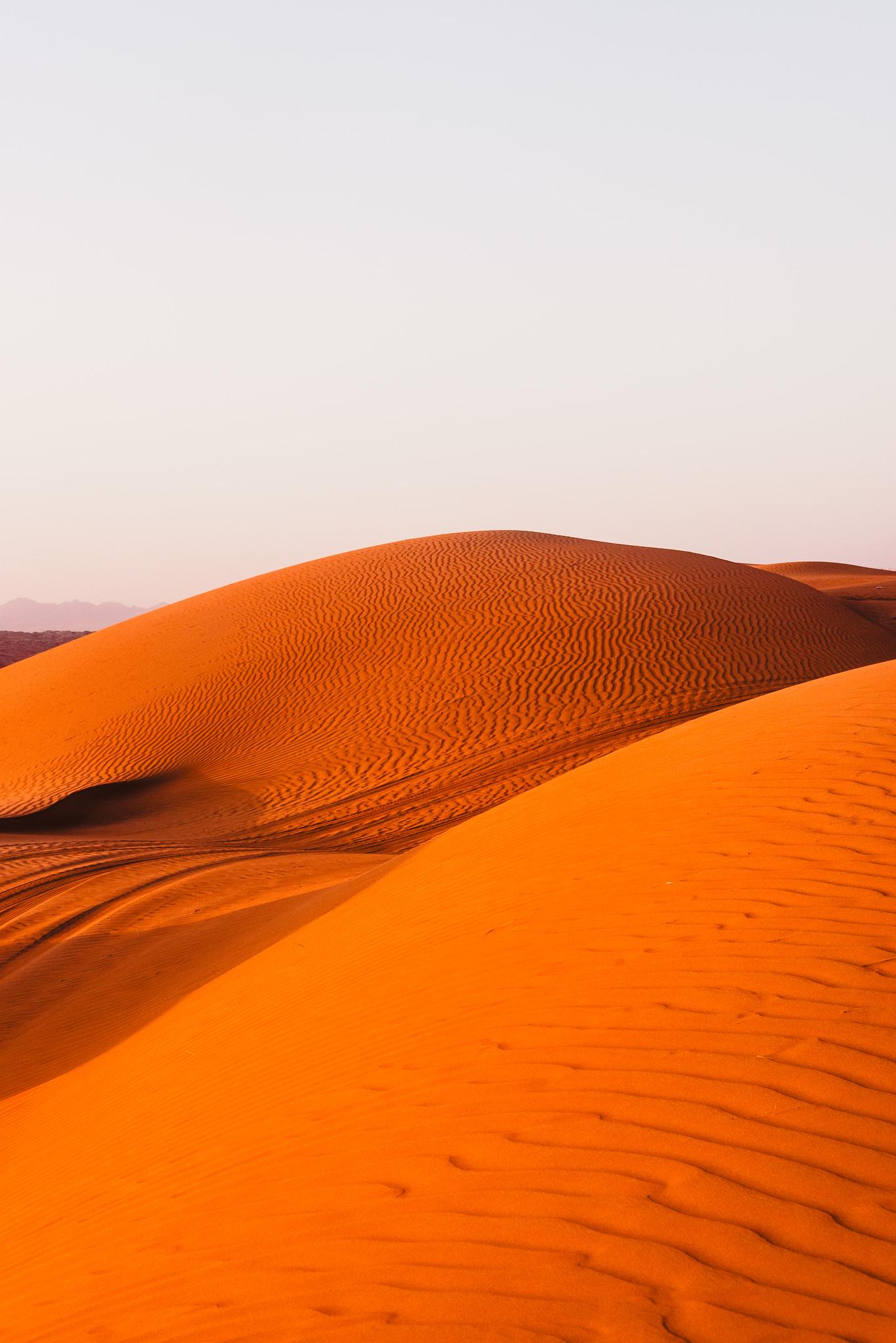
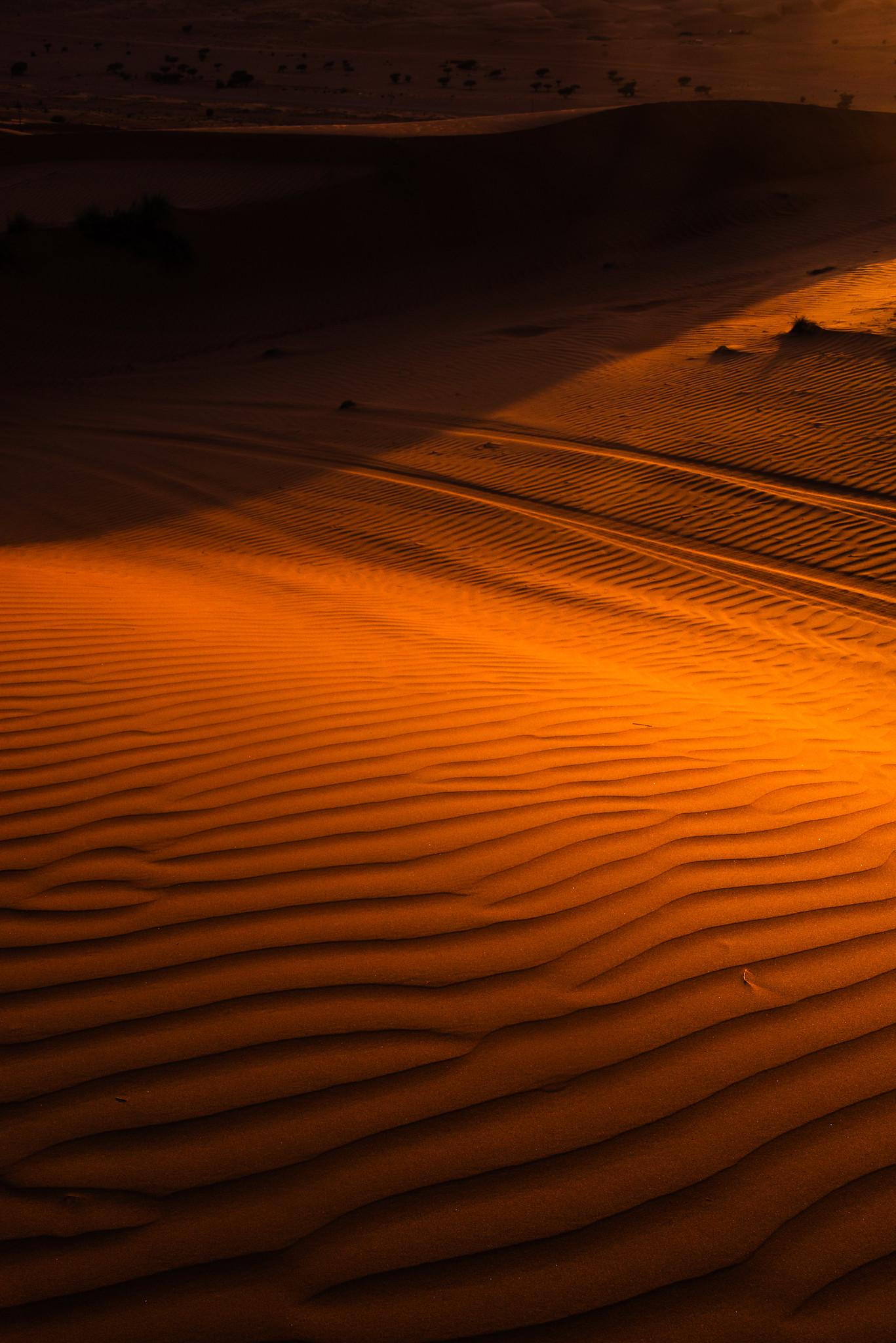
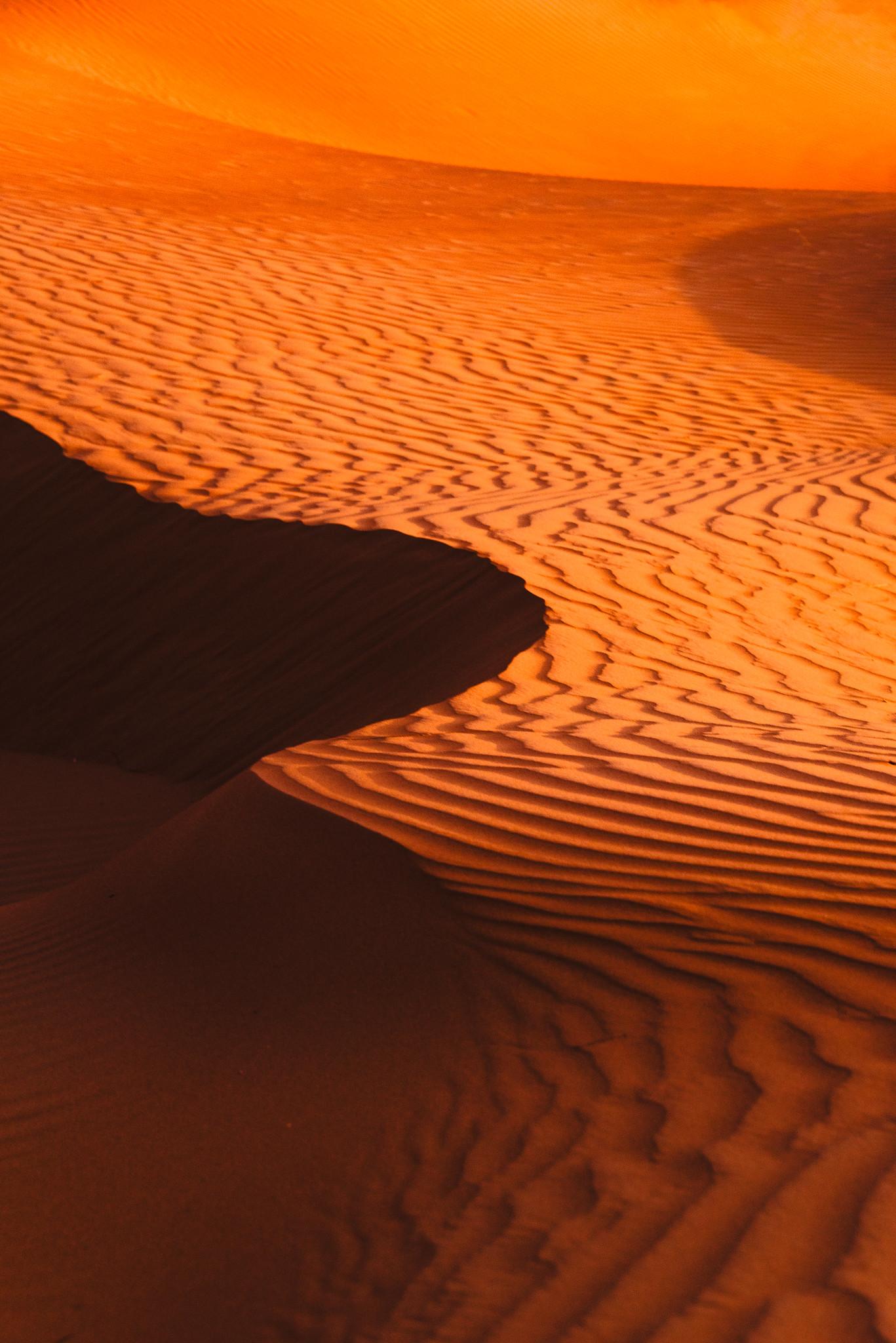
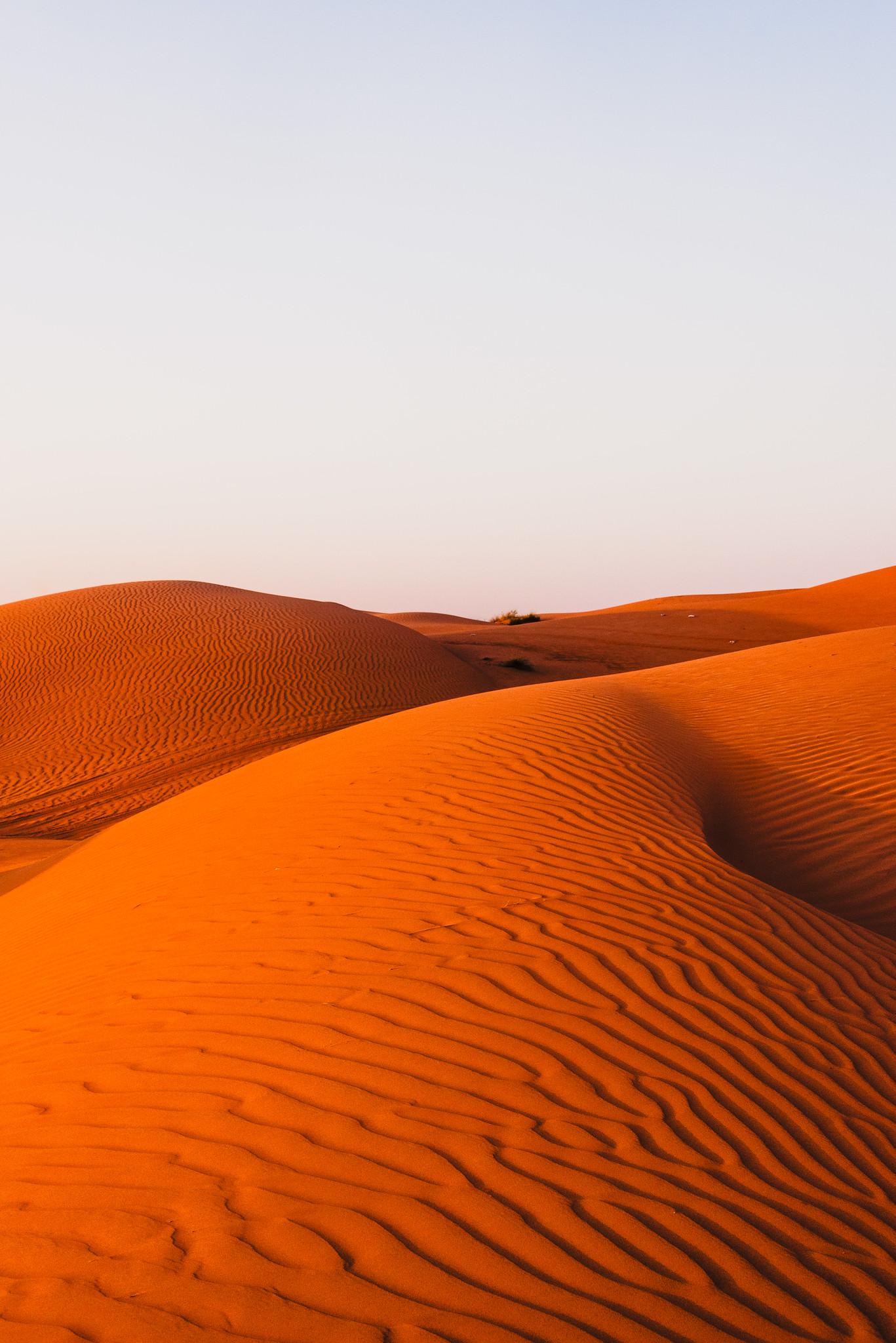
As someone coming from the tropics accustomed to dense vegetation with few defined shapes, the desert to me feels like a fascinatingly alien world. The natural folds on the sandy surface, the perfect curves, the fine red hues dancing with the blue sky. You just lift the camera, click, and another masterpiece is born.
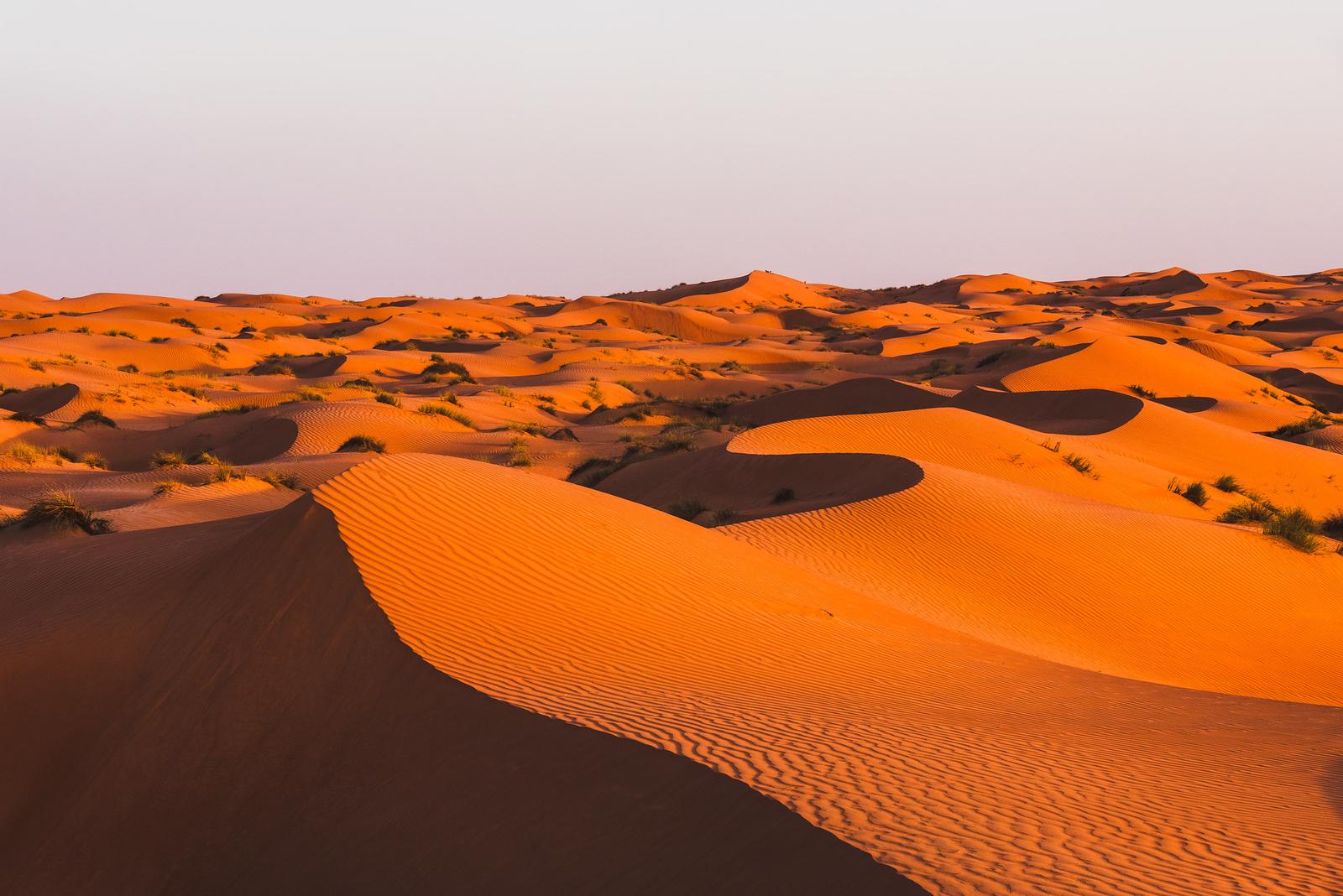
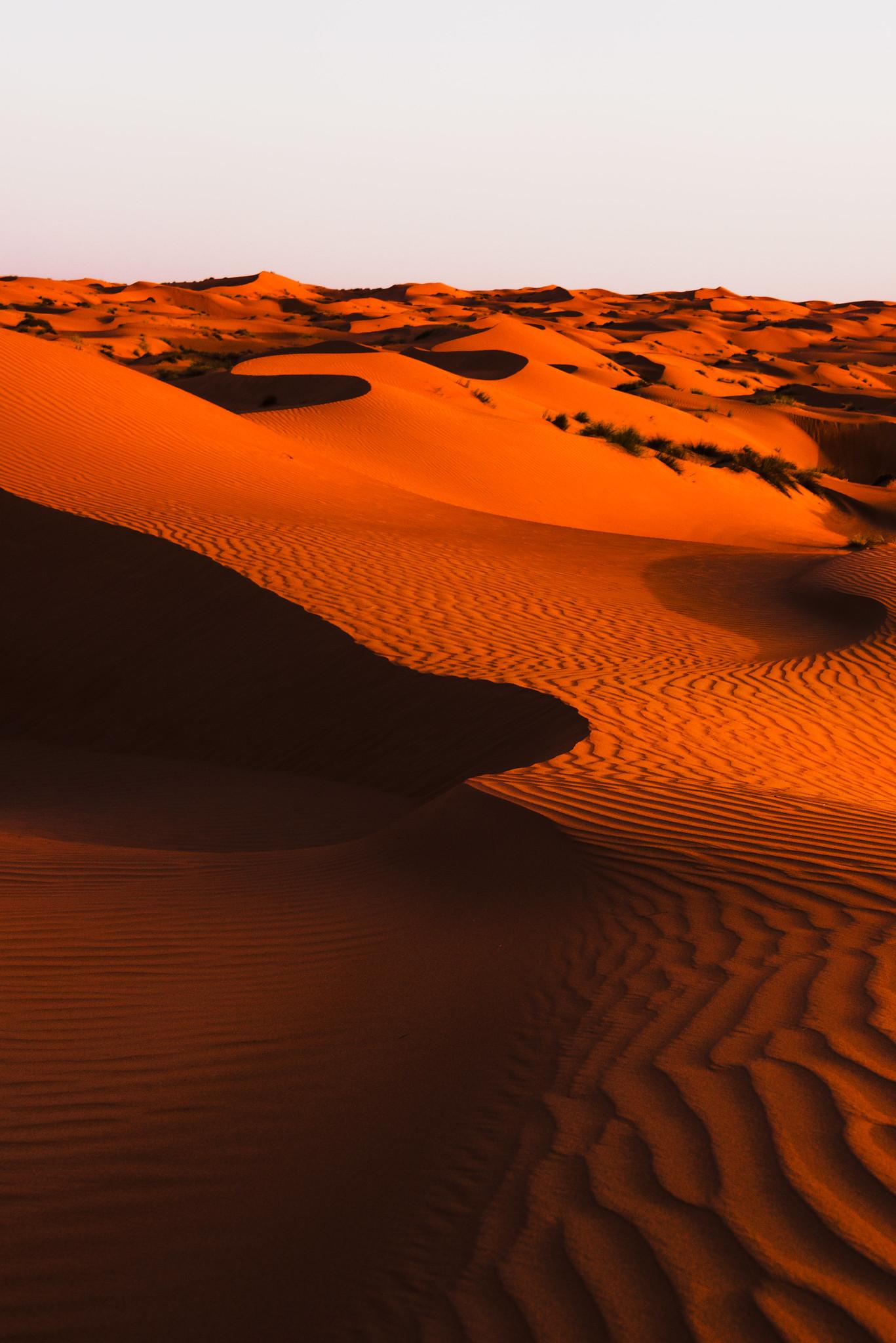
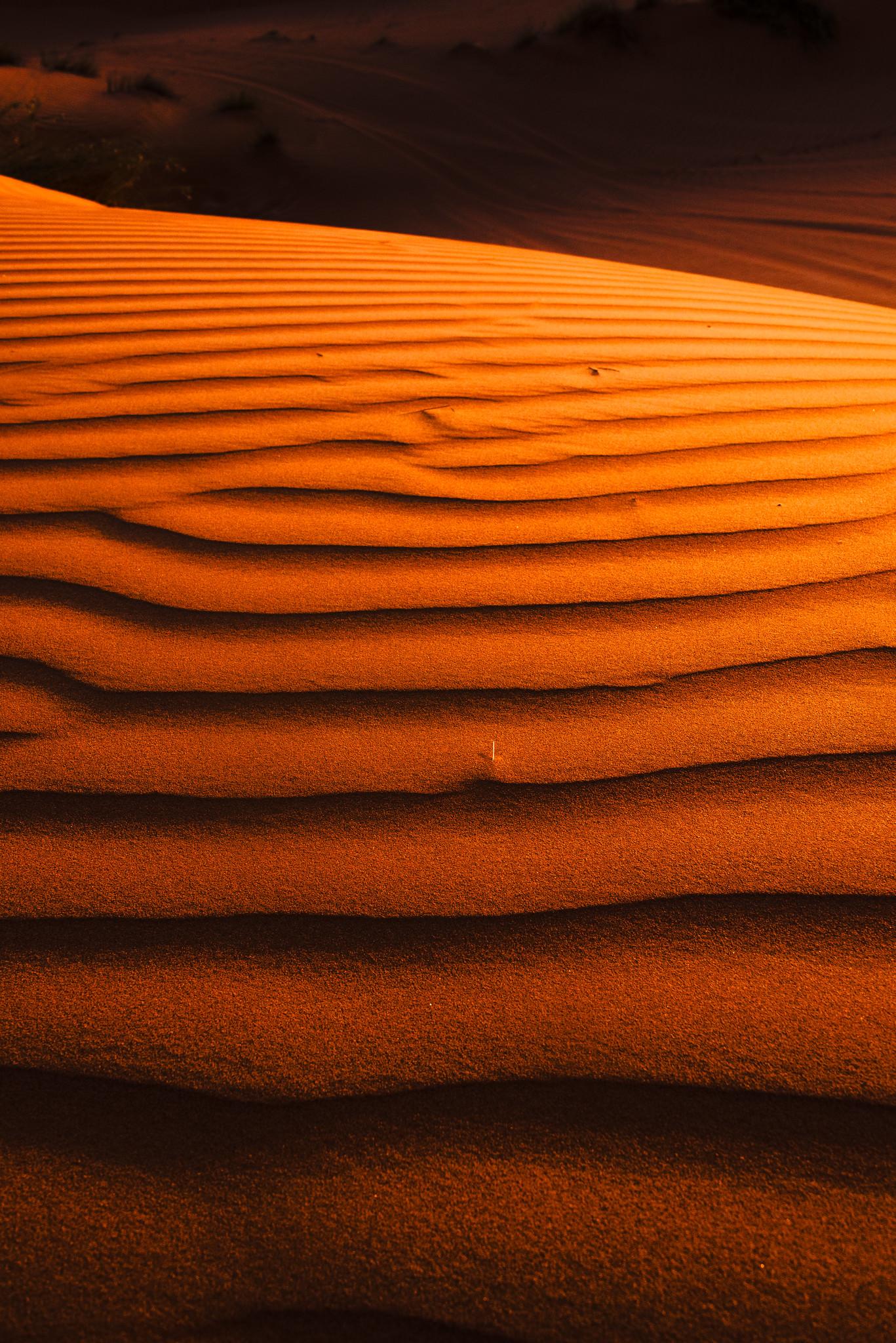
The guide showcased his driving skills on the sand, swerving like a roller coaster. In the distance, a few other tour groups and families spread blankets on the dunes, snacking and watching the sunset. Humans at this moment appeared tiny against the endless red and gold, yet they still stood out like moving dots on a still canvas.
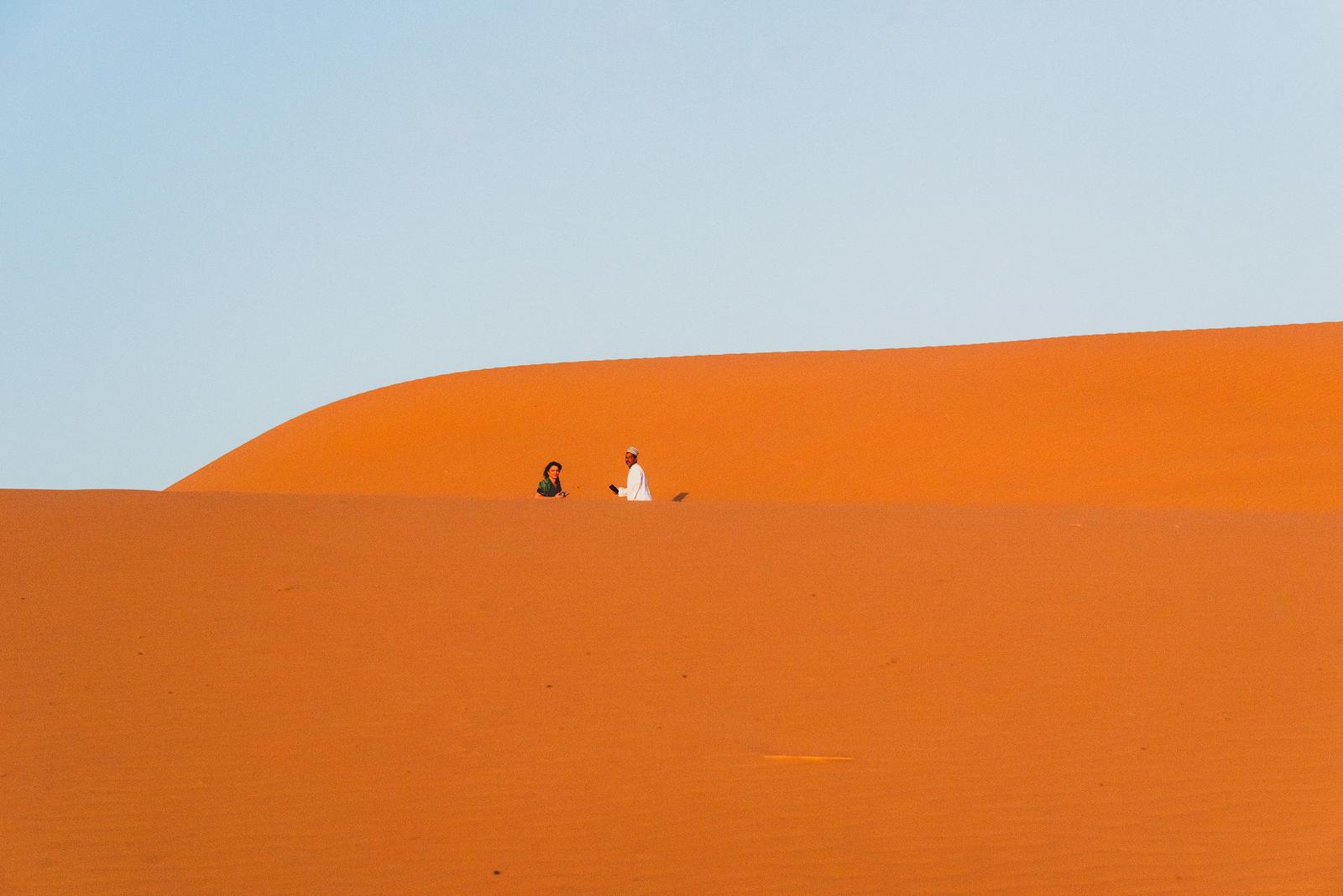
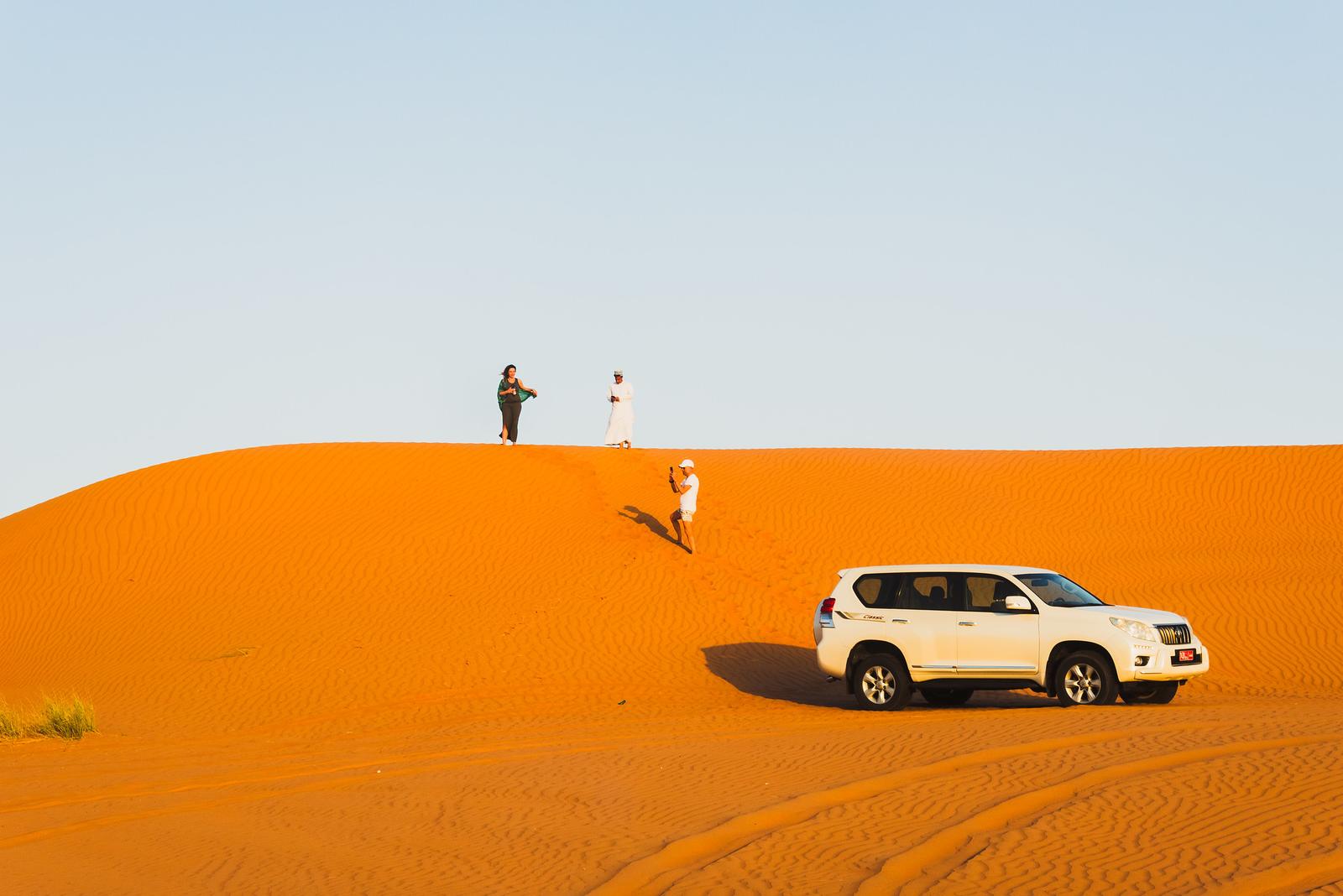
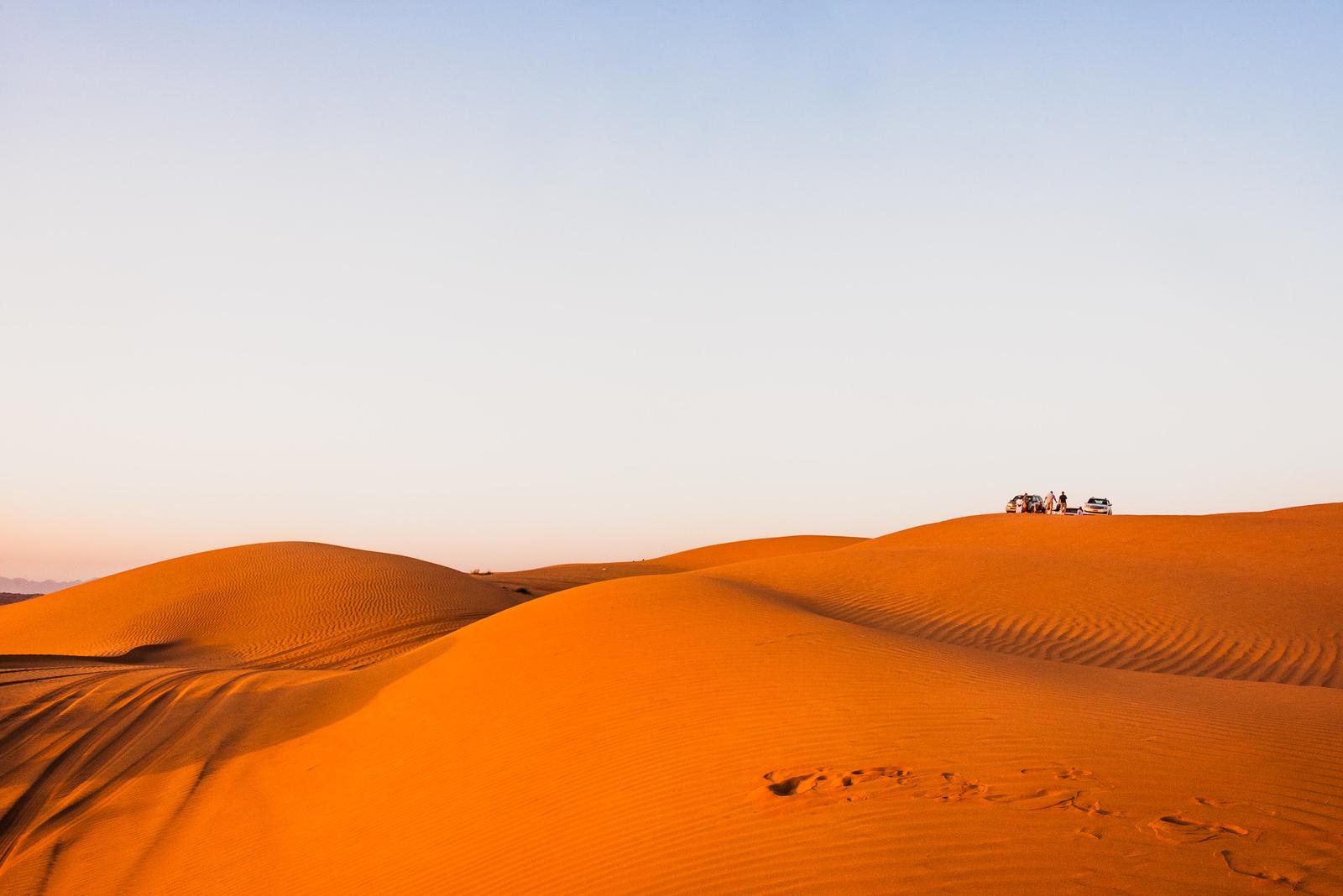
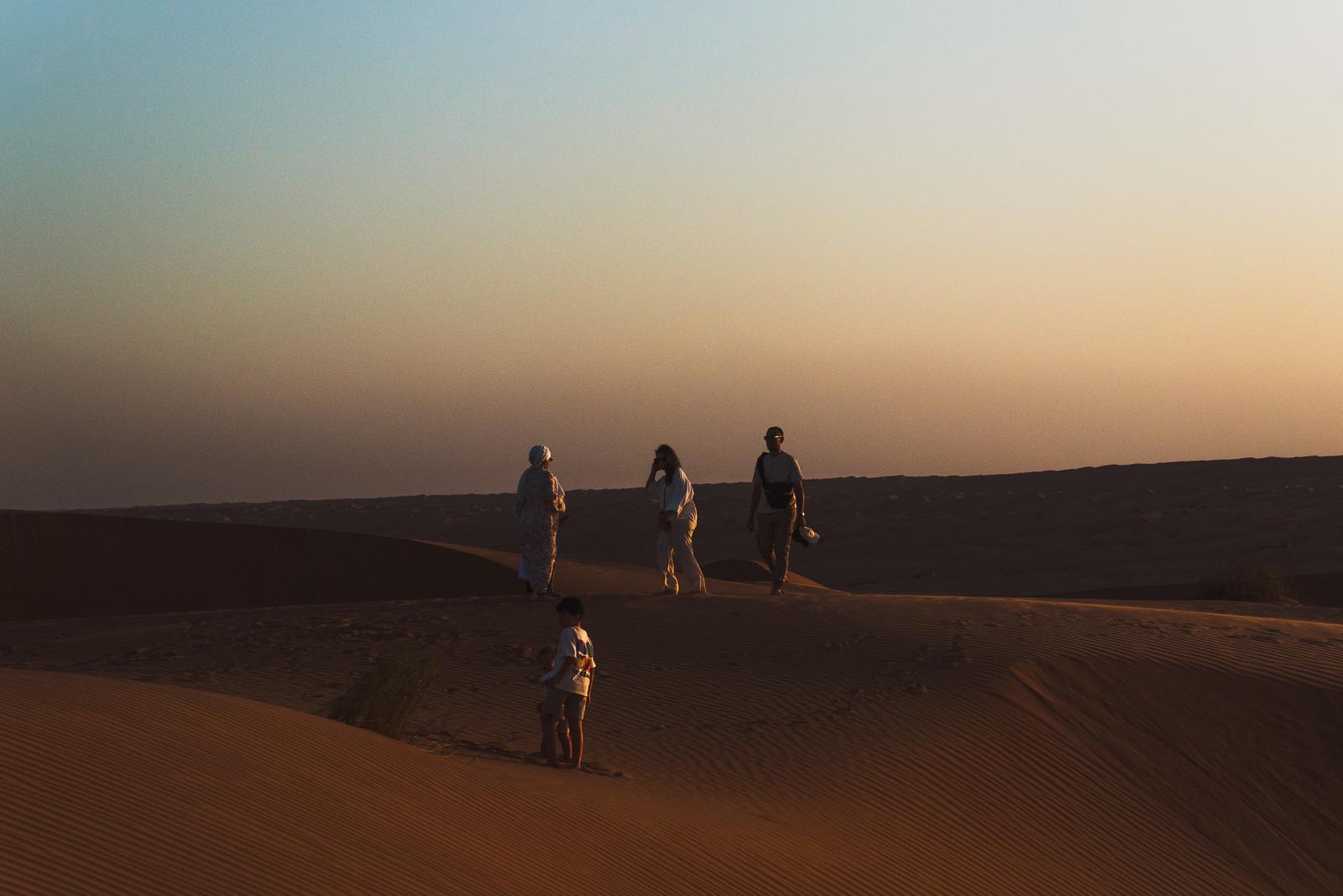
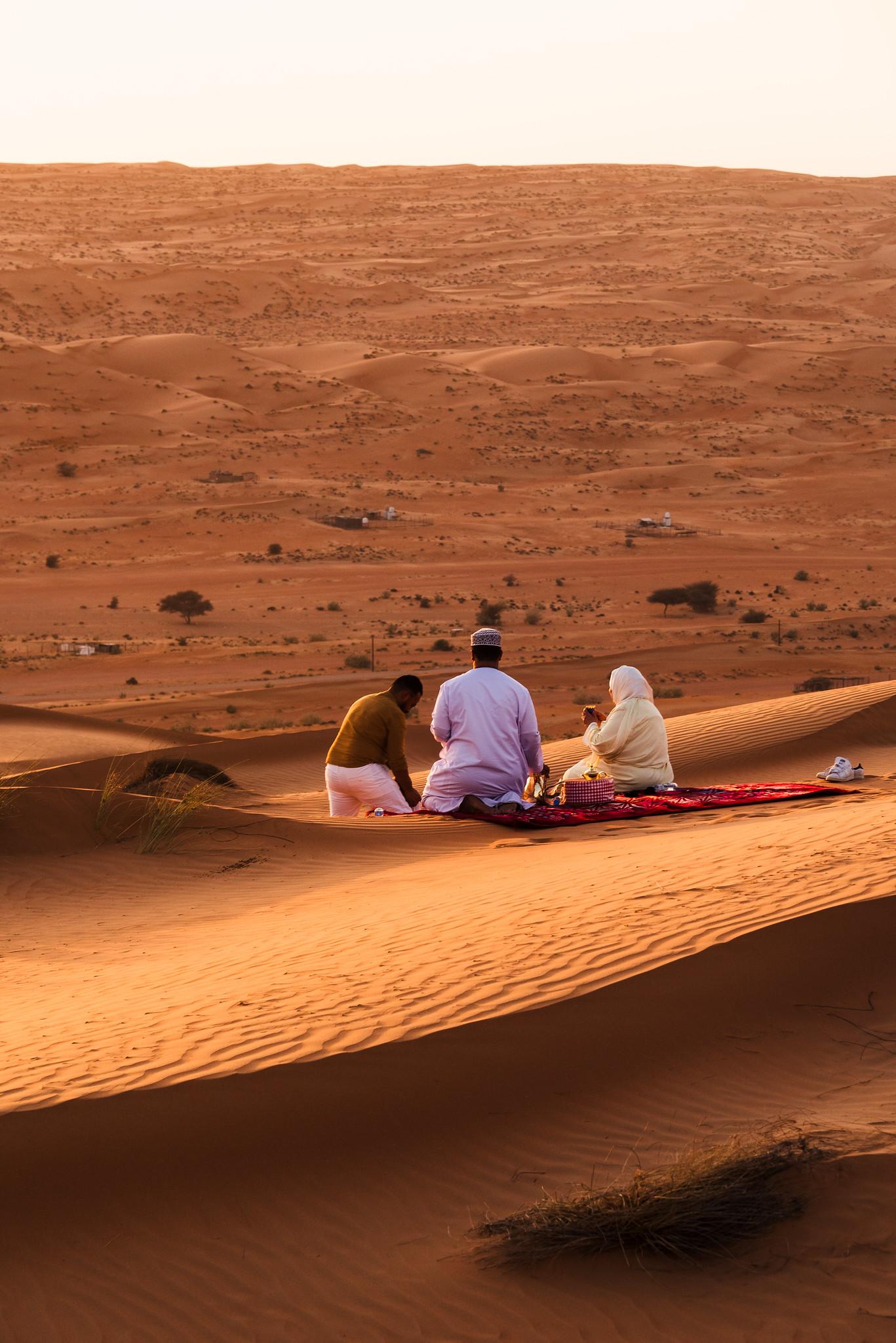
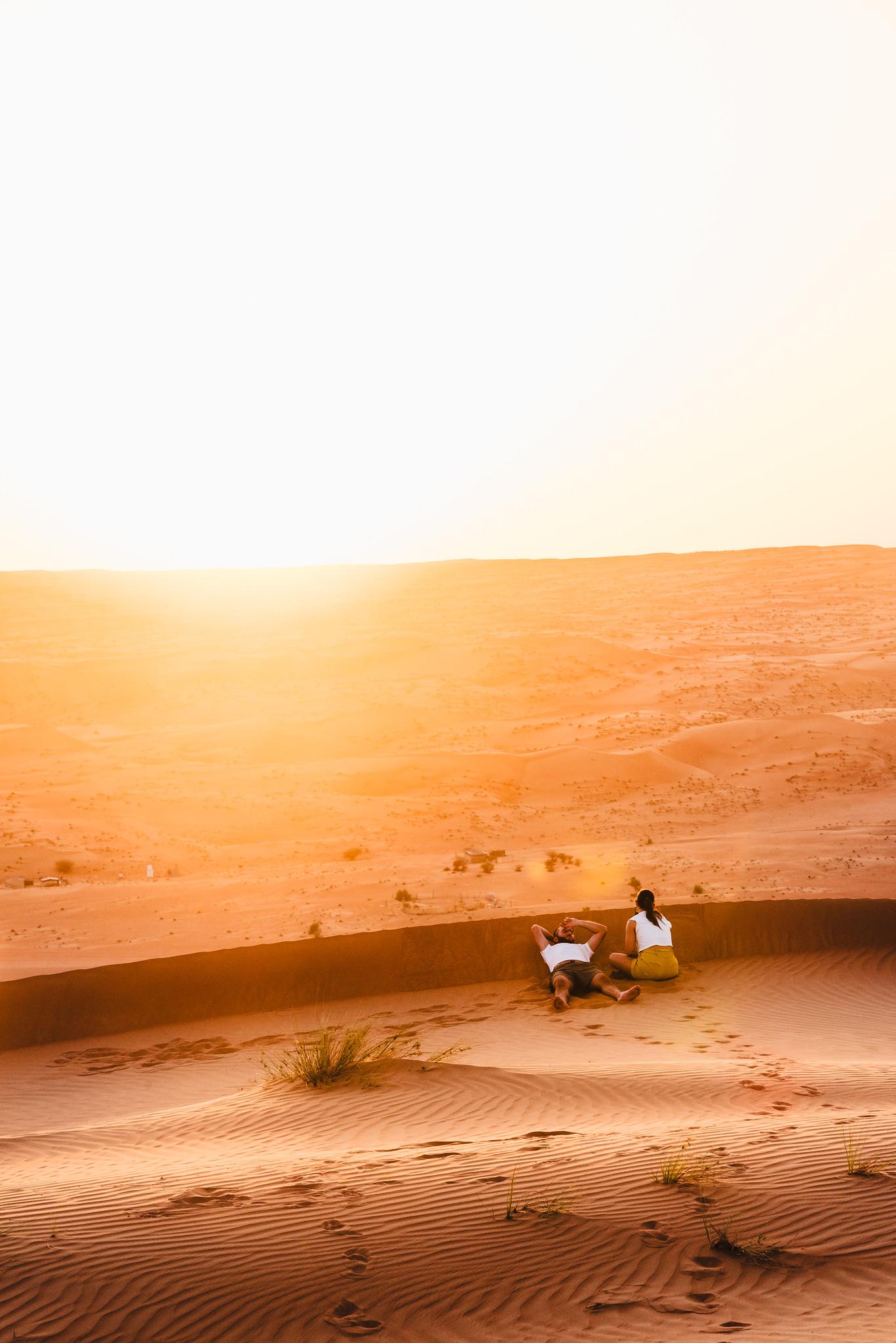
The couple traveling with me walked towards the sunset to pray and lay down on the sand, while the guide sat quietly in a corner of the desert. He’s a student training to become a pilot in a private school, and this job in tourism has helped him cover a good part of his tuition, even though he has to constantly journey across the country.
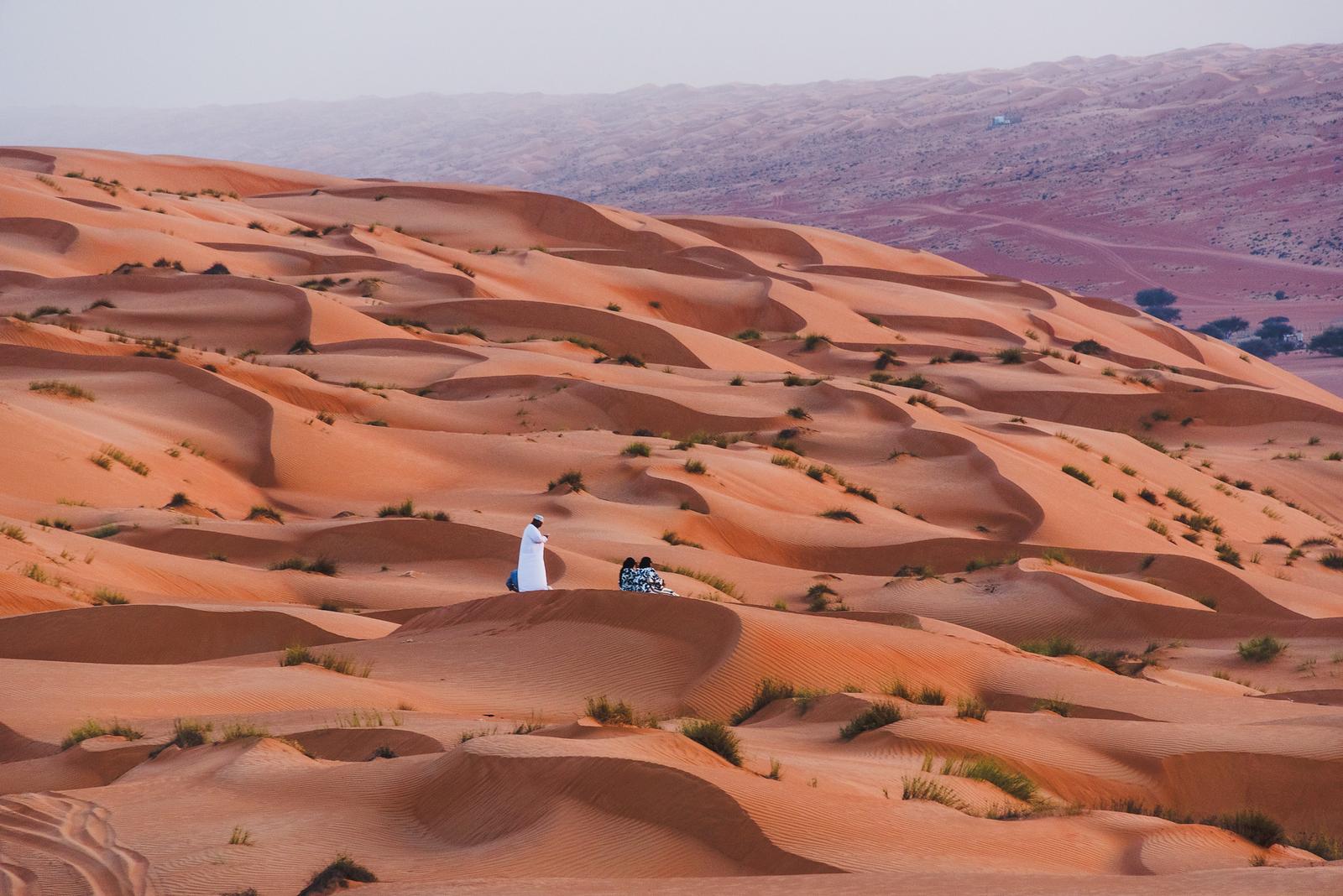
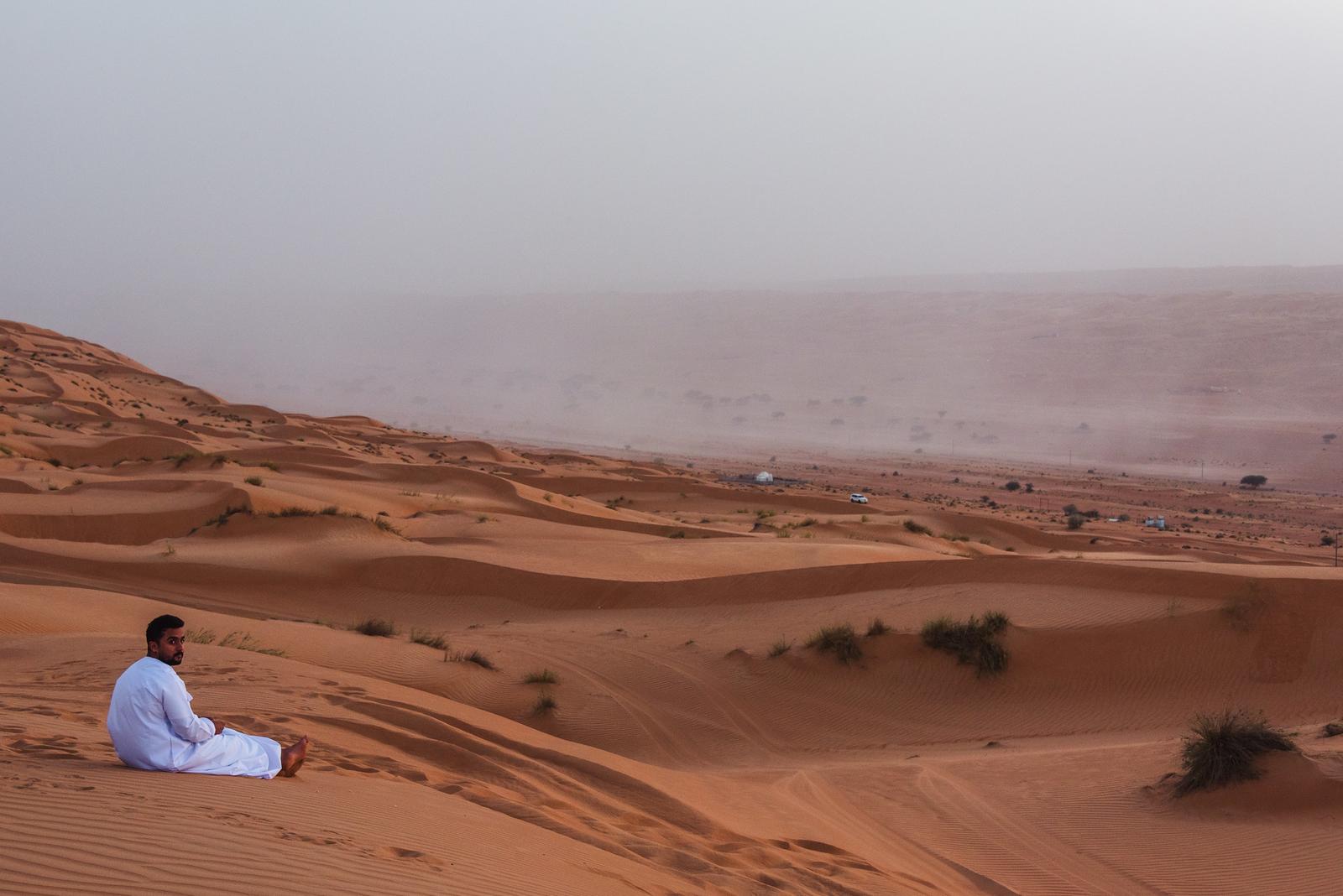
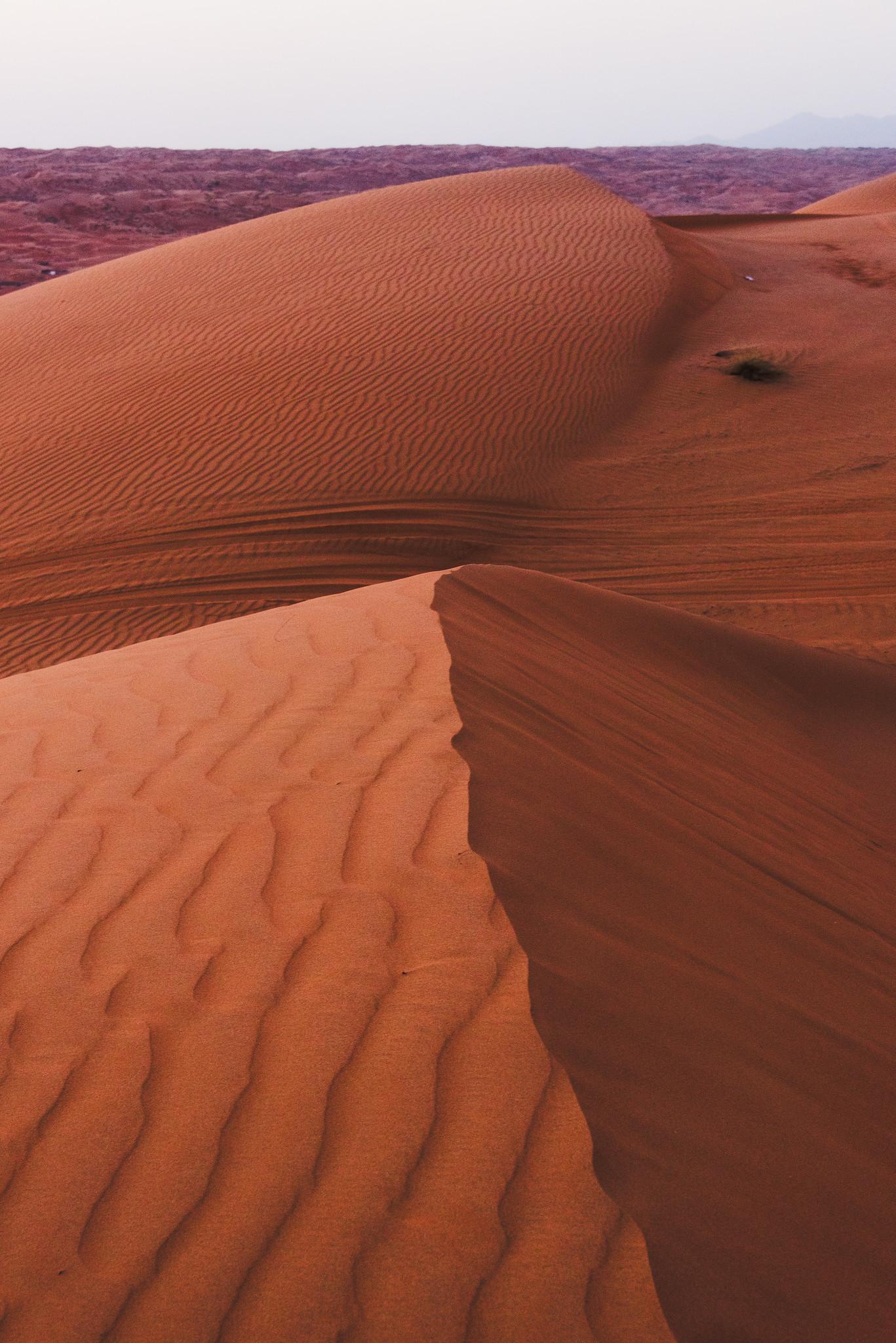
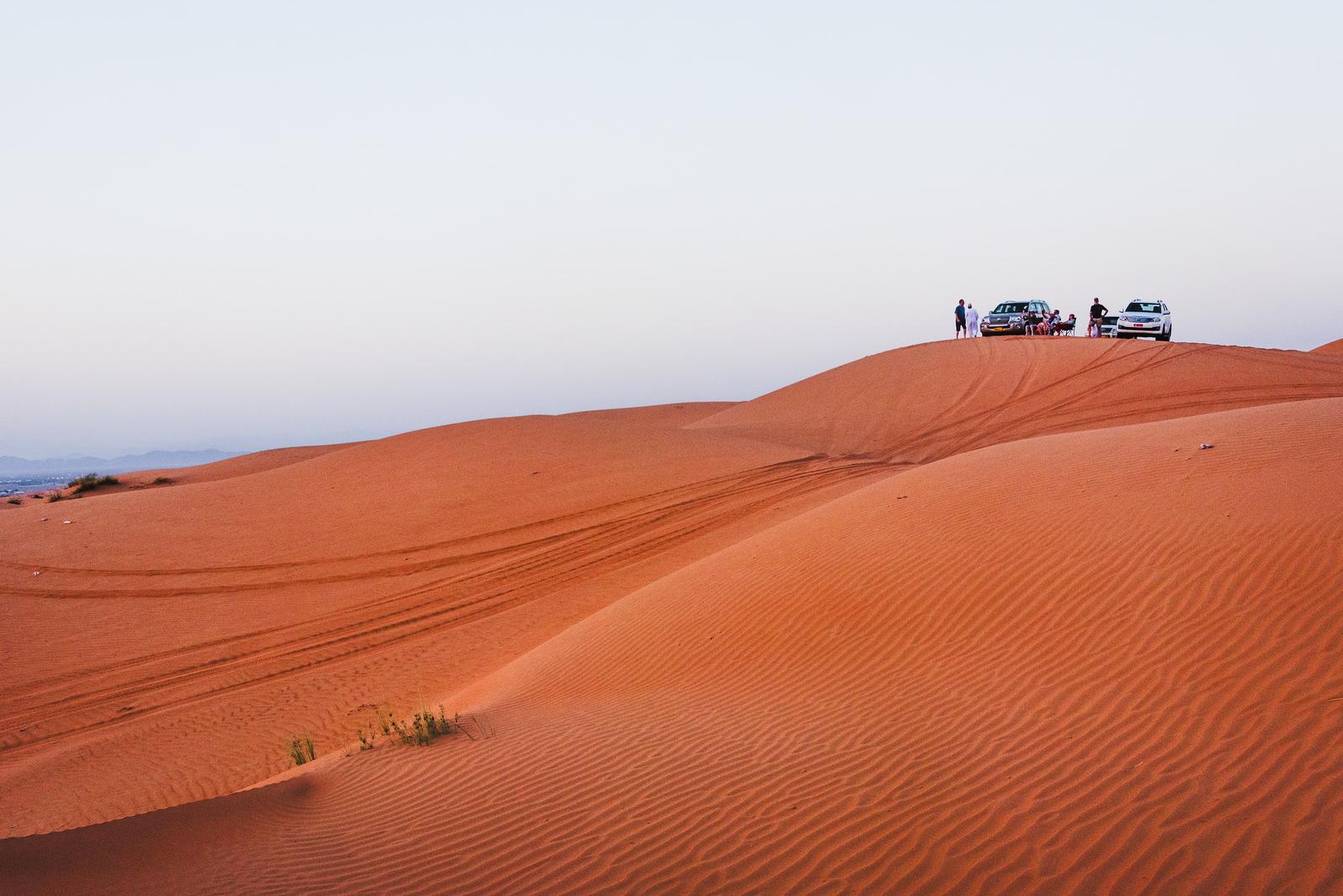
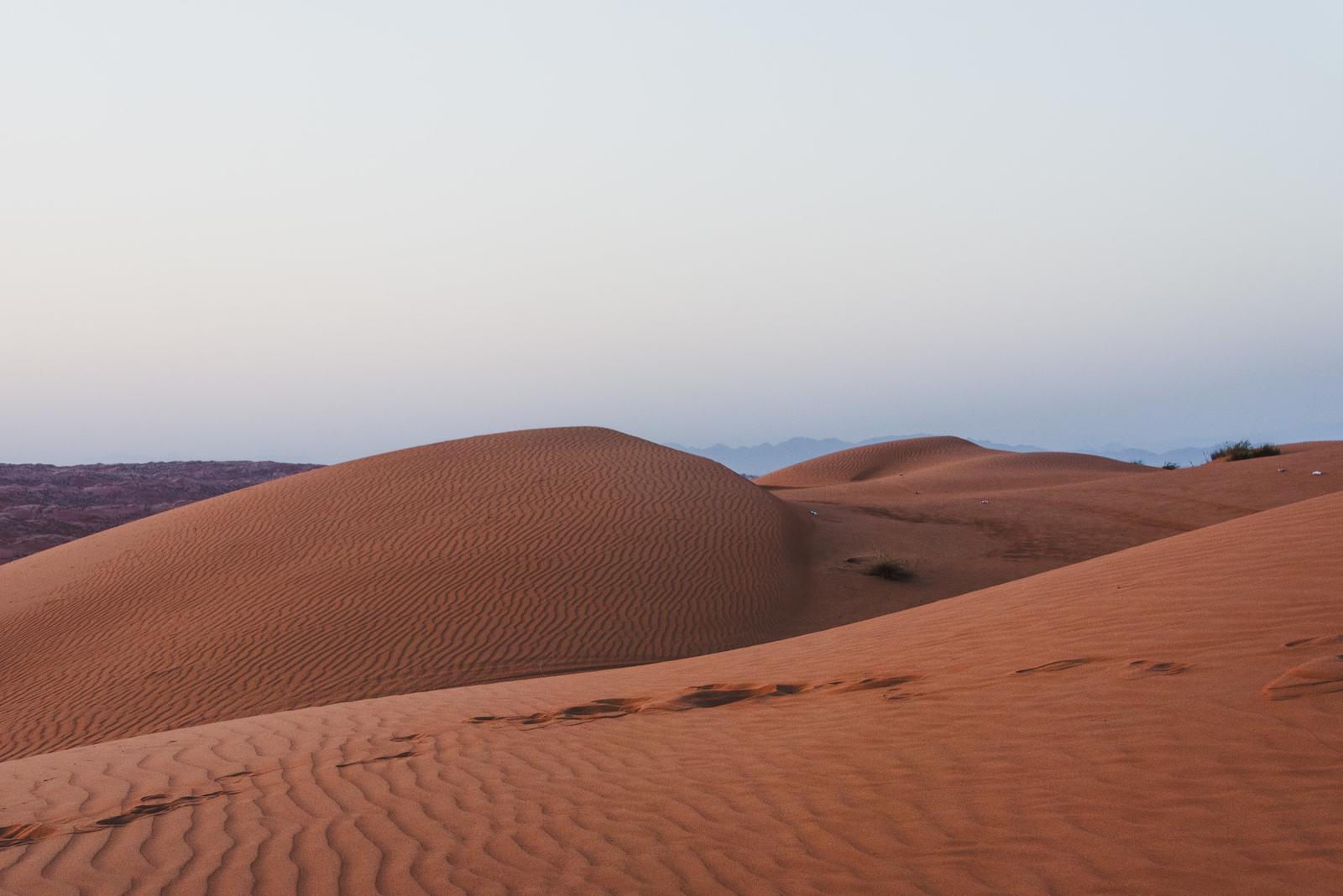
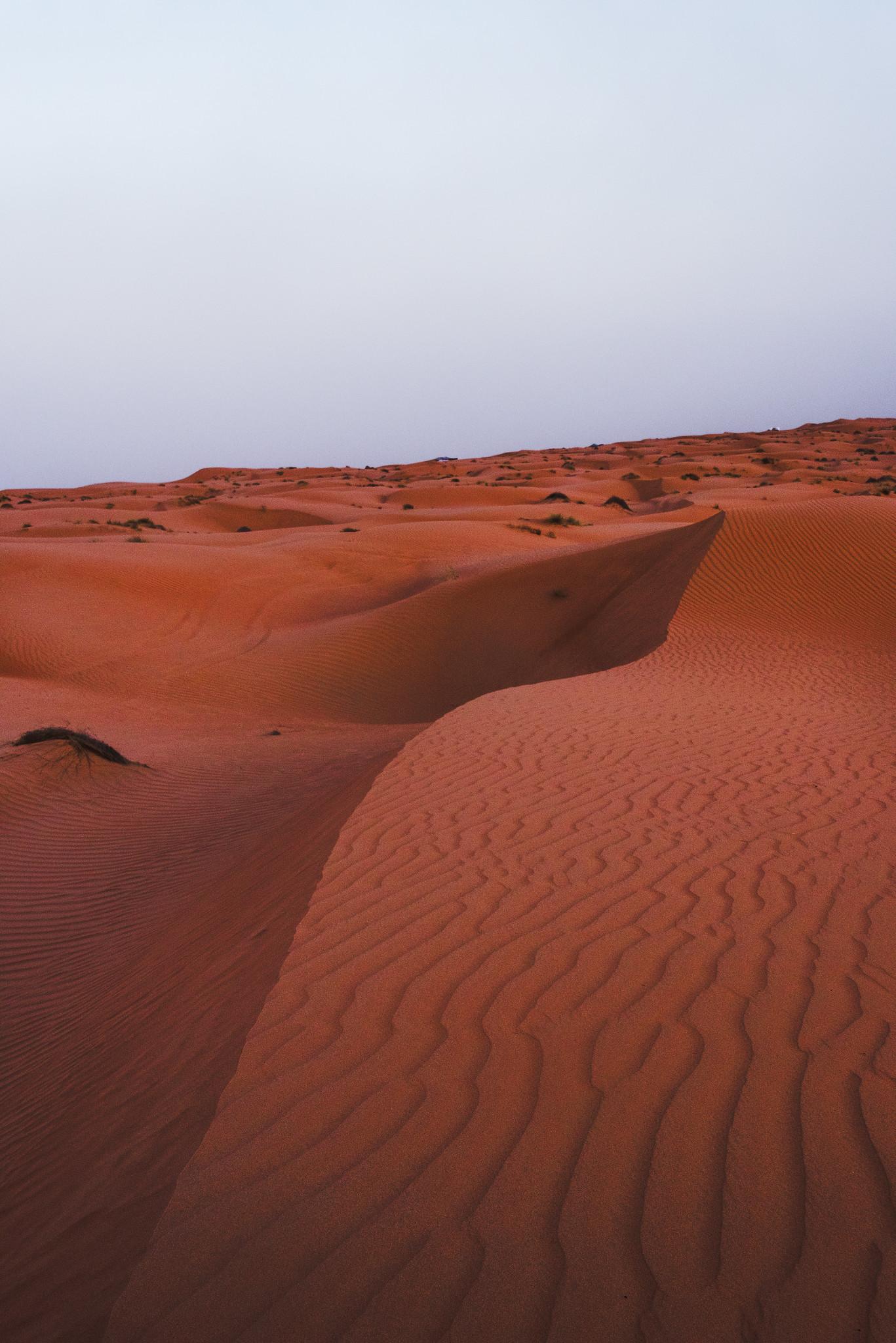
A desert dust storm swept in from the south, gradually covering the entire sky - it’s time our group had gotten back into the car to return to Muscat.
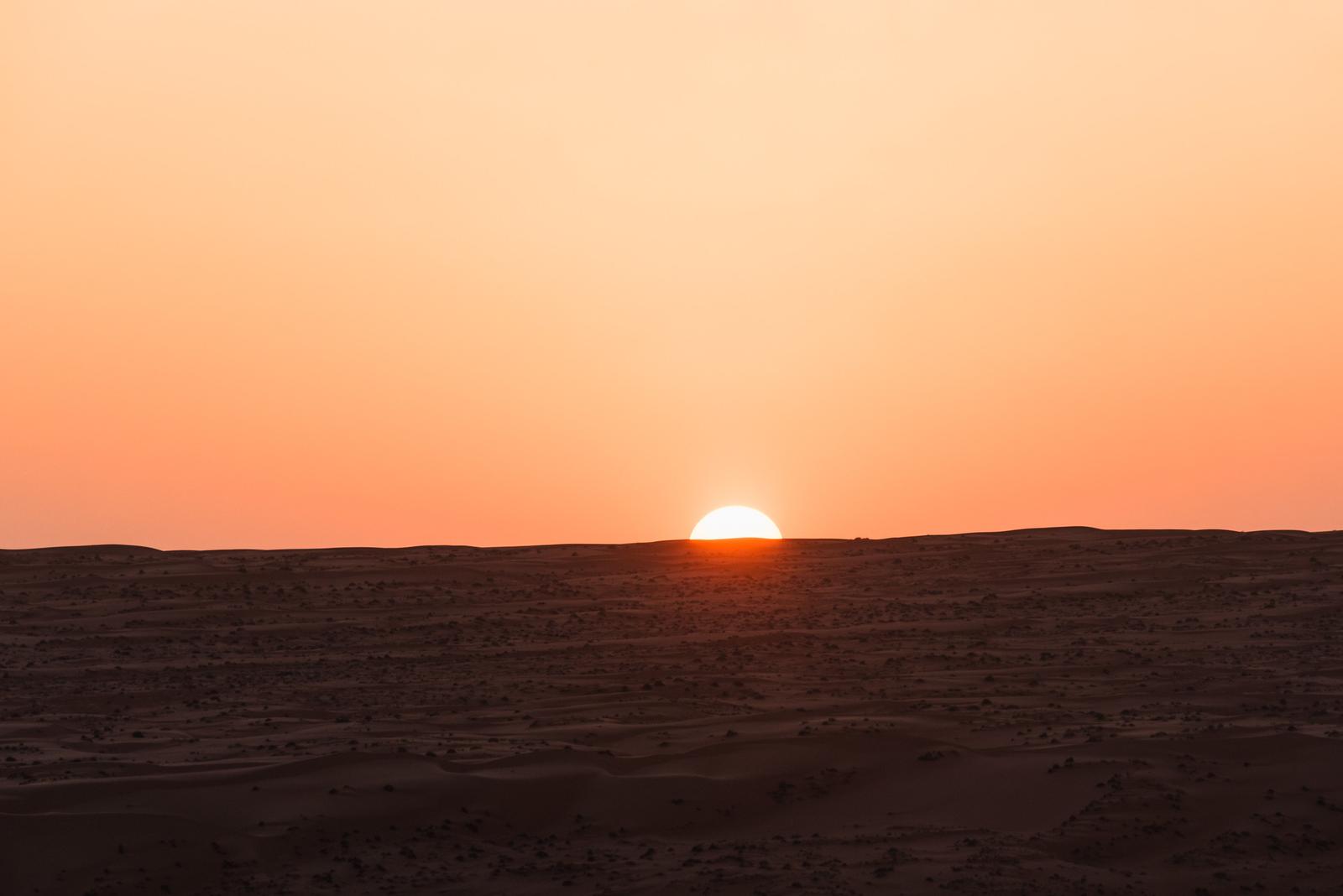
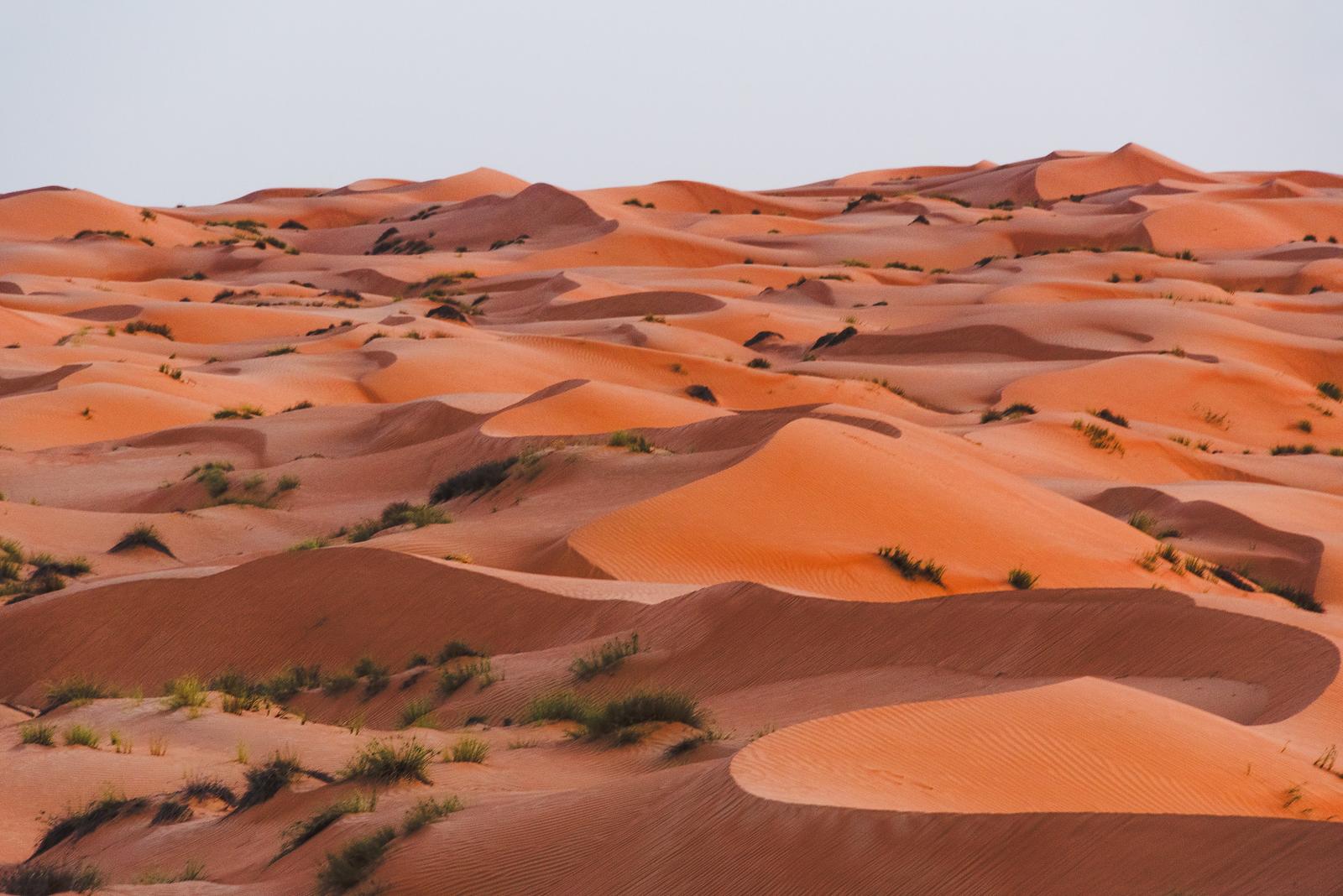
Road Back to Muscat
The sun had set, leaving only flickering lights amid the hazy air. The car glided across the desert, returned to the town to reinflate its tires, and then sped straight onto the highway.
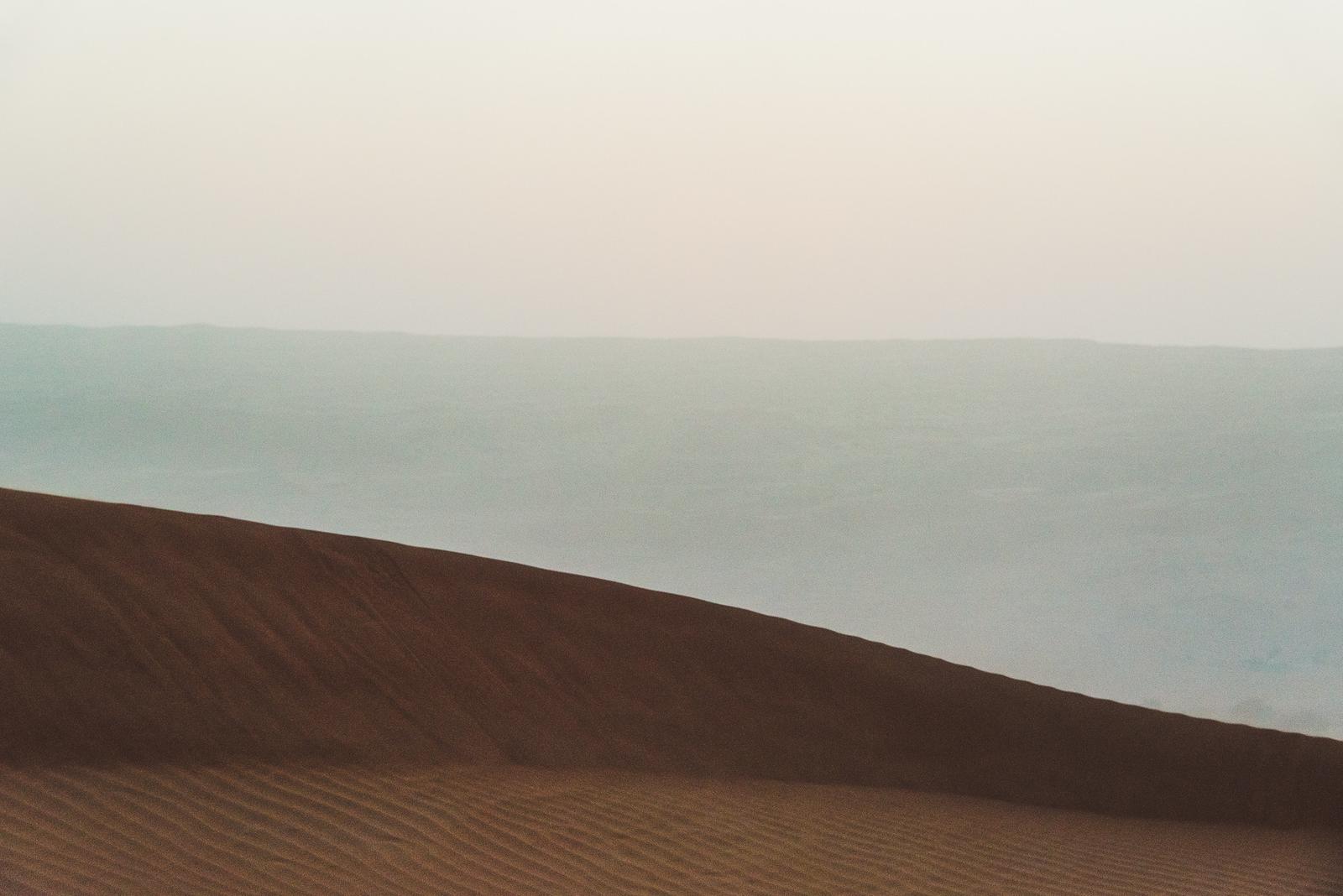
The straight rows of highway lights appeared as smooth glowing orbs in the dusty night. The car raced at full speed, gliding through the winding curves, while inside, the four of us chatted away - about snakes, marriage customs in different countries, and food stuff.
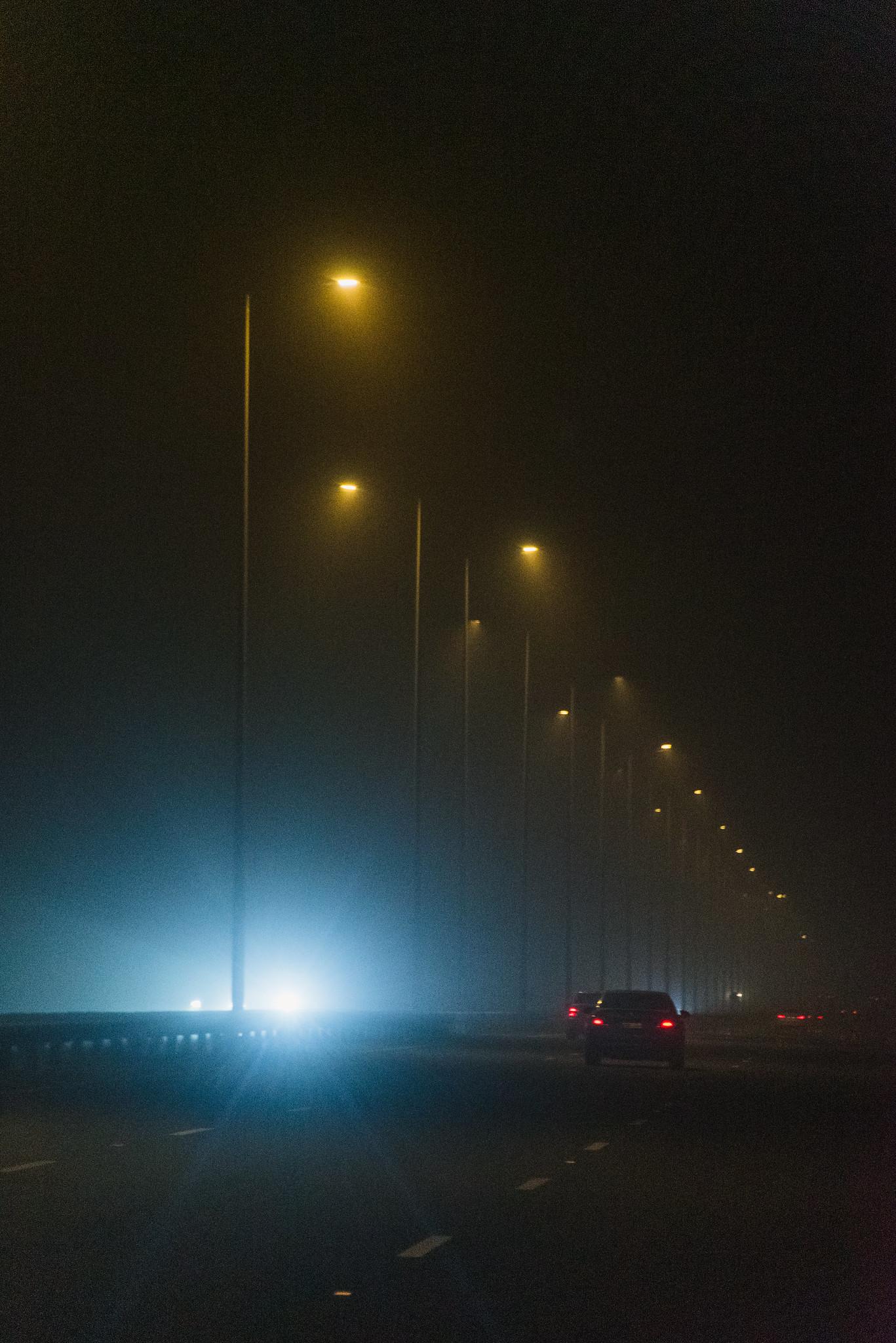
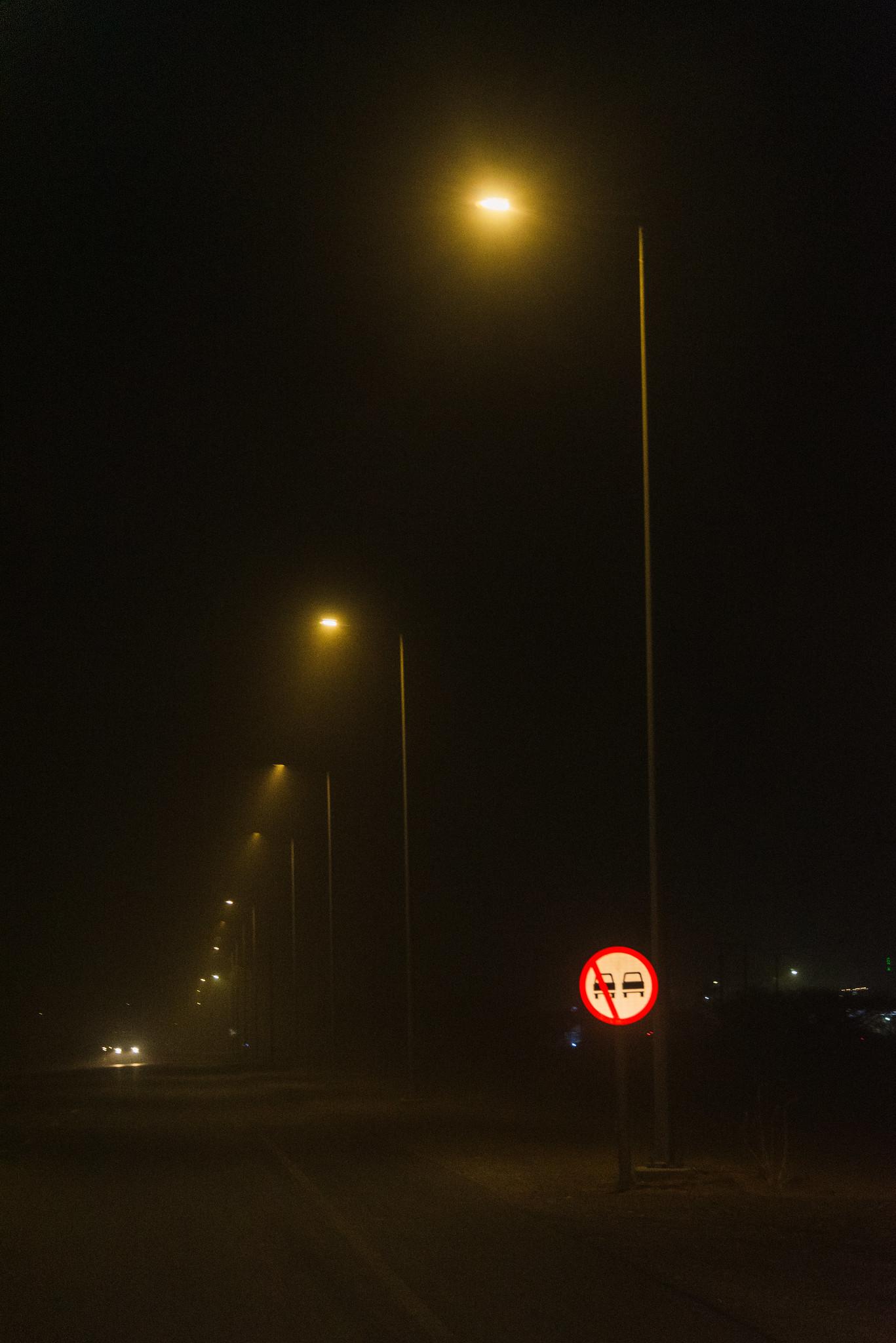
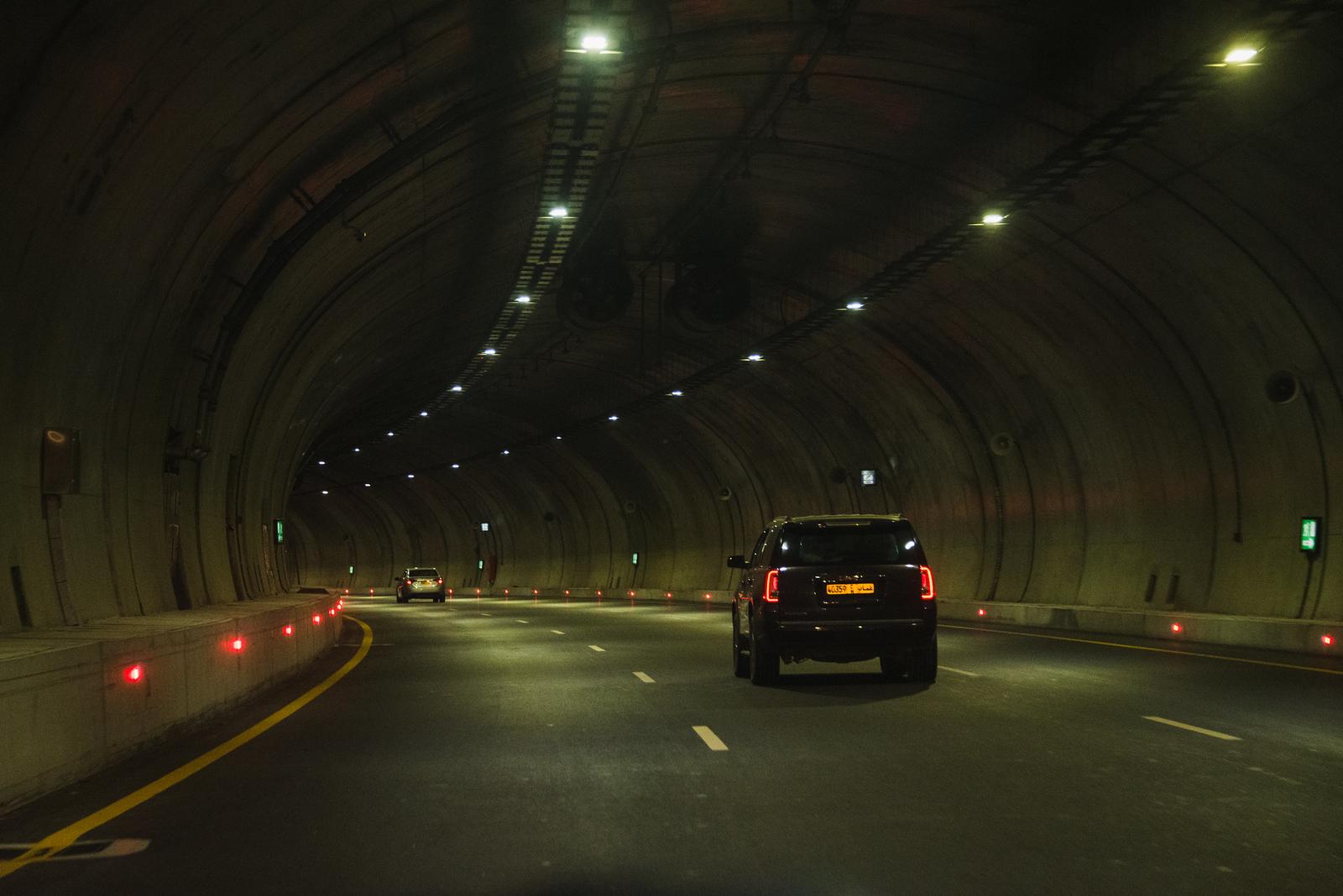
Even so, driving at night in this country feels much easier and more relaxing than that one evening in Ulaanbaatar.
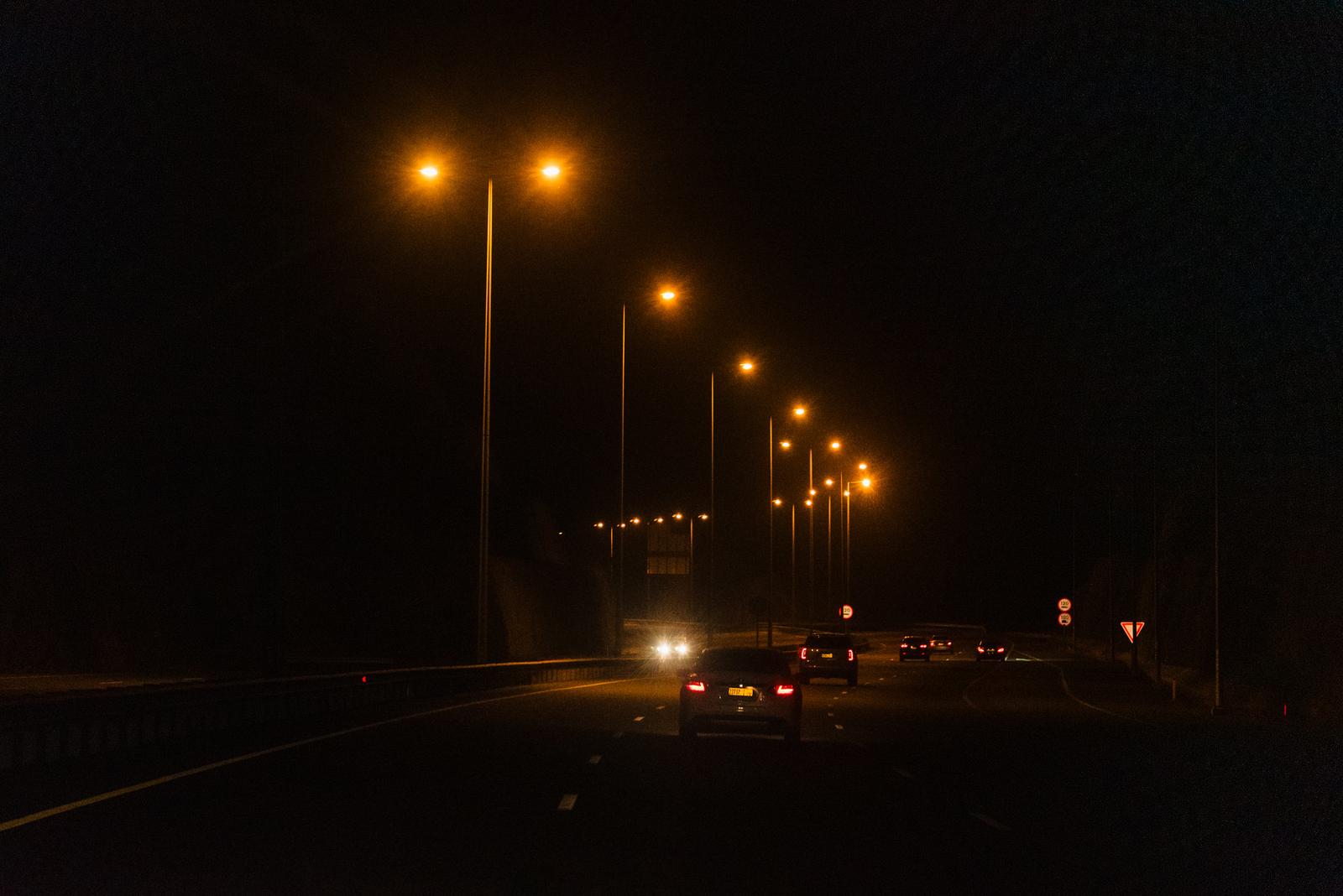
Comments
About
Zuyet Awarmatrip is a subsidiary identity within the personal ecosystem of Zuyet Awarmatik, focusing on travel and photography.
A Vietnamese usually regarding himself as a carefree solo Eastern backpacker, alongside with his main profession as a UX engineer. Neither being a freelancer nor a digital nomad, this website is built for the purpose of recording his life experience and happenings instead of letting them go into oblivion. He hopes these photos here shall always deliver the colorfulness of this worldly reality.
The summer rains helped add inspiration to my post-processing of travel photos.
